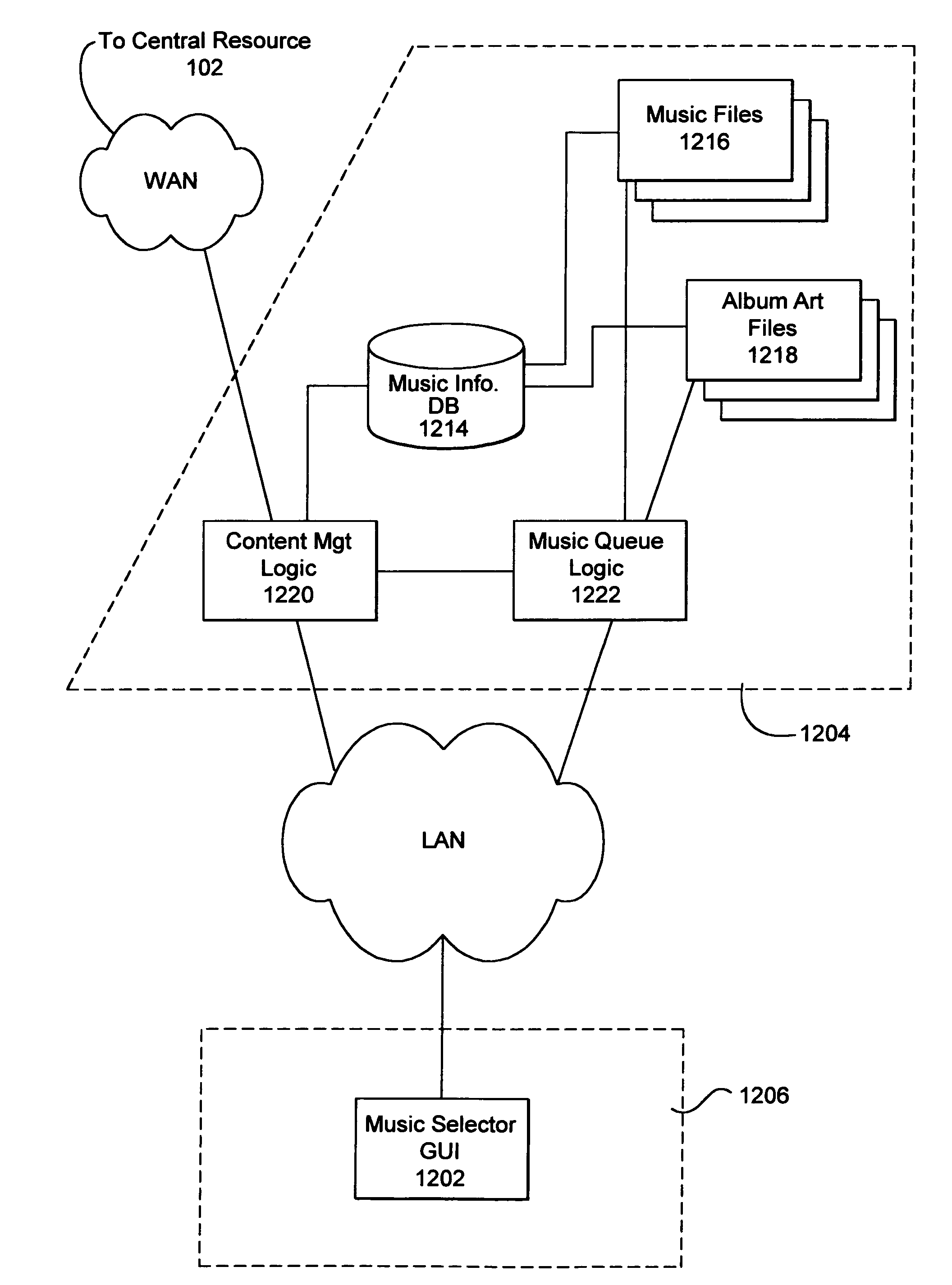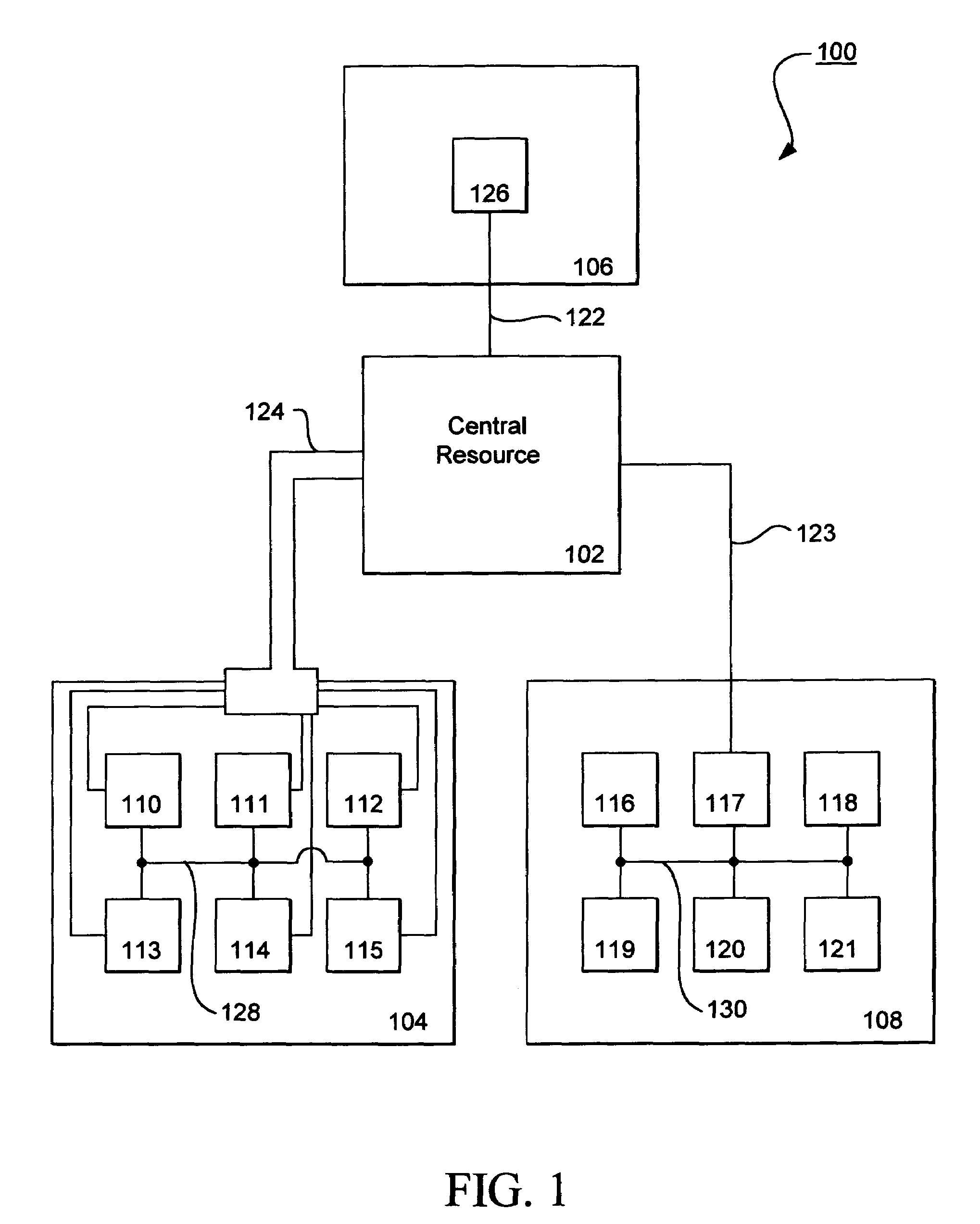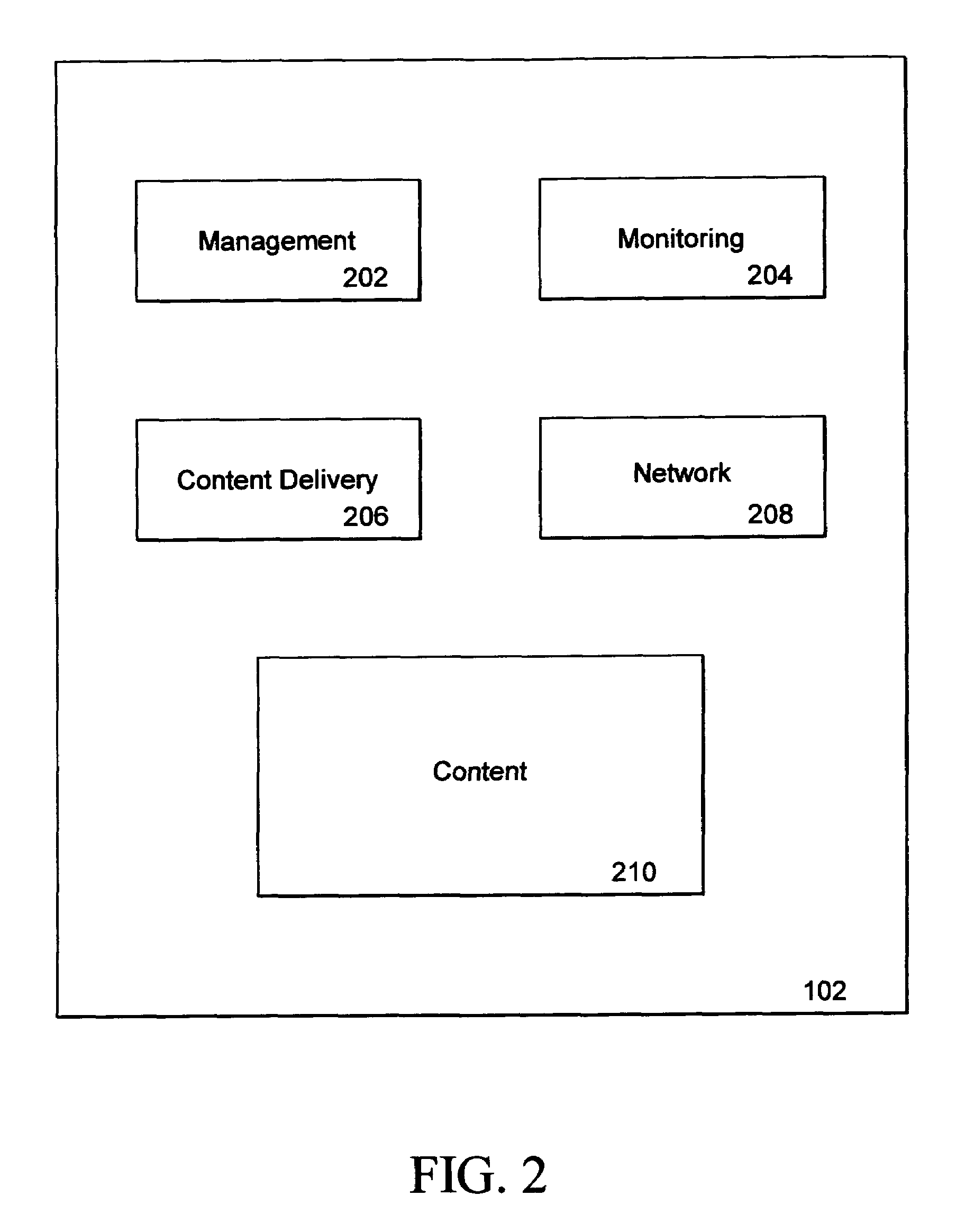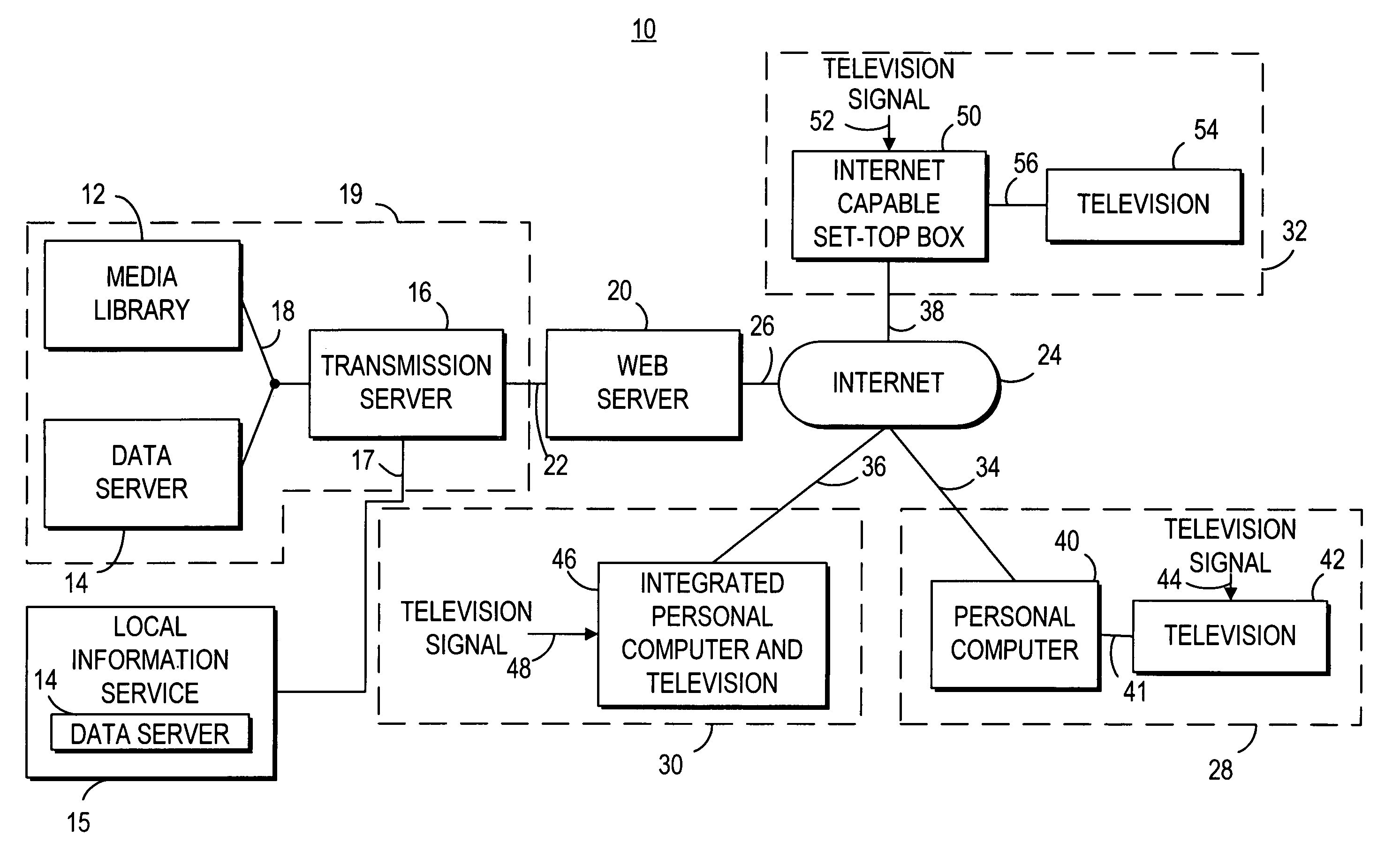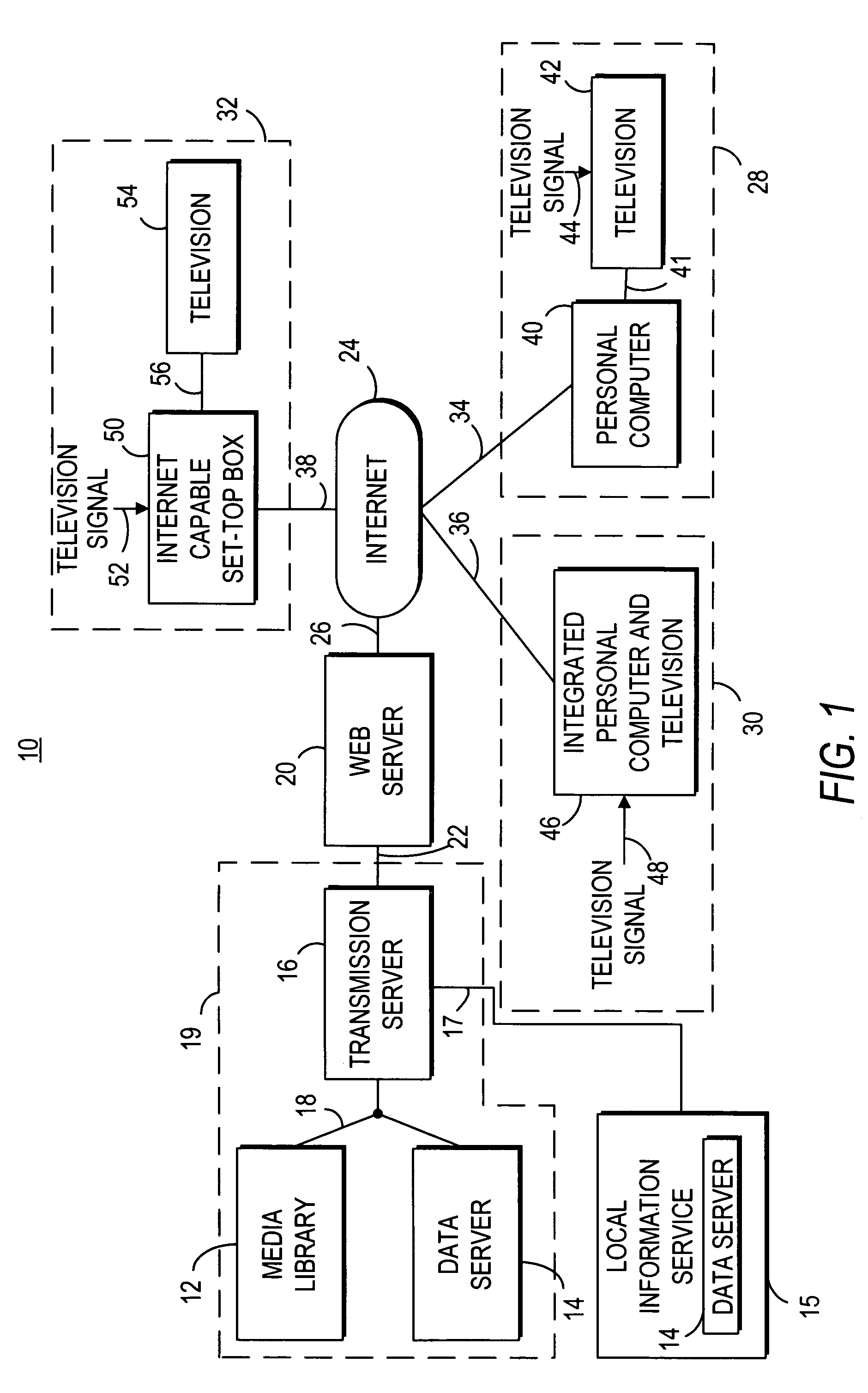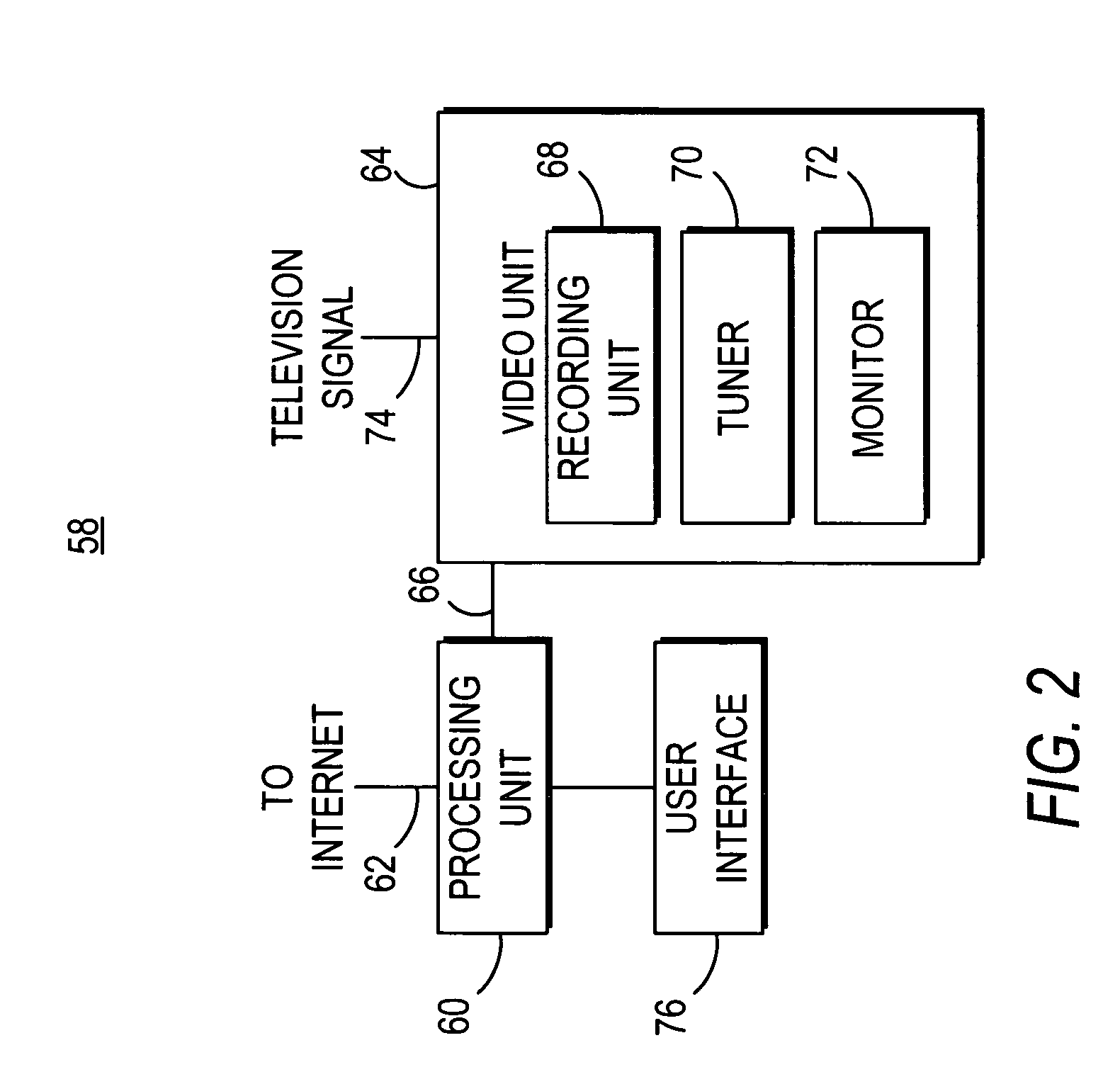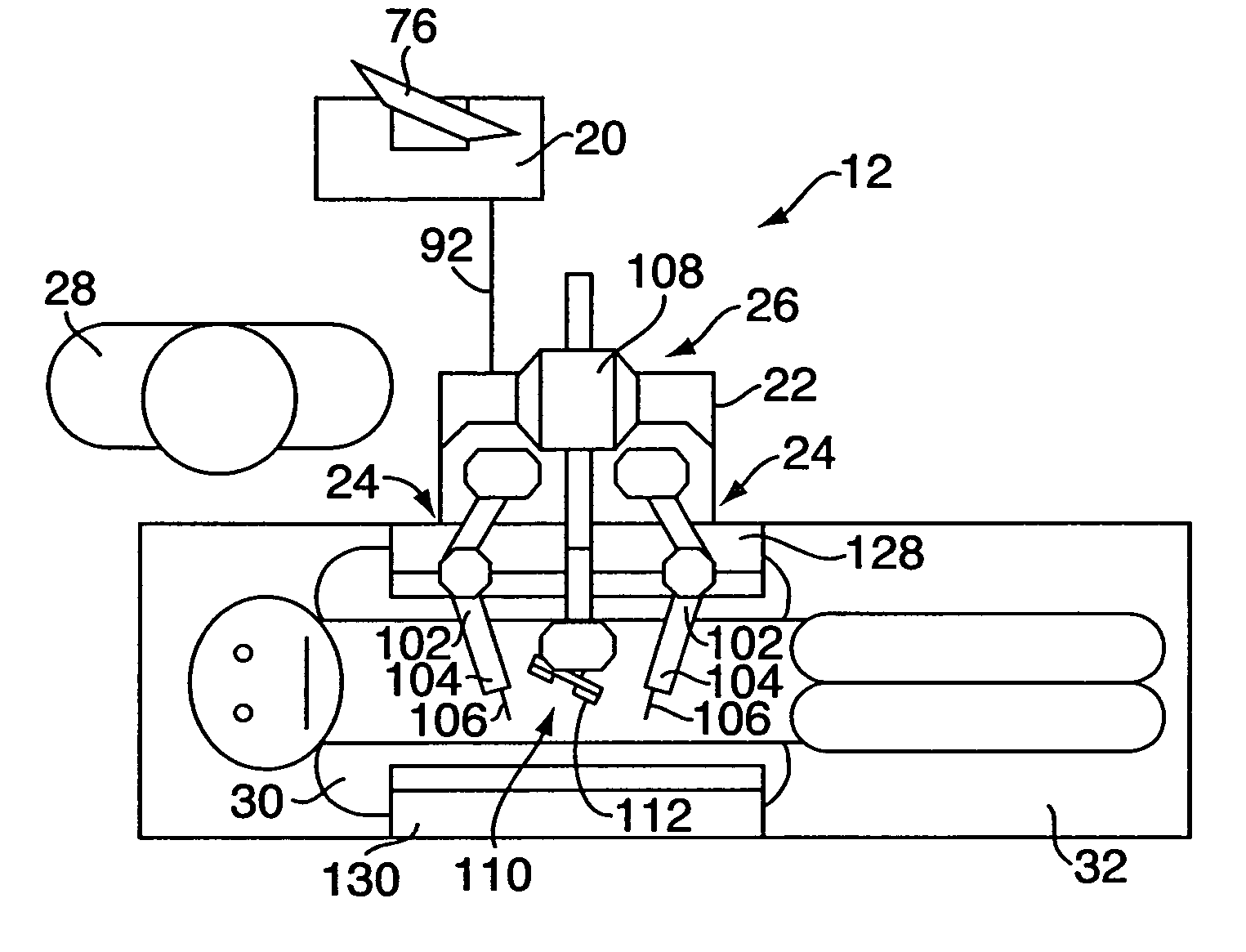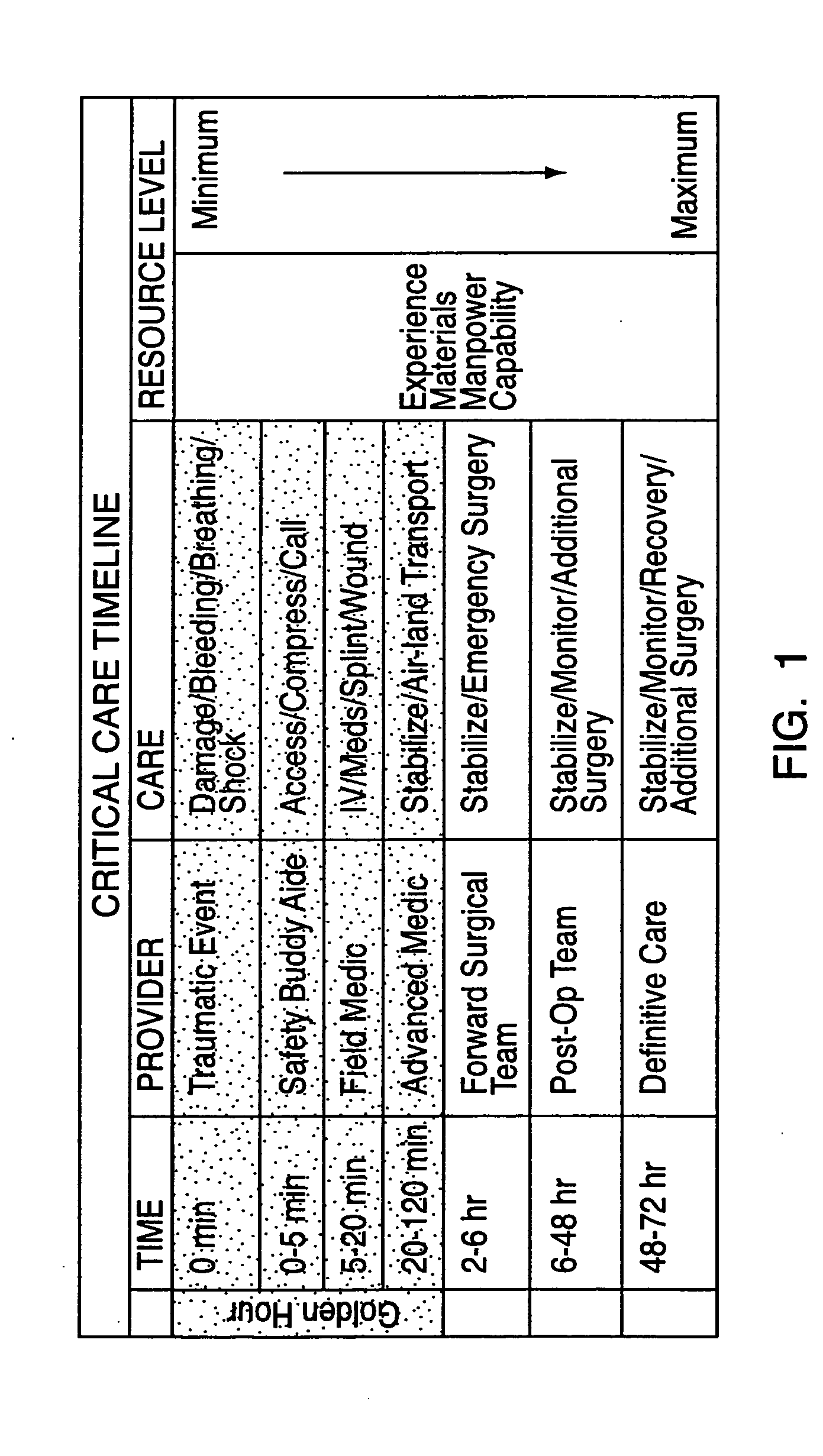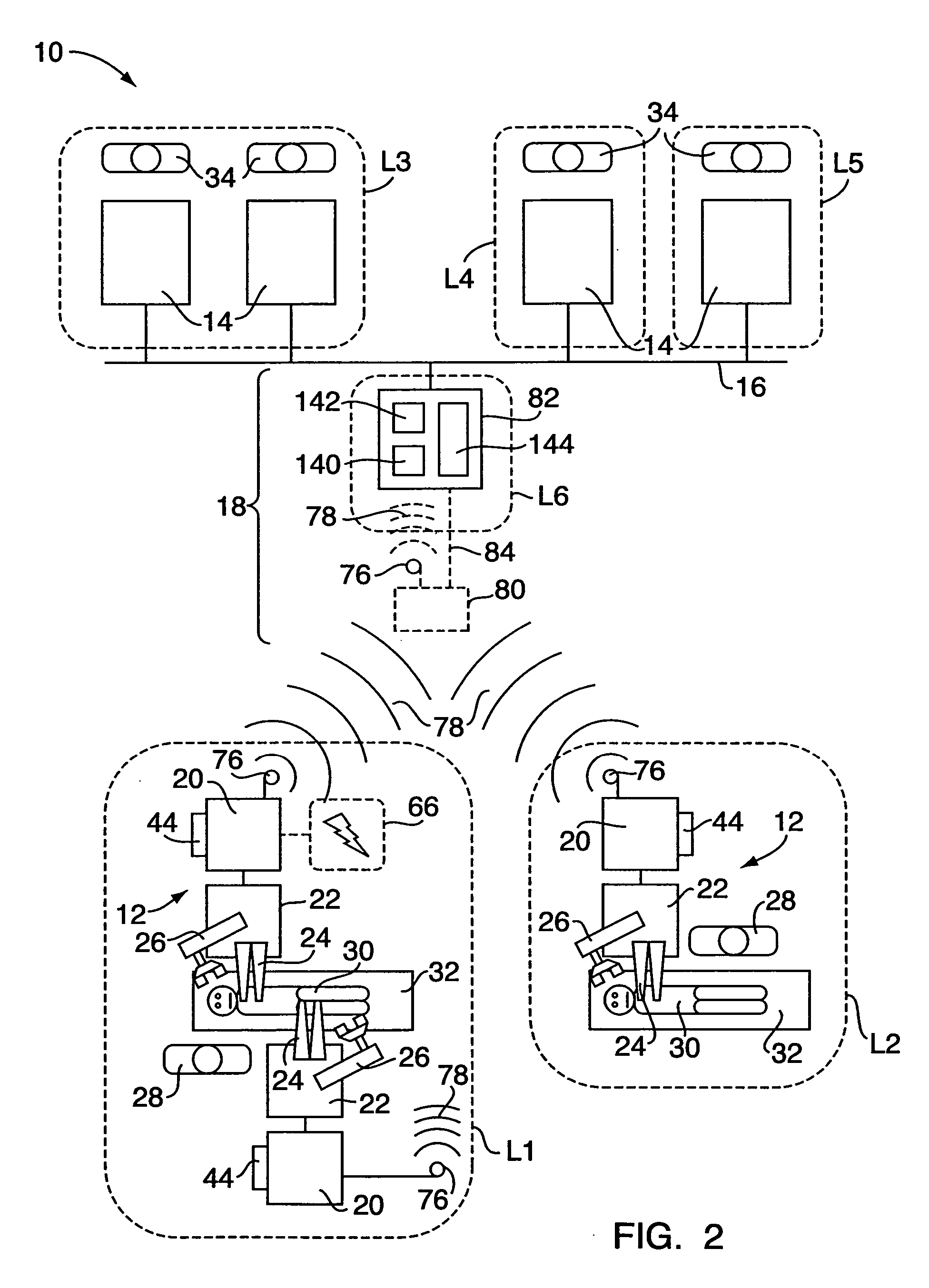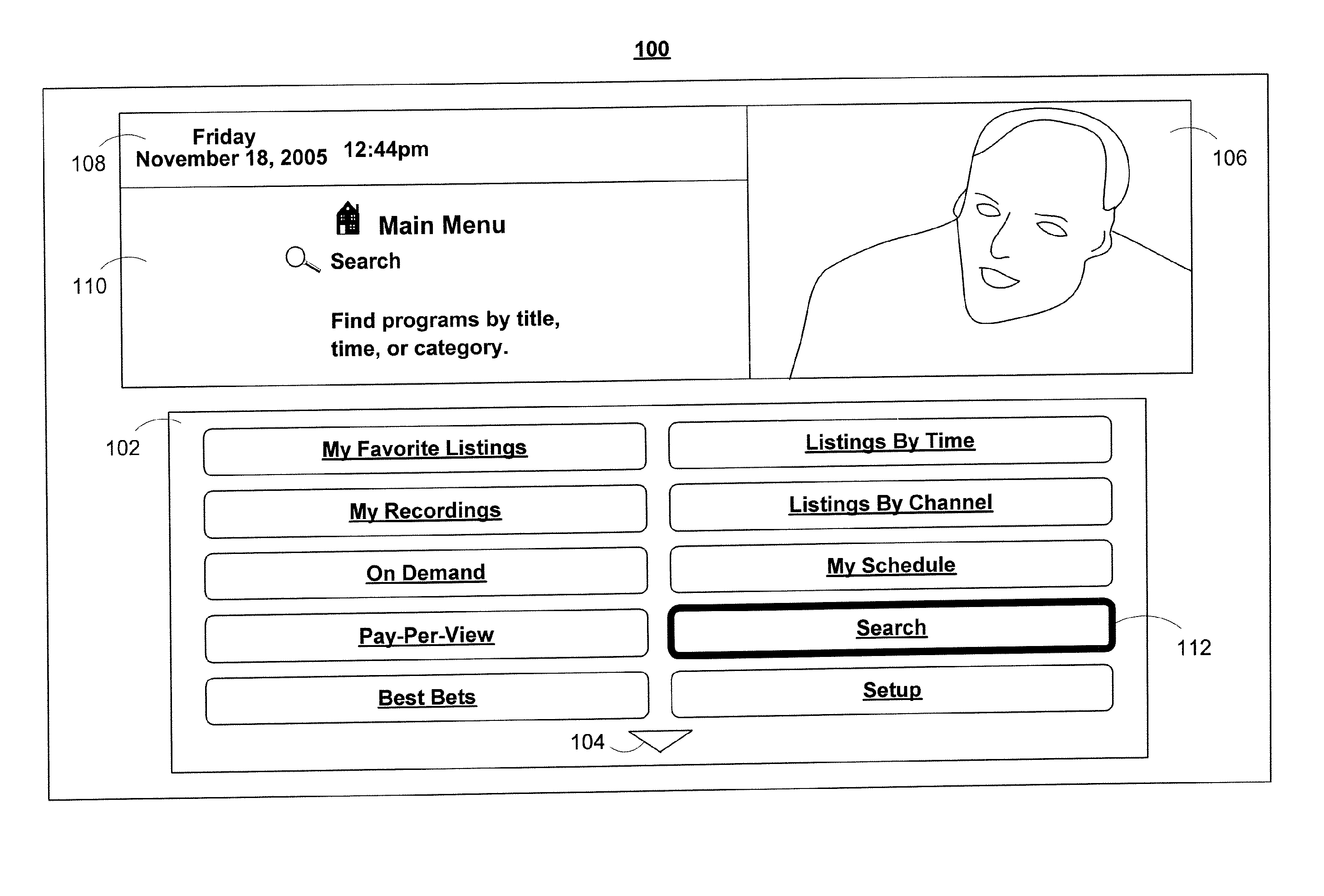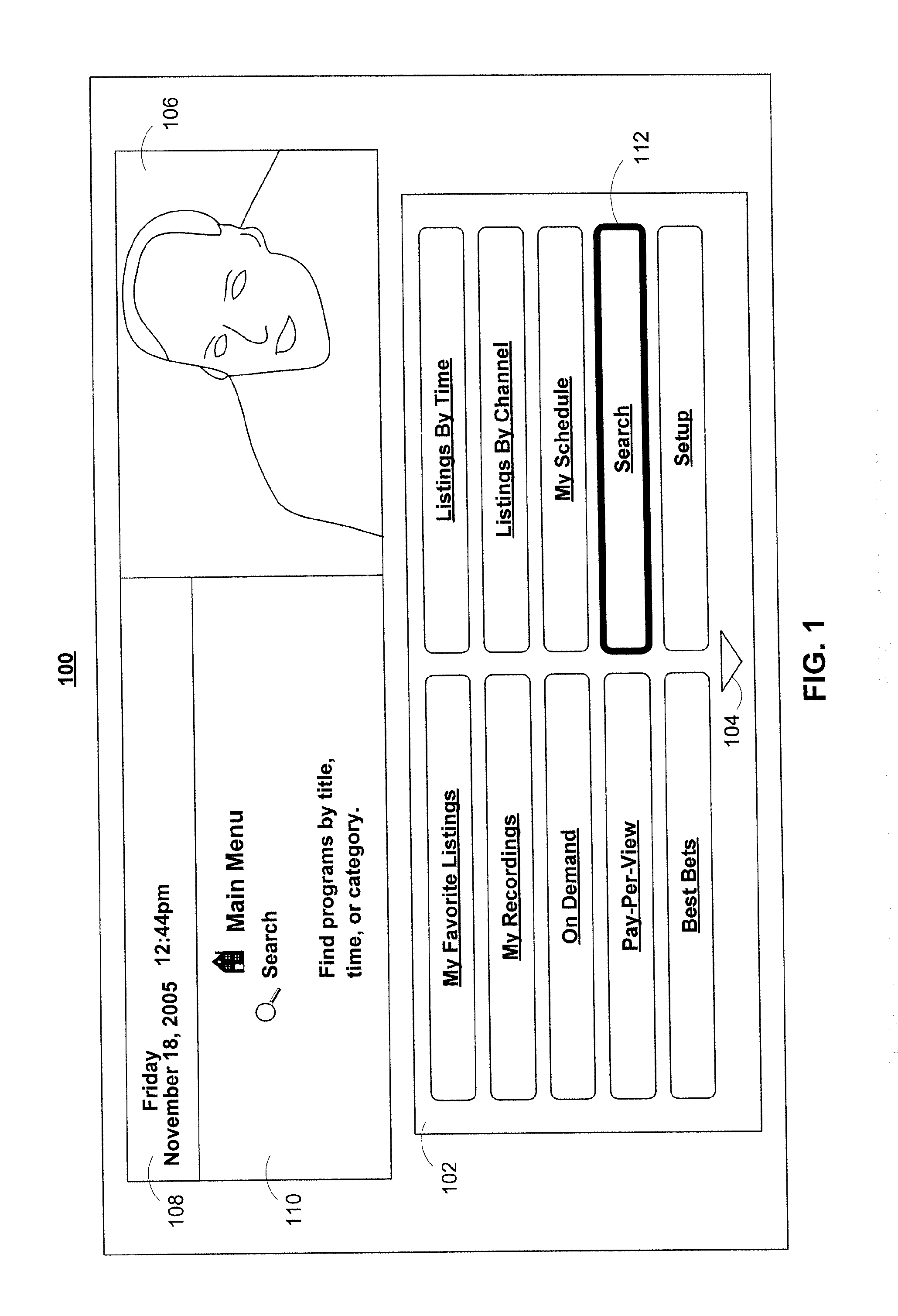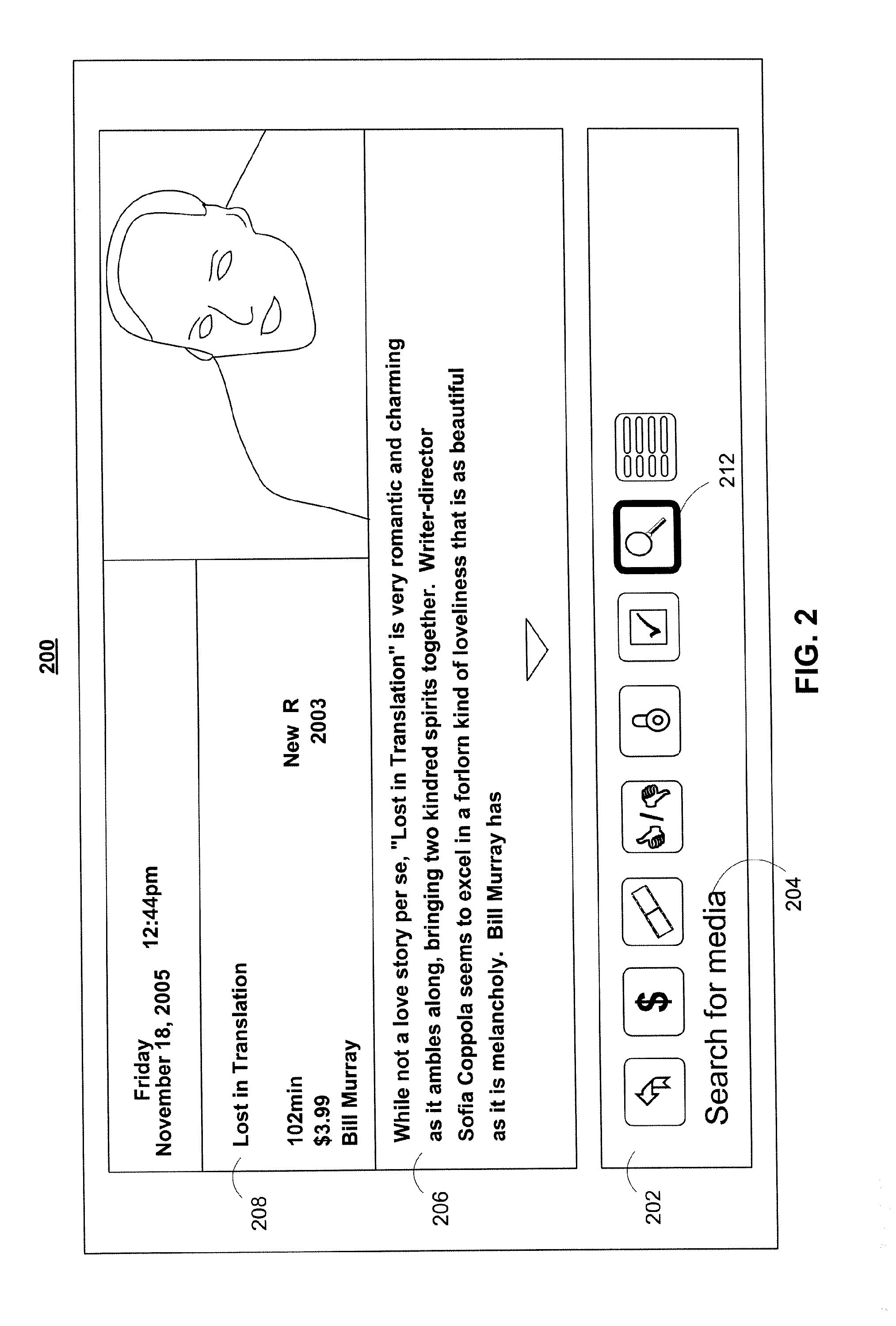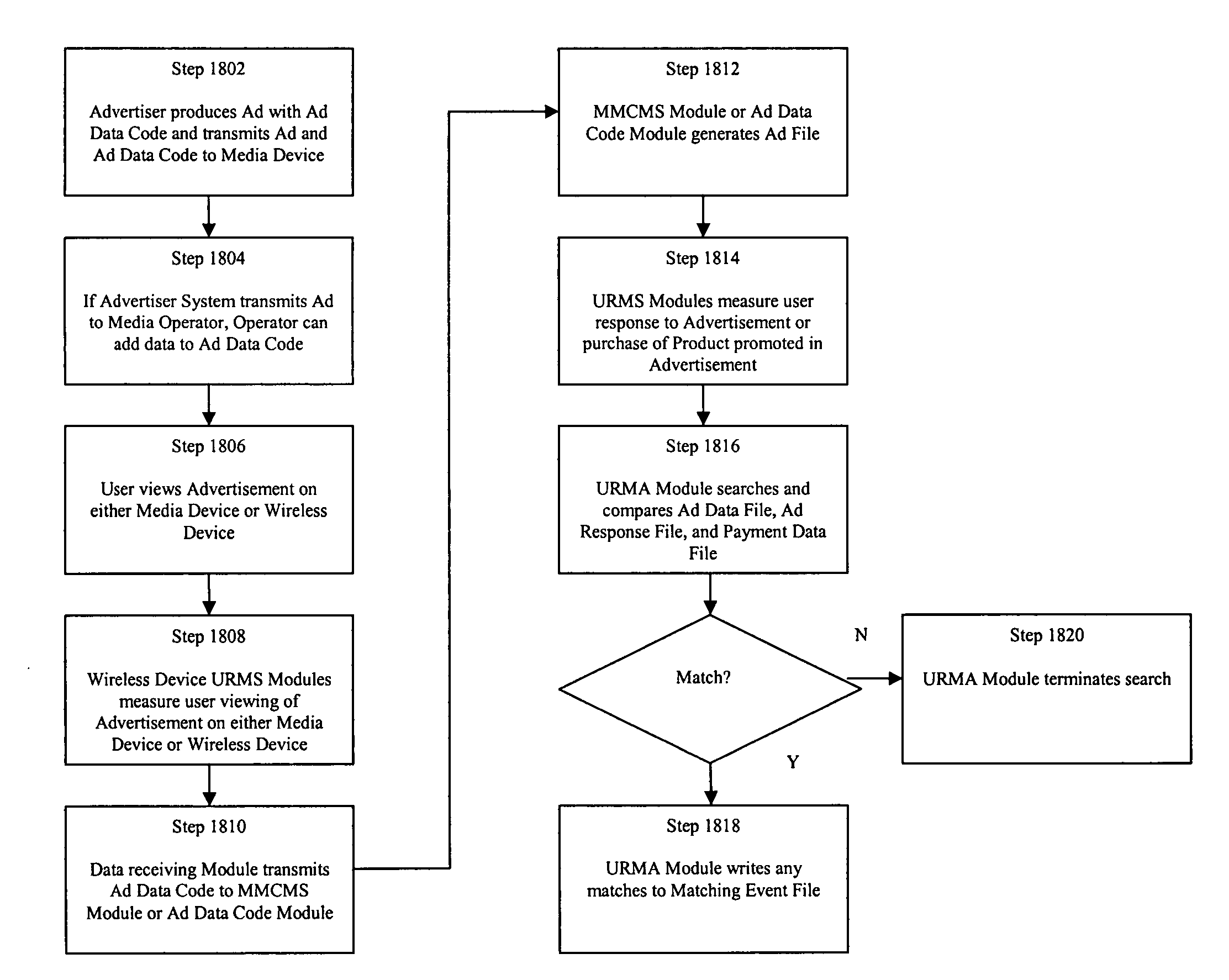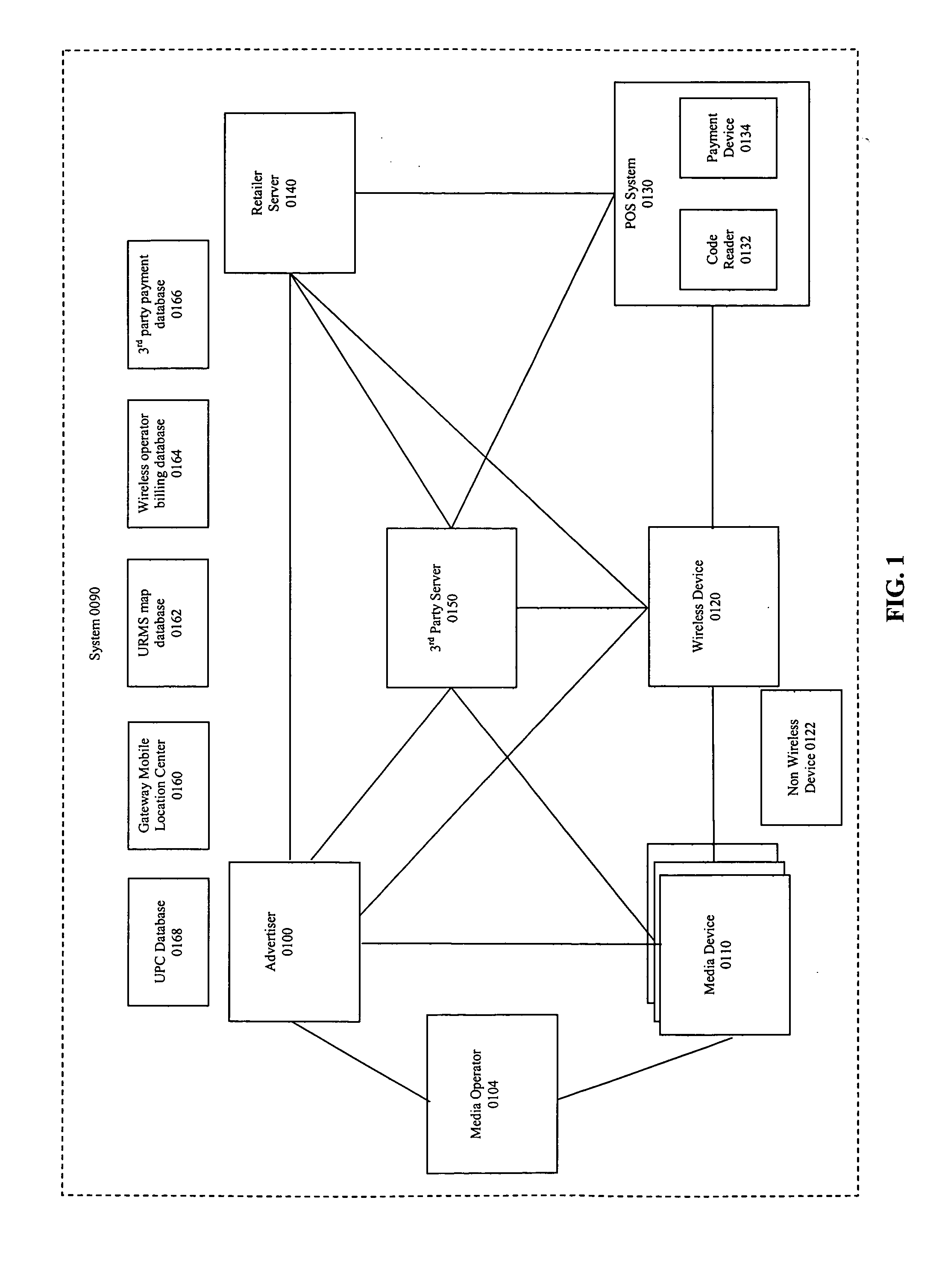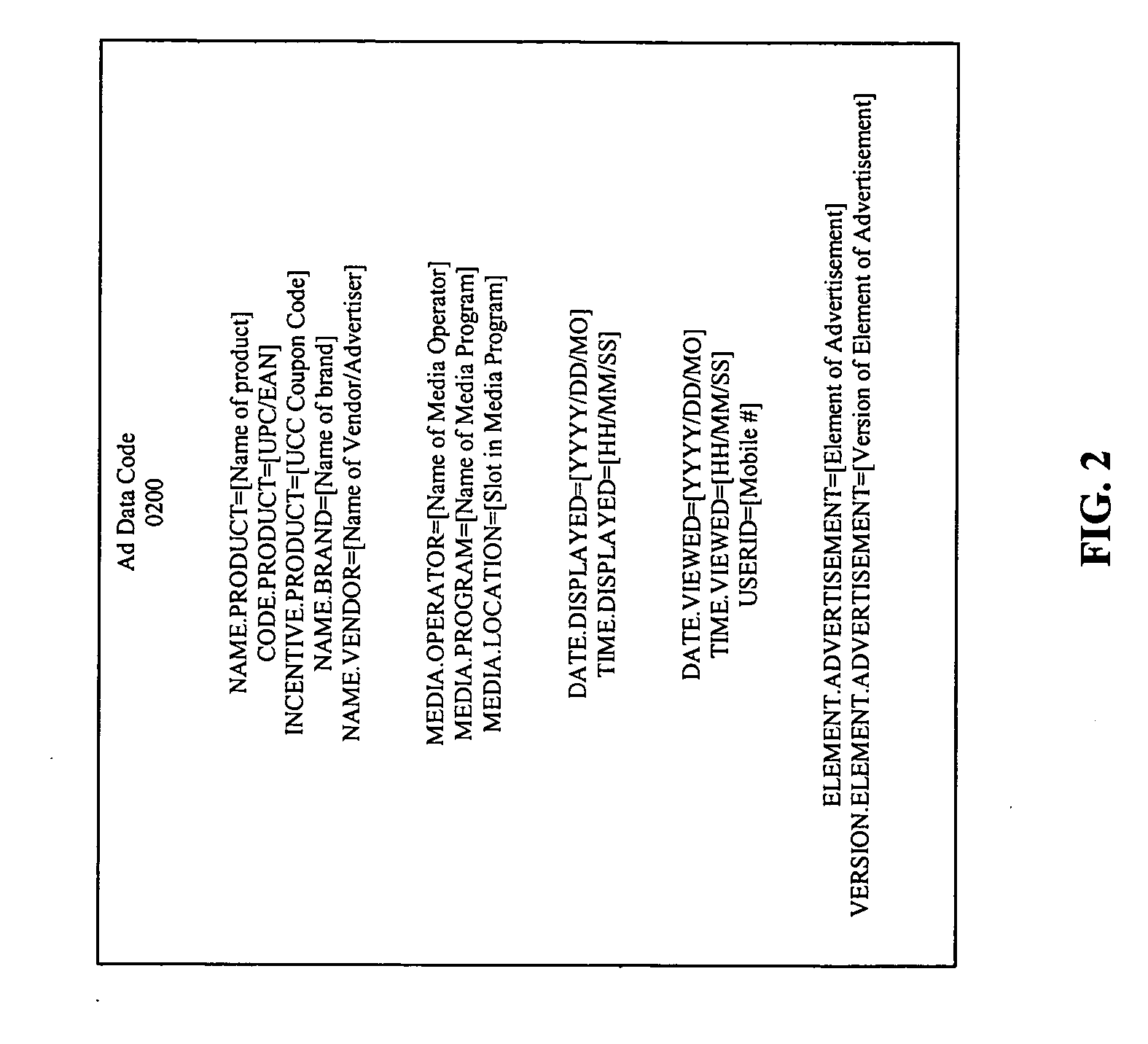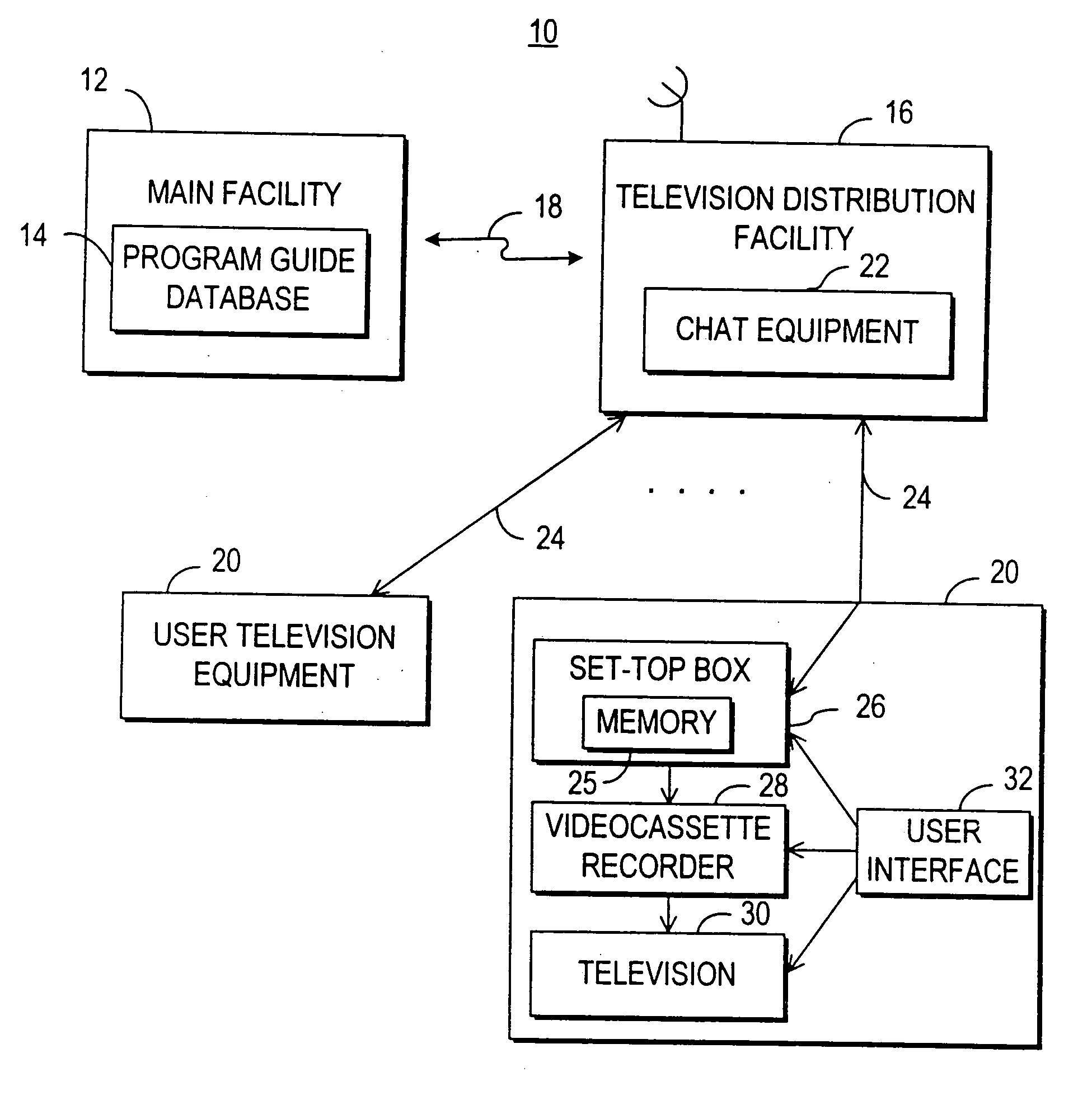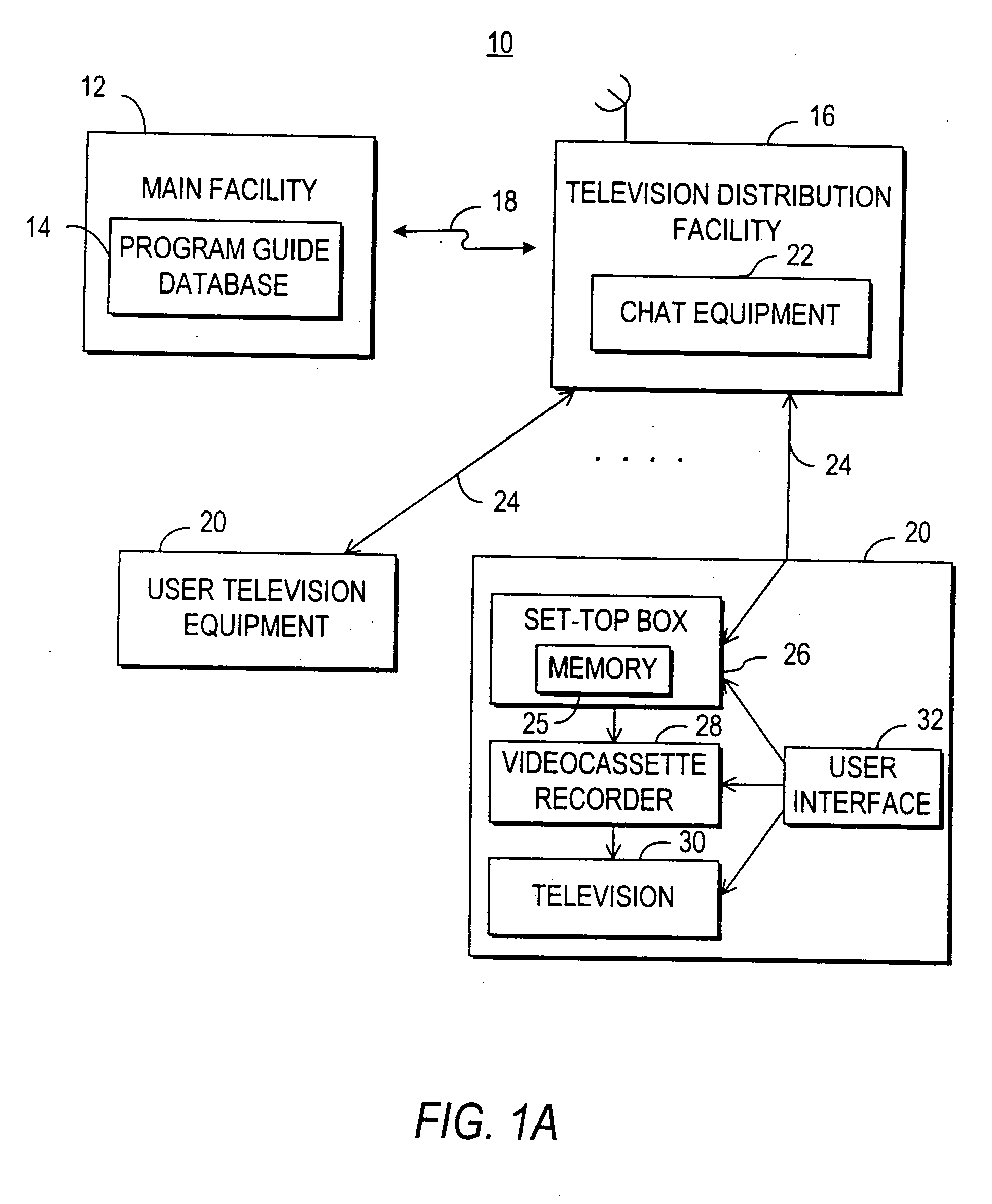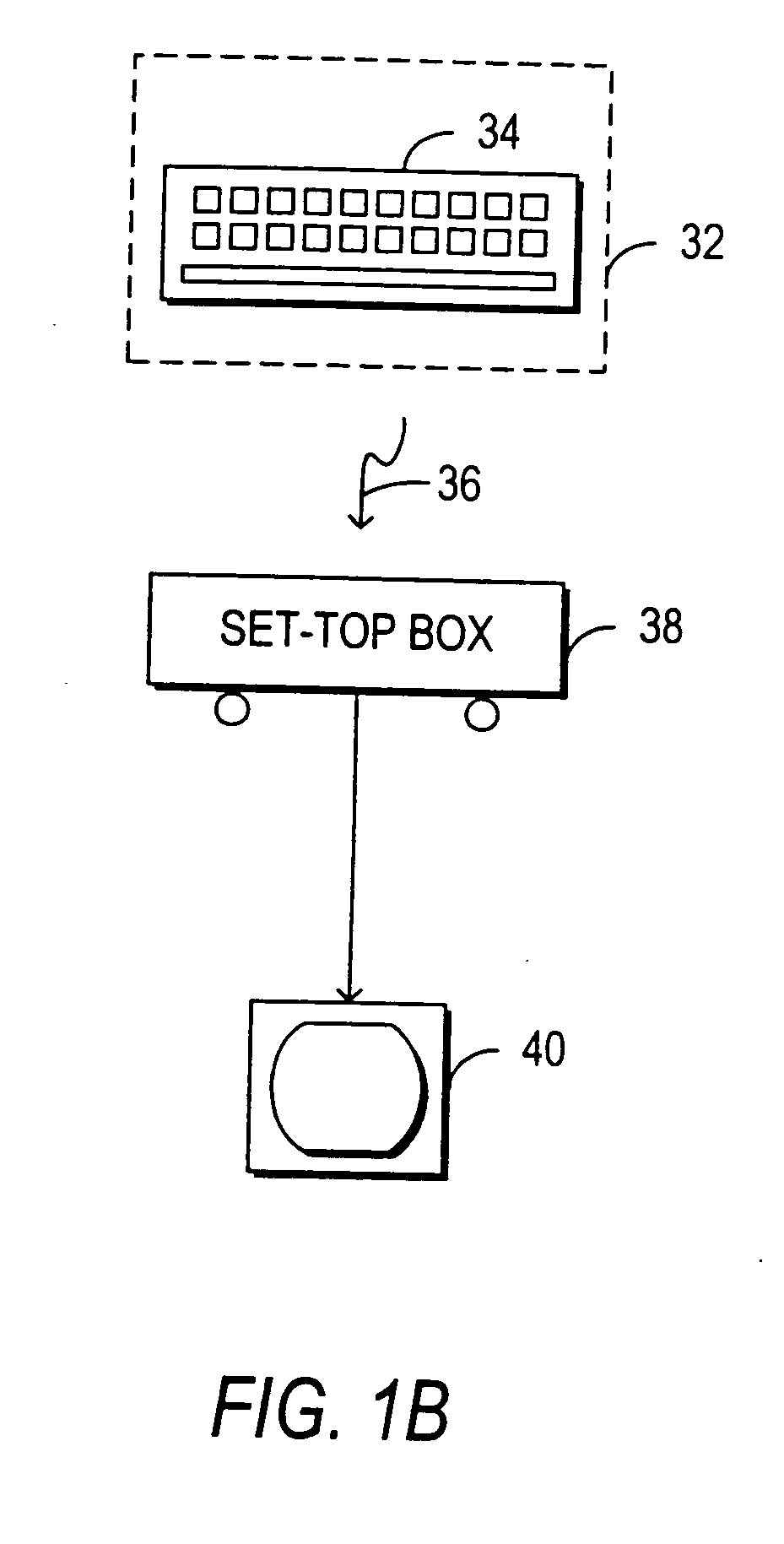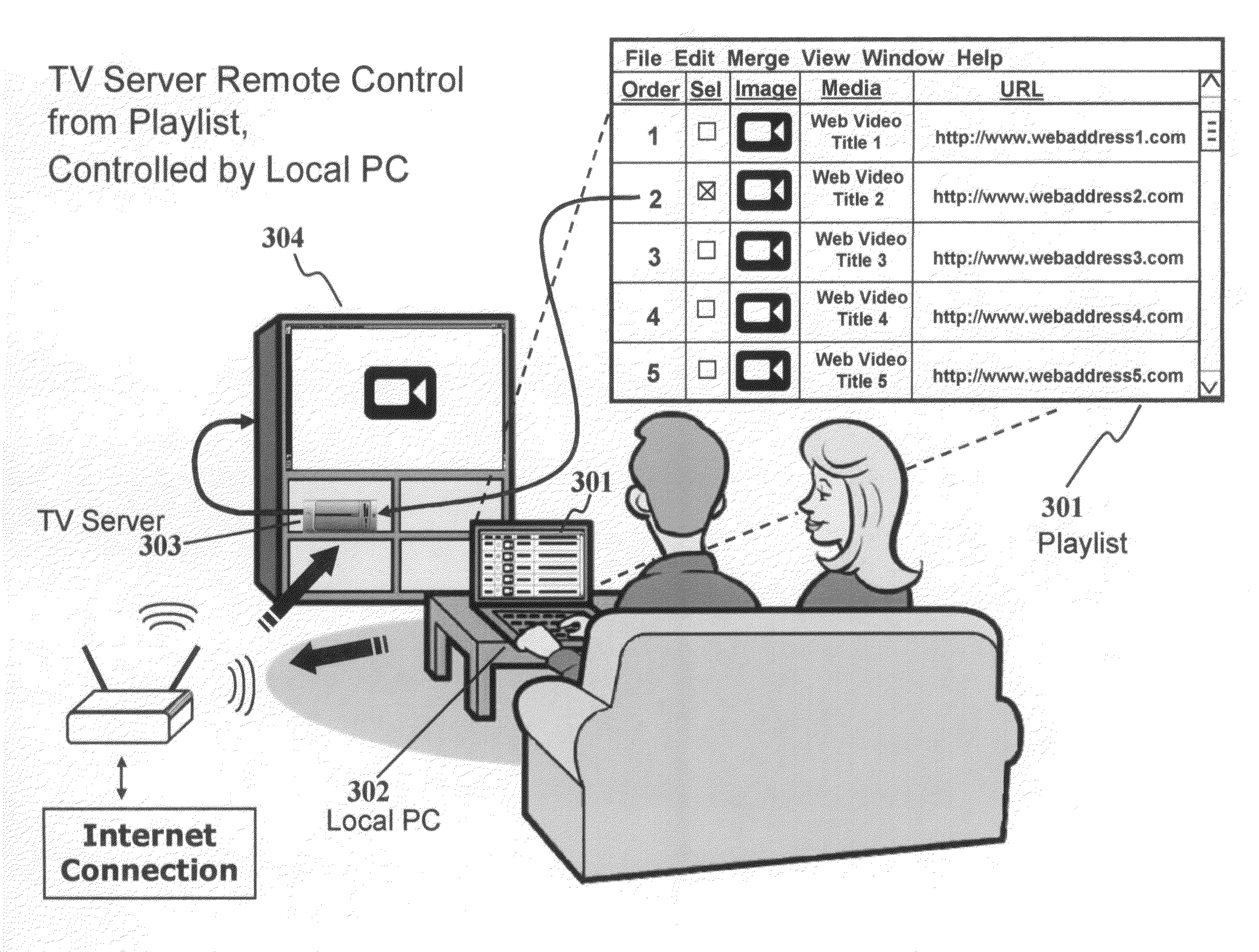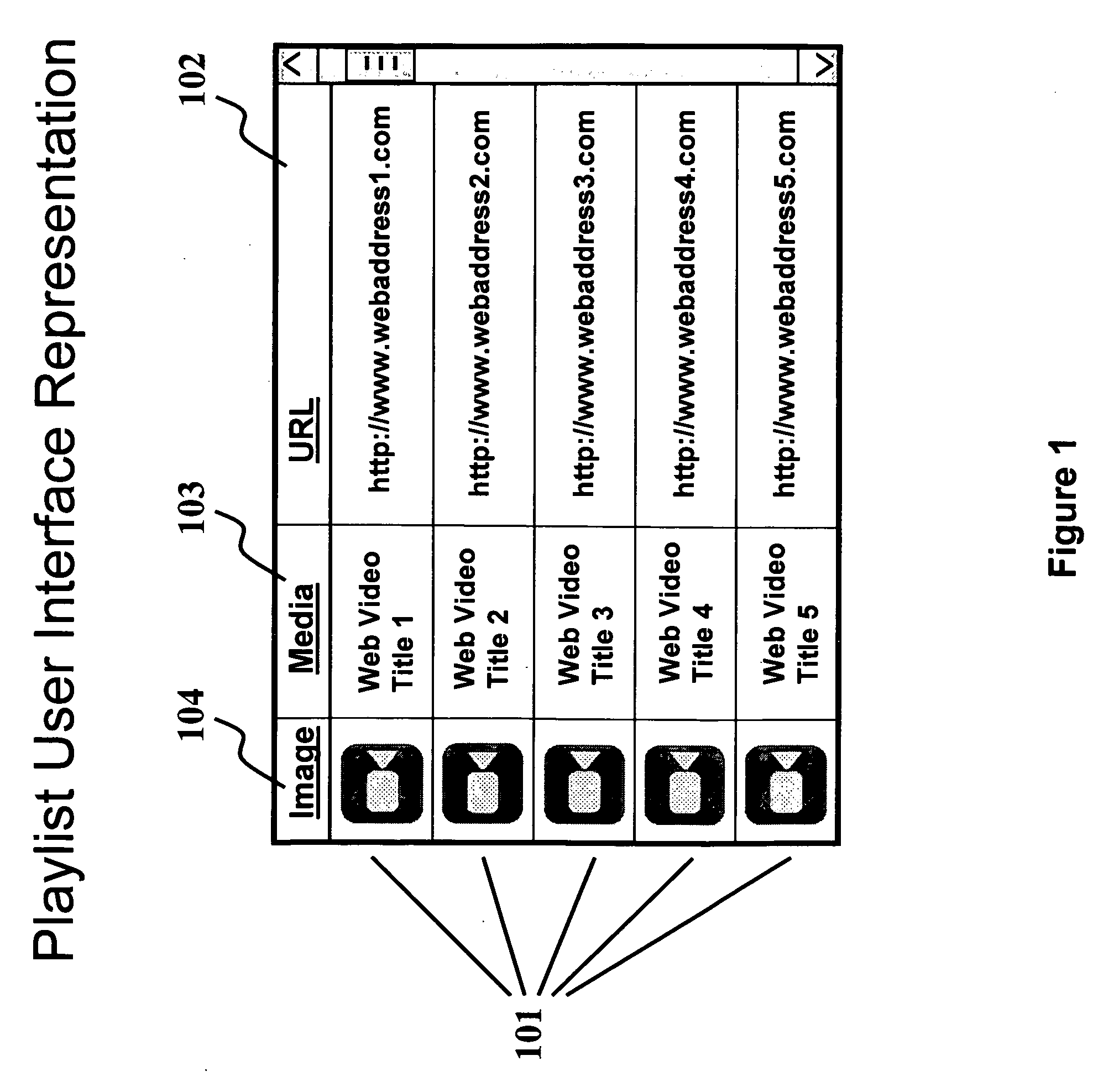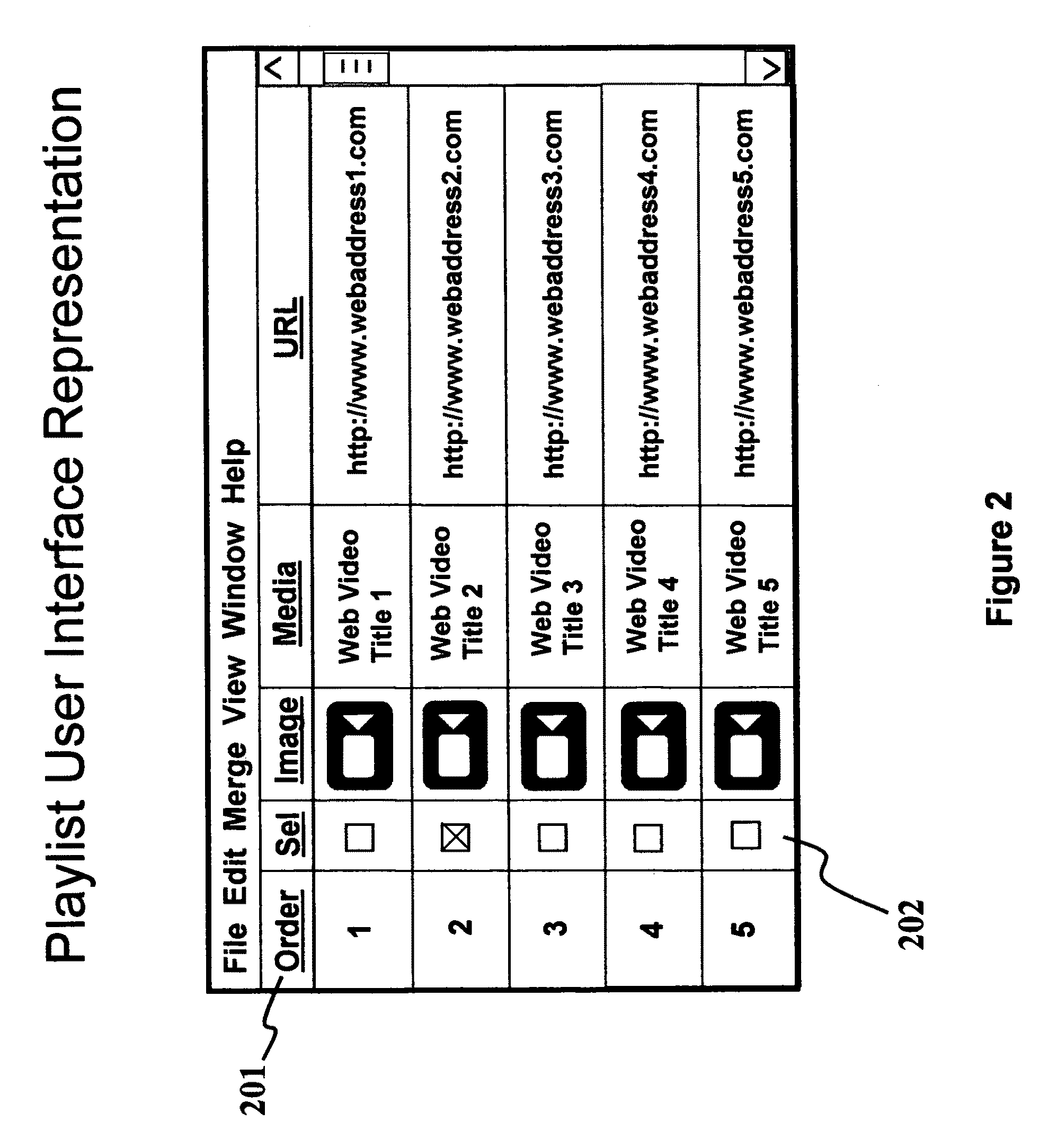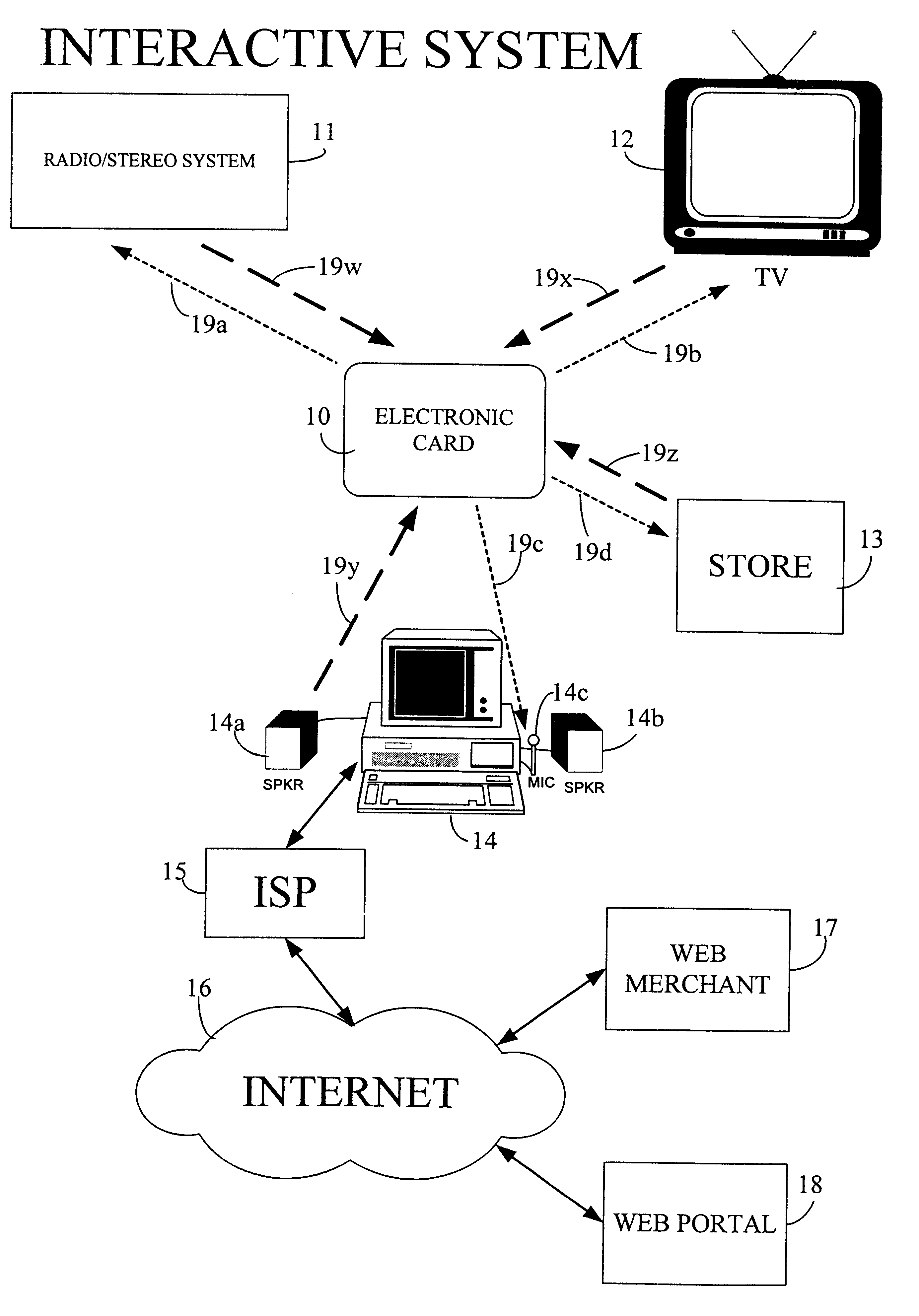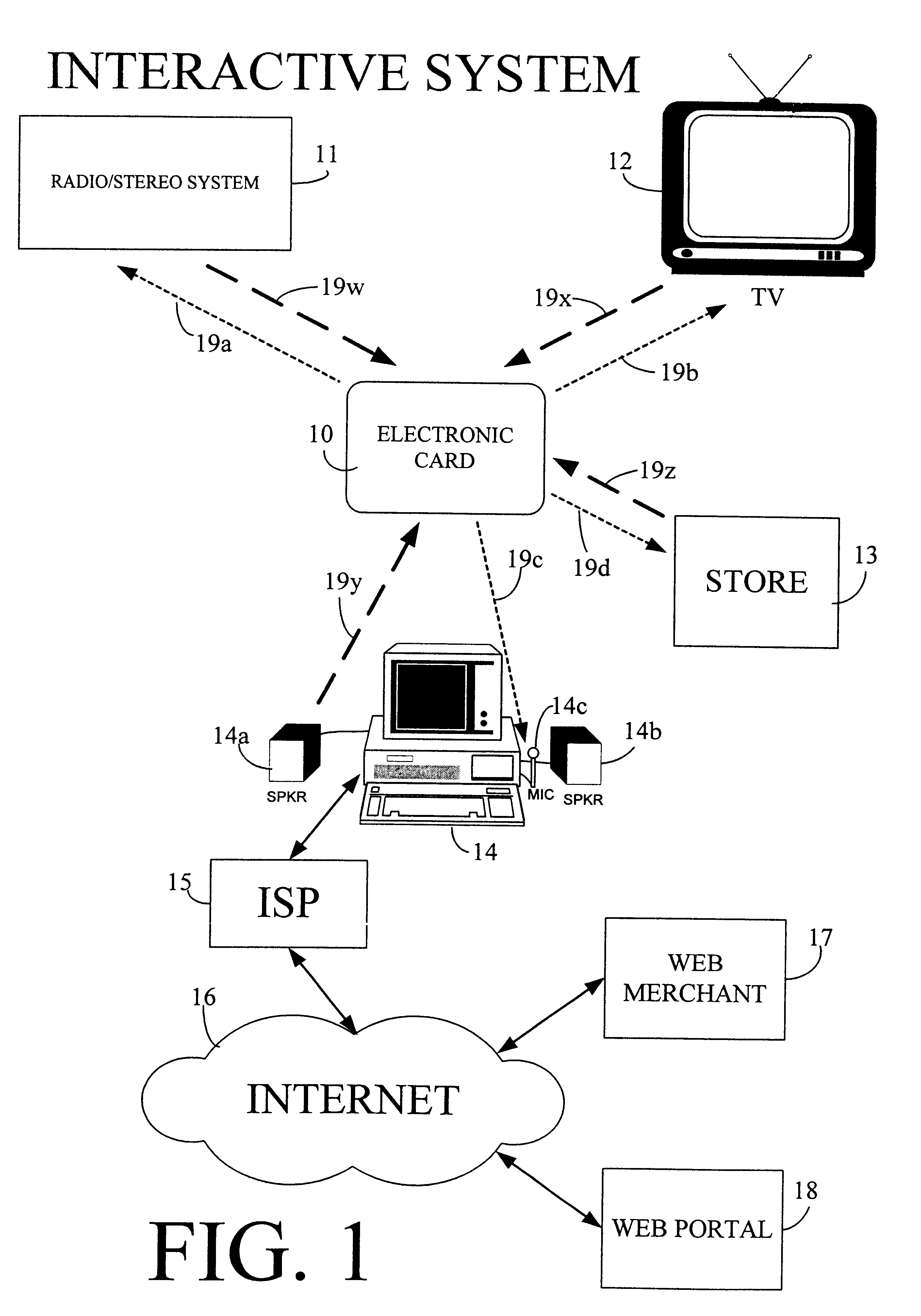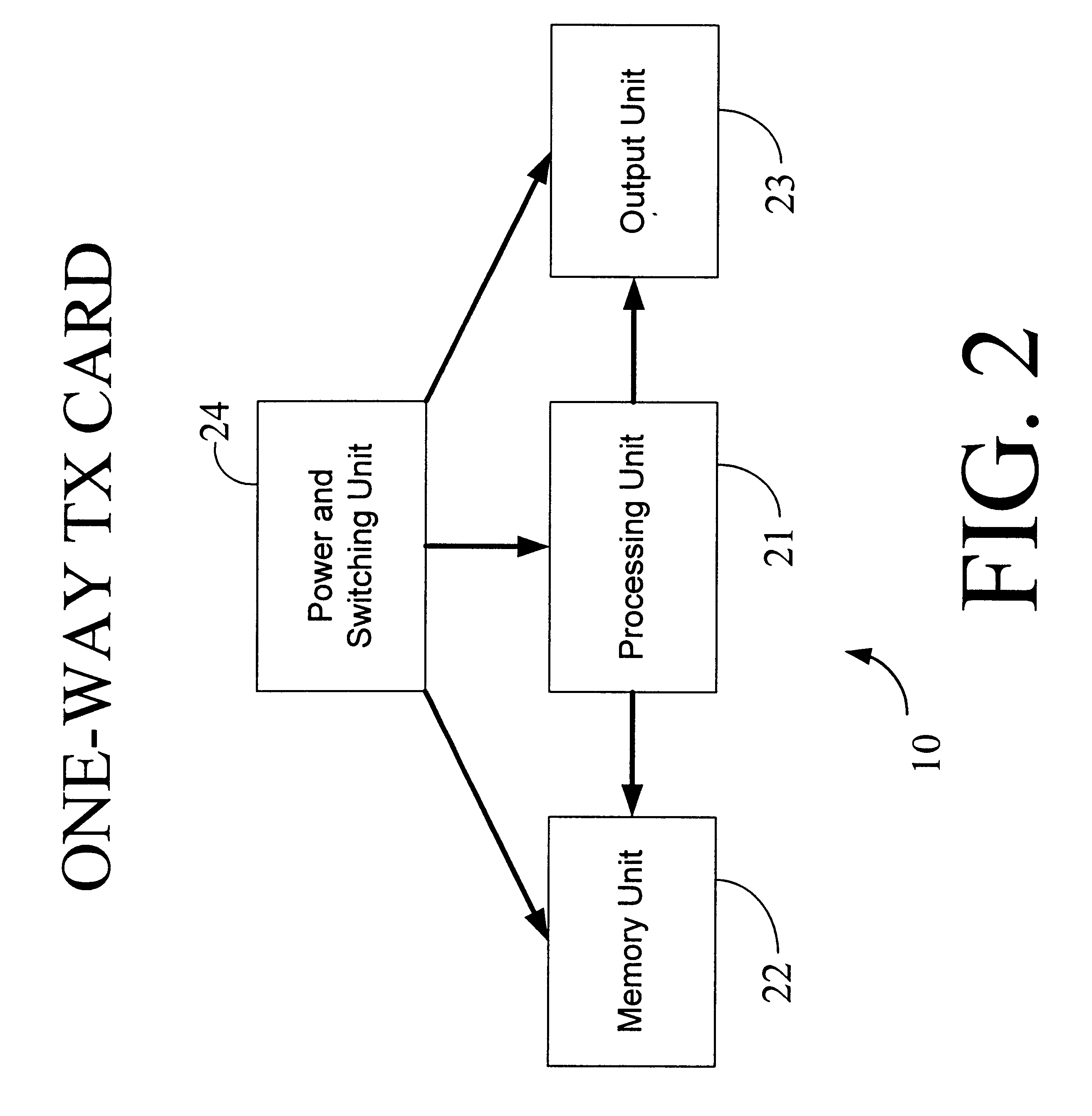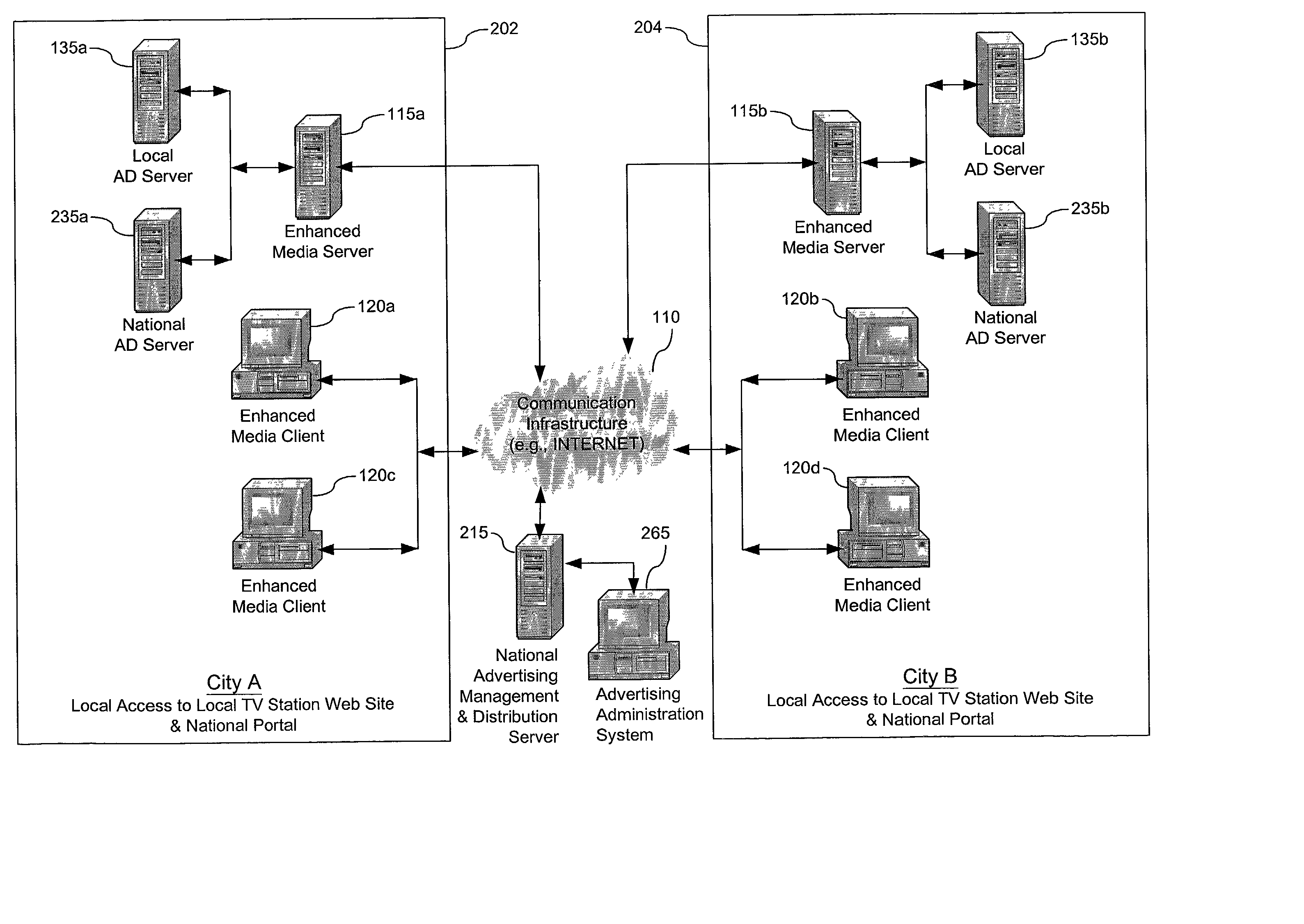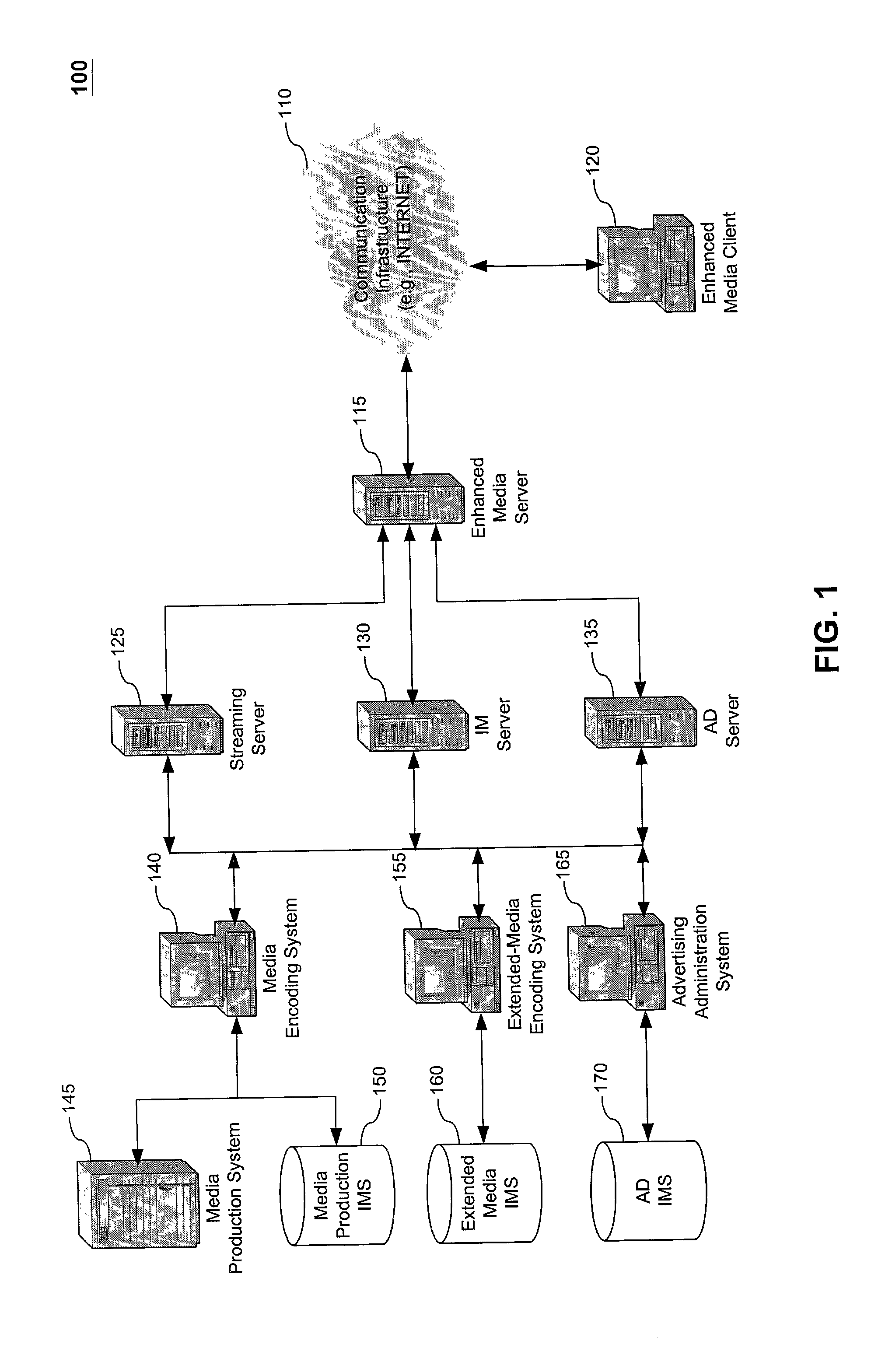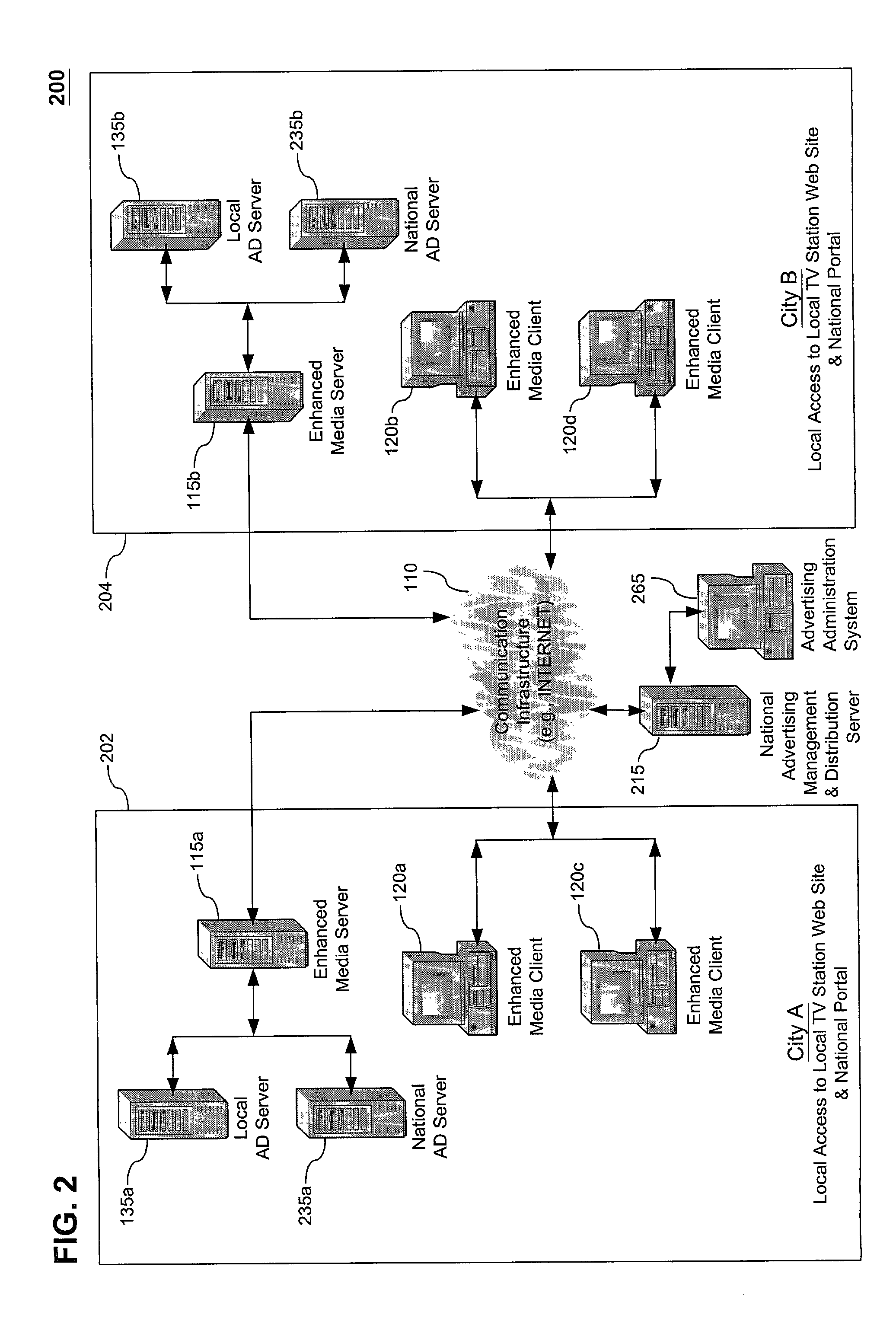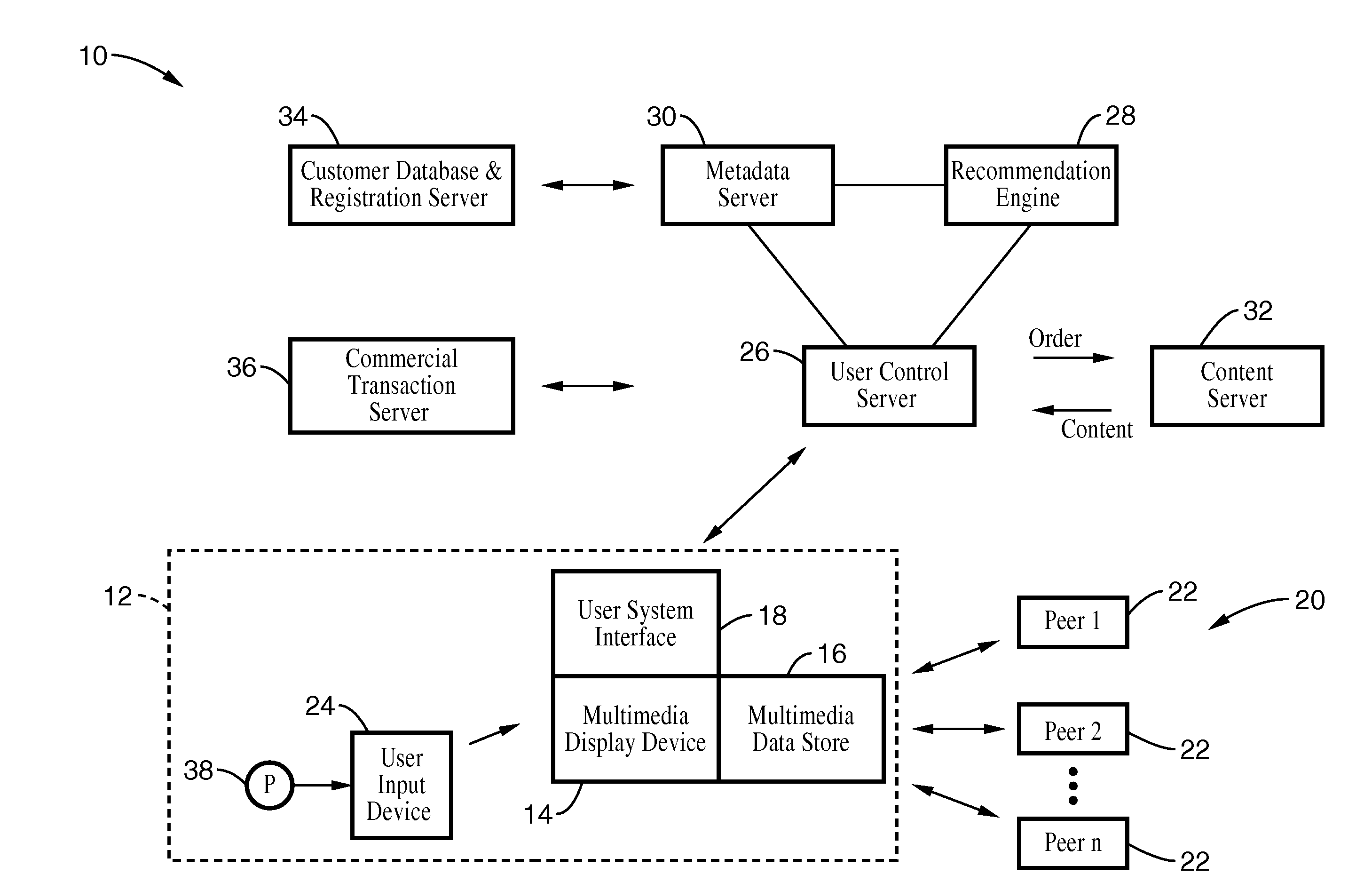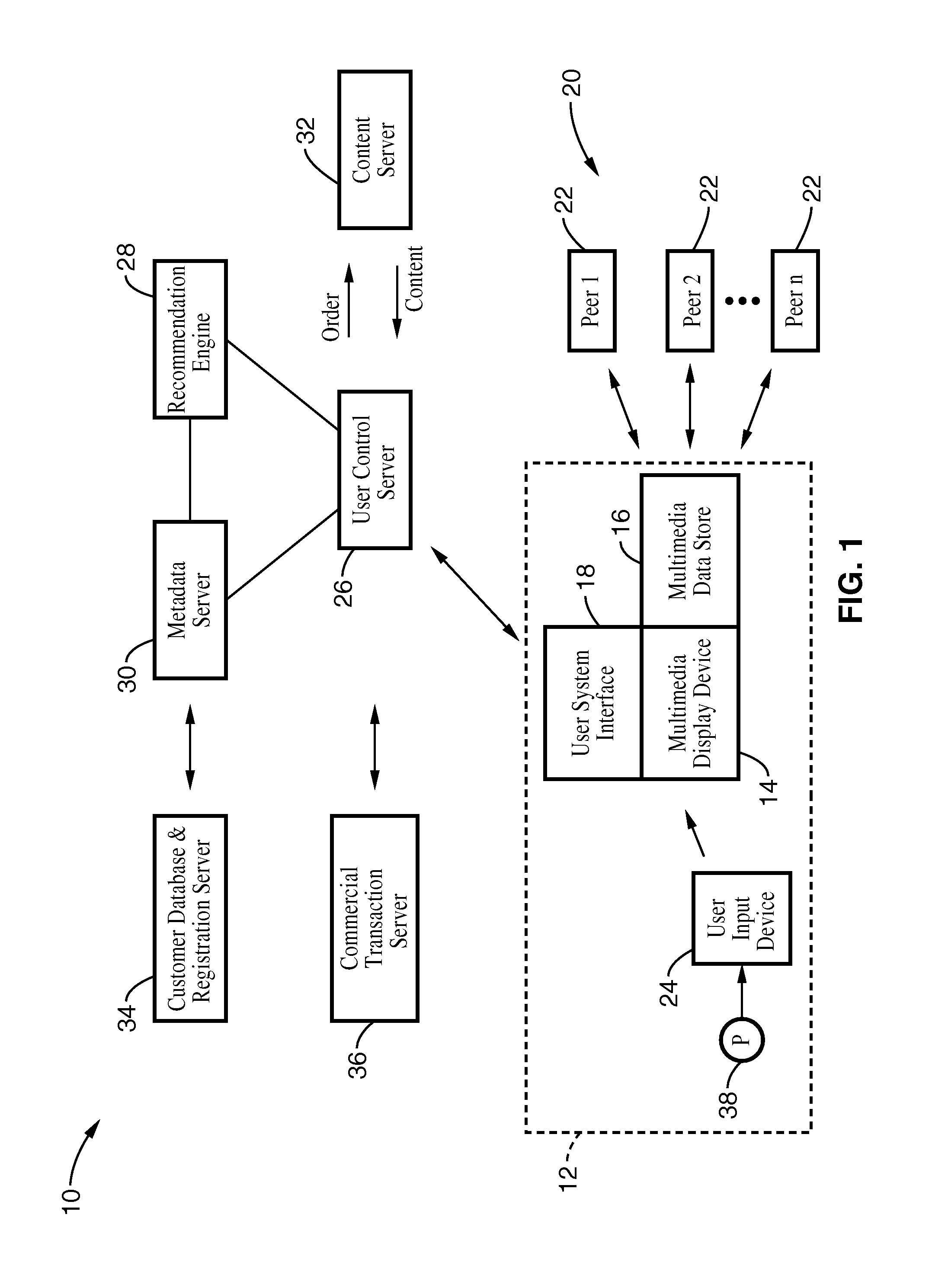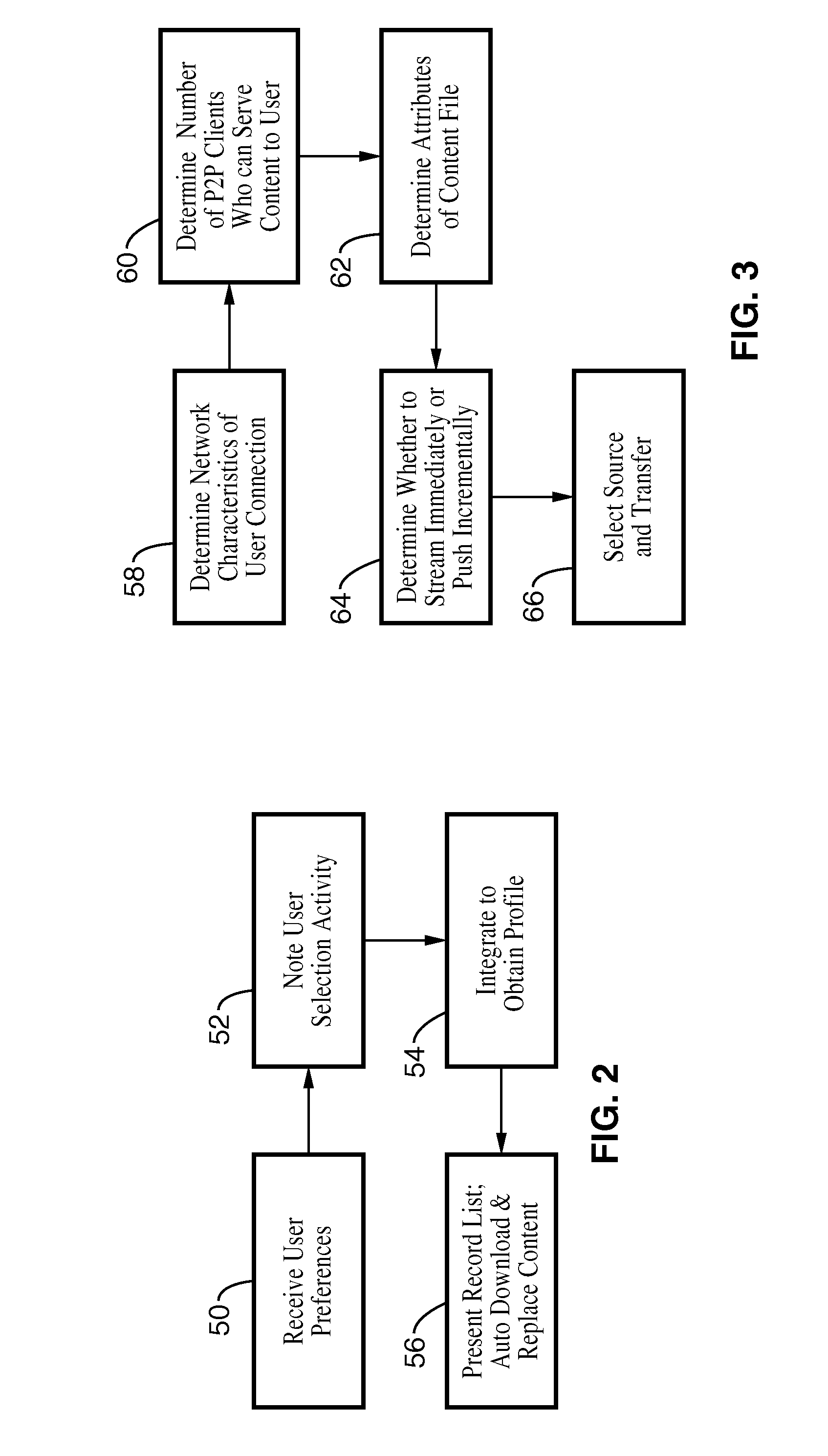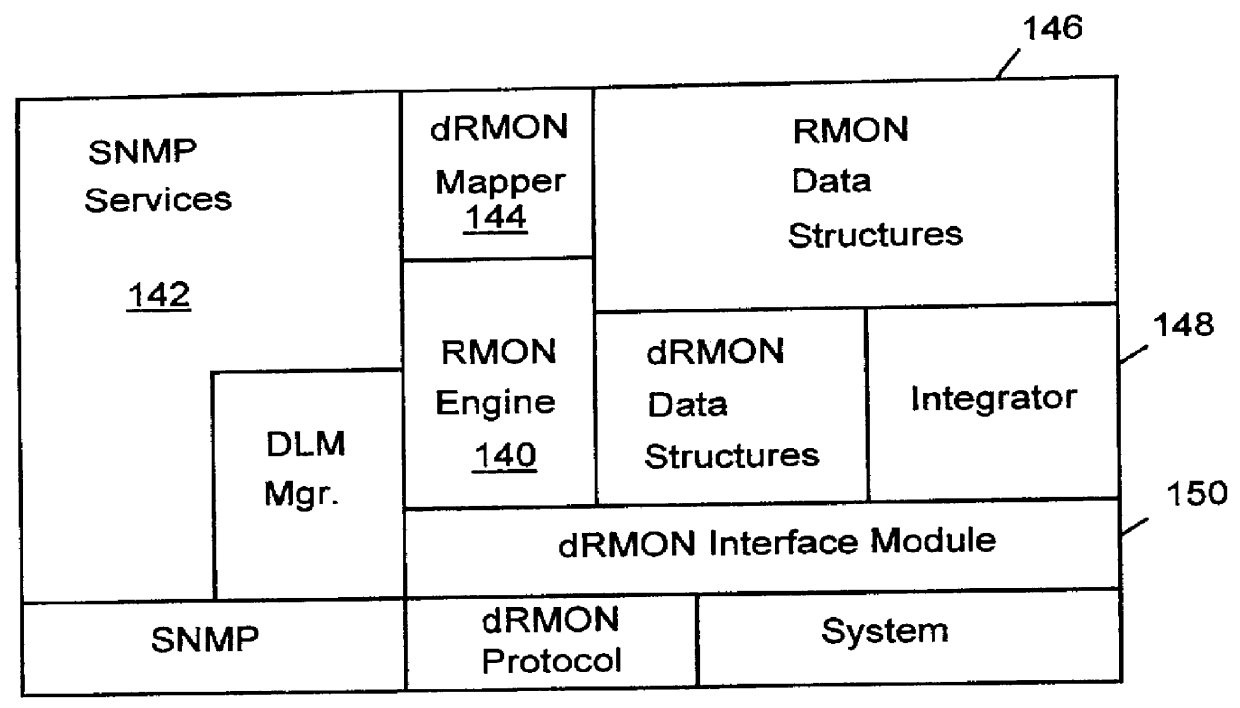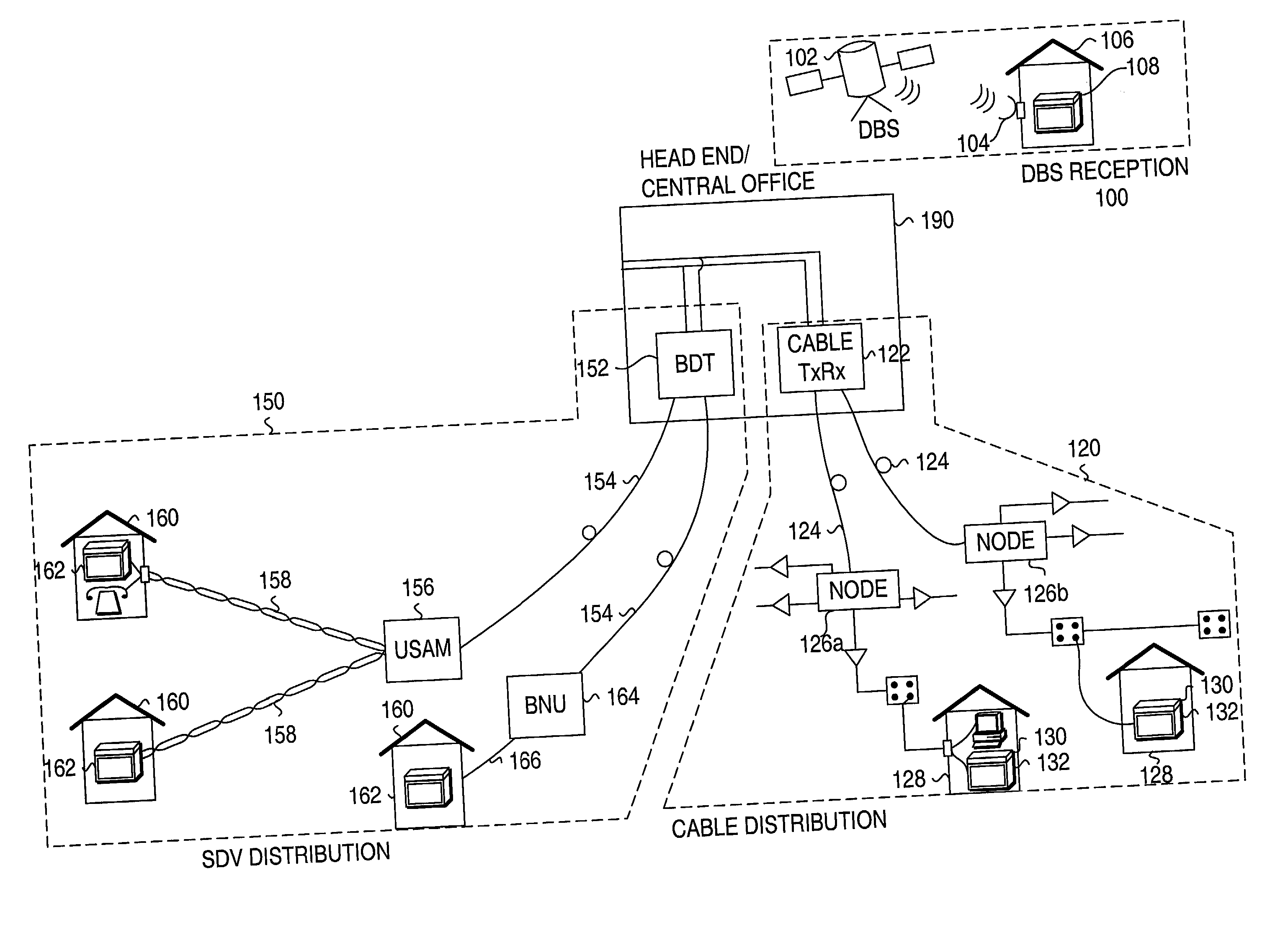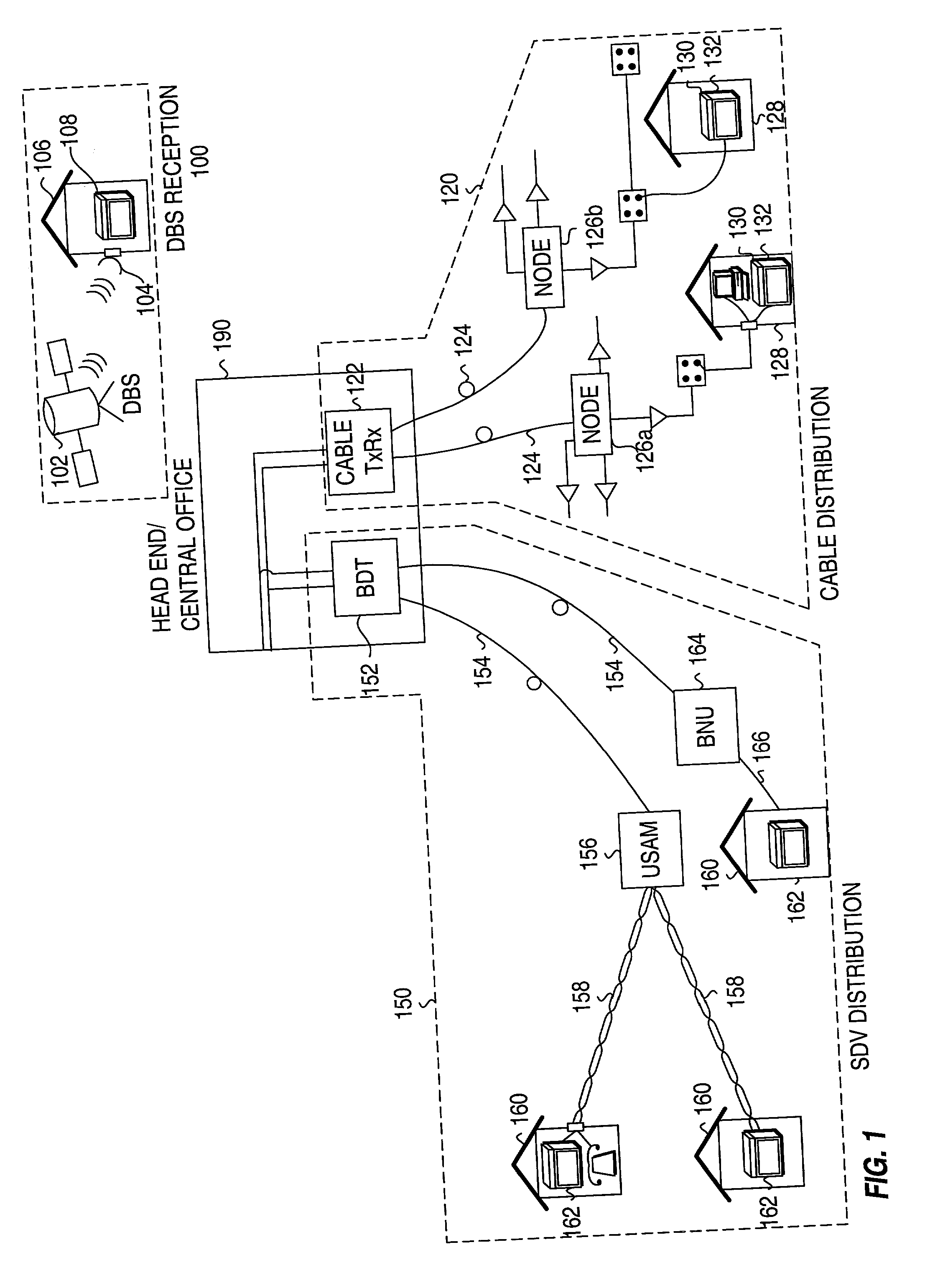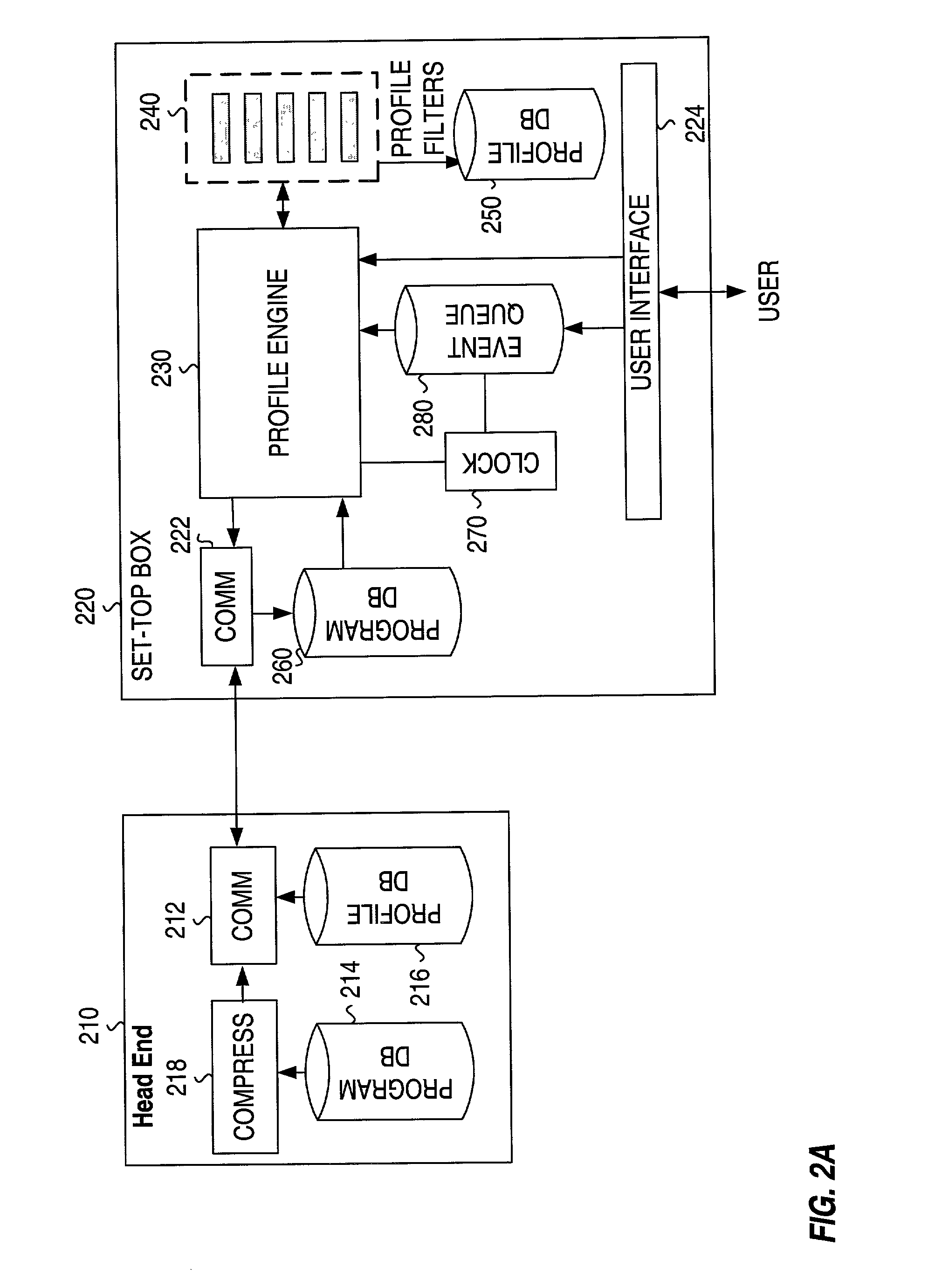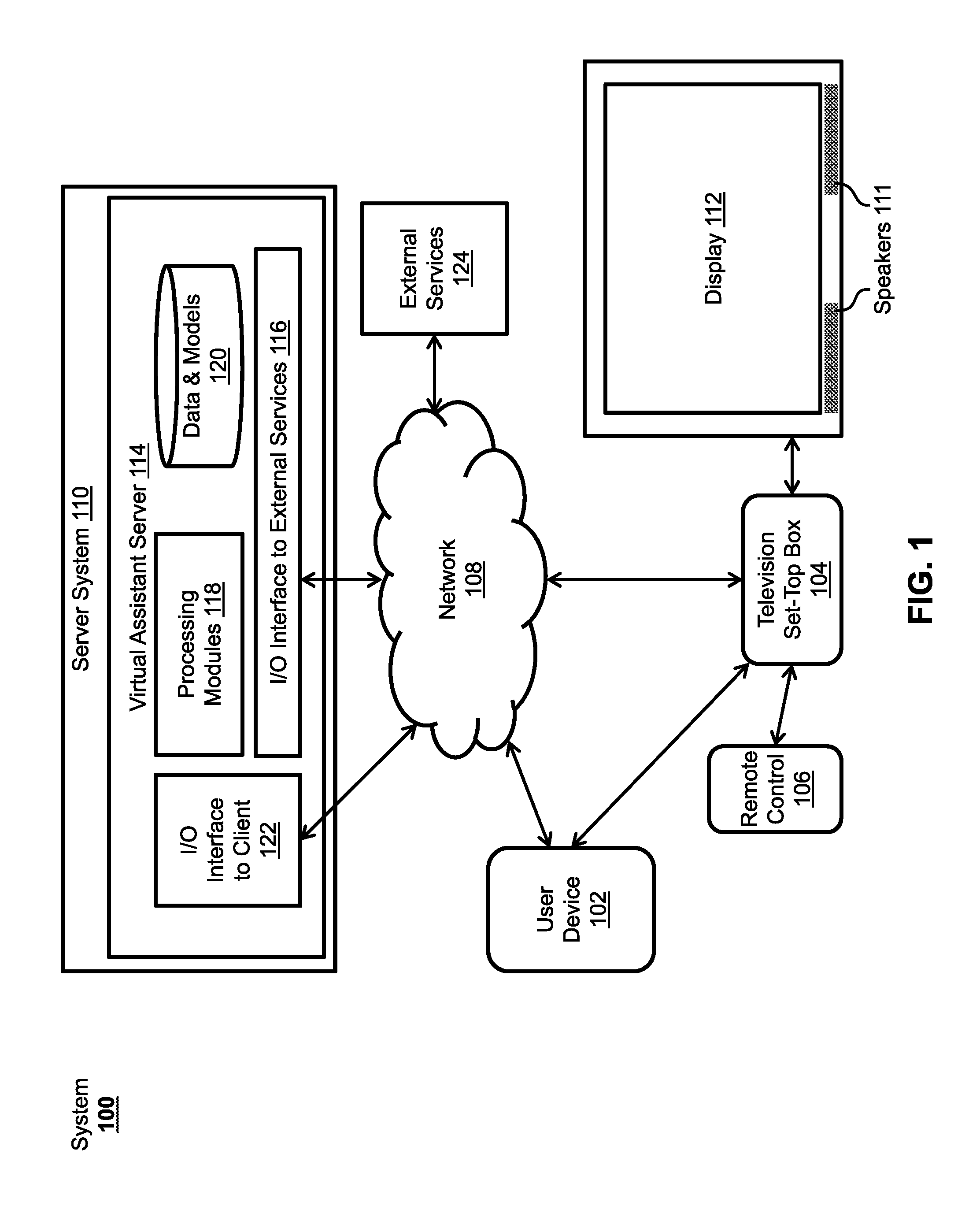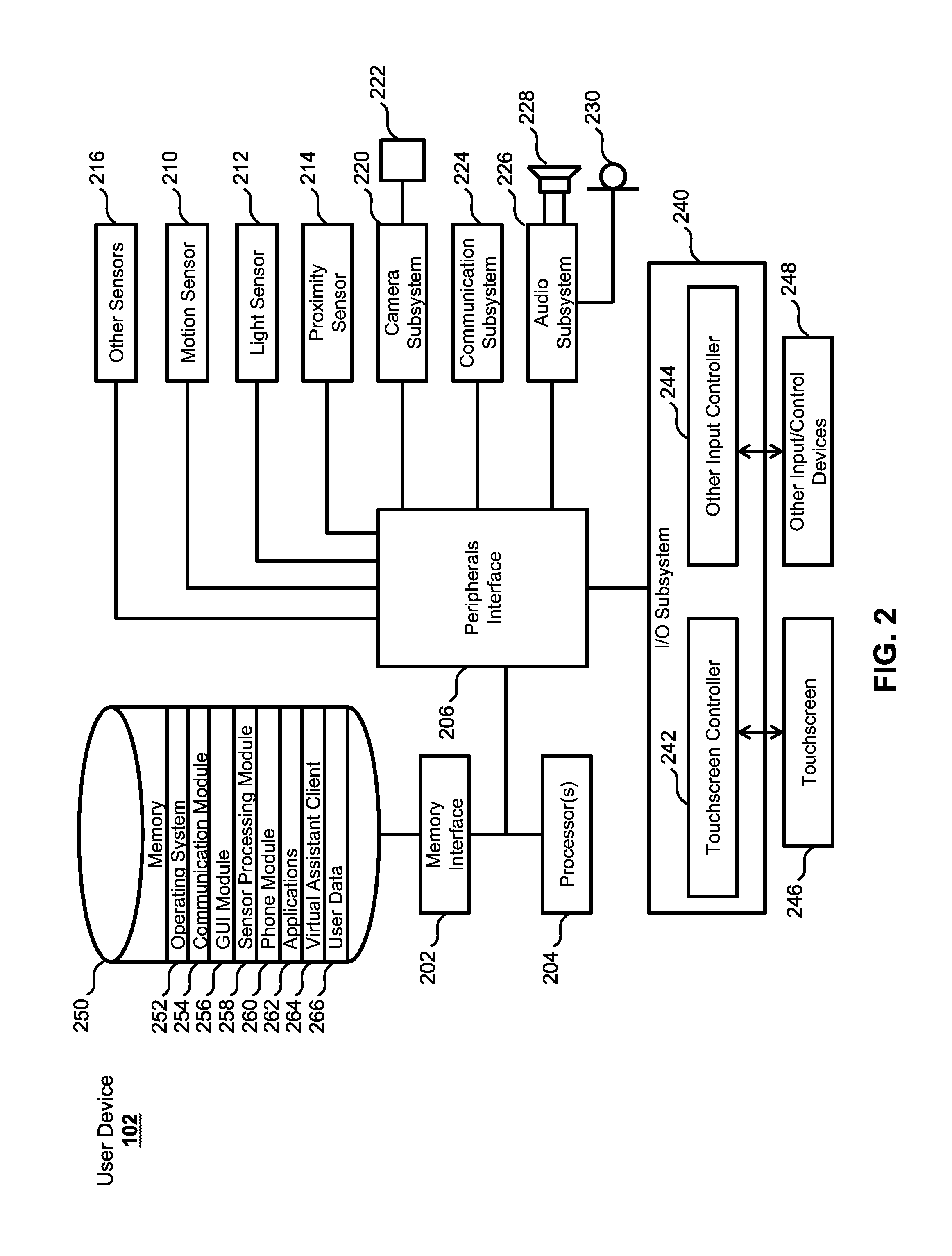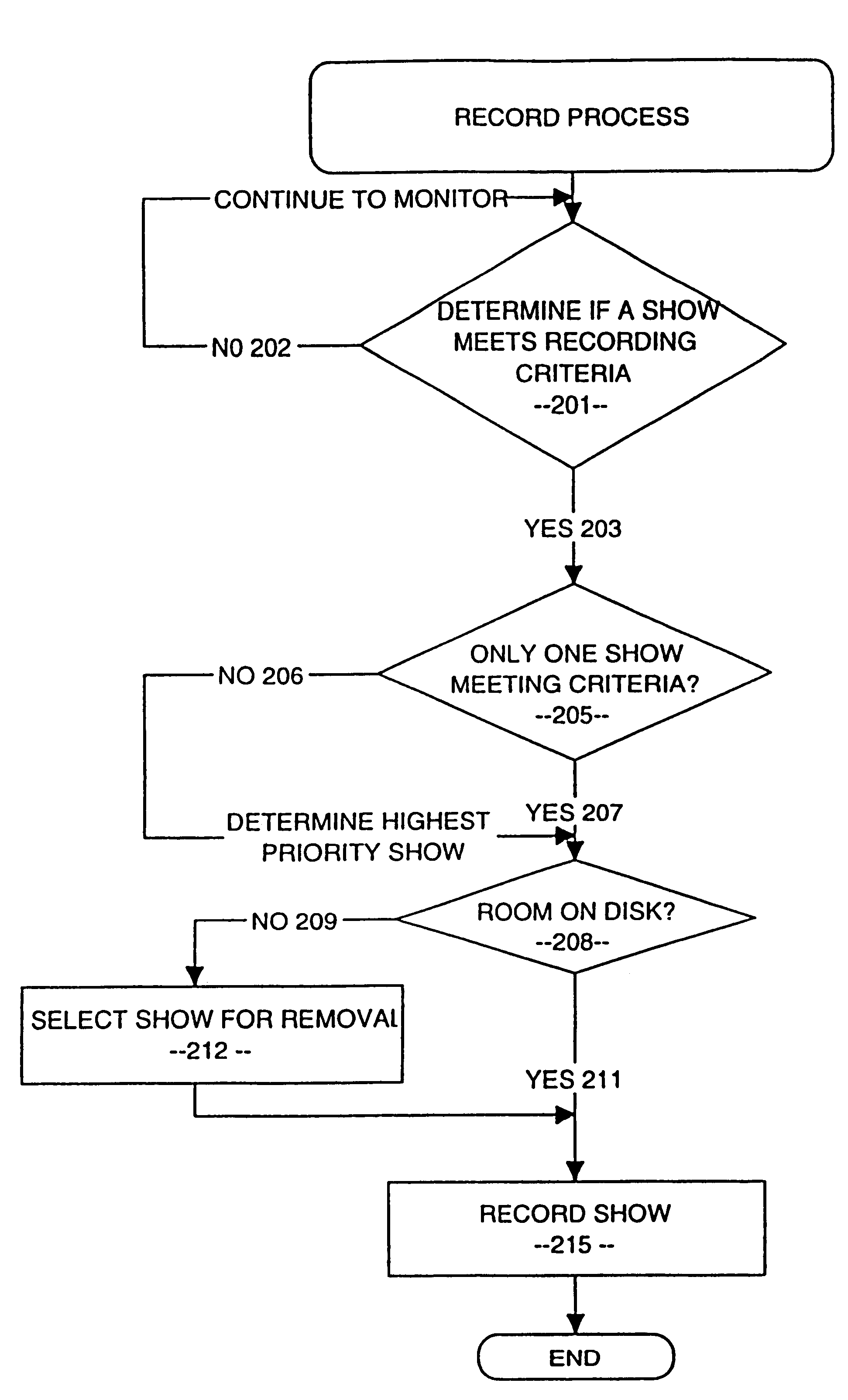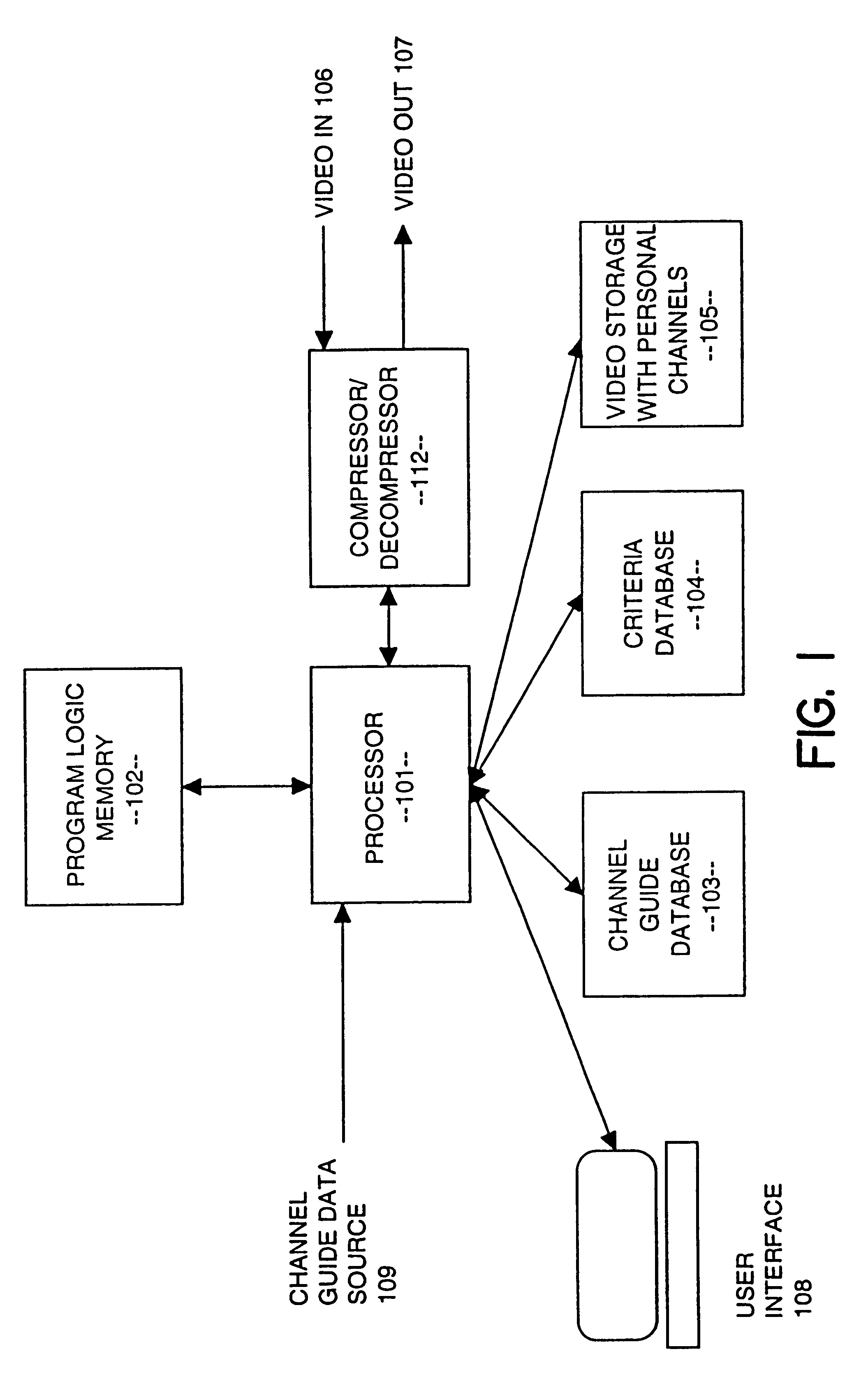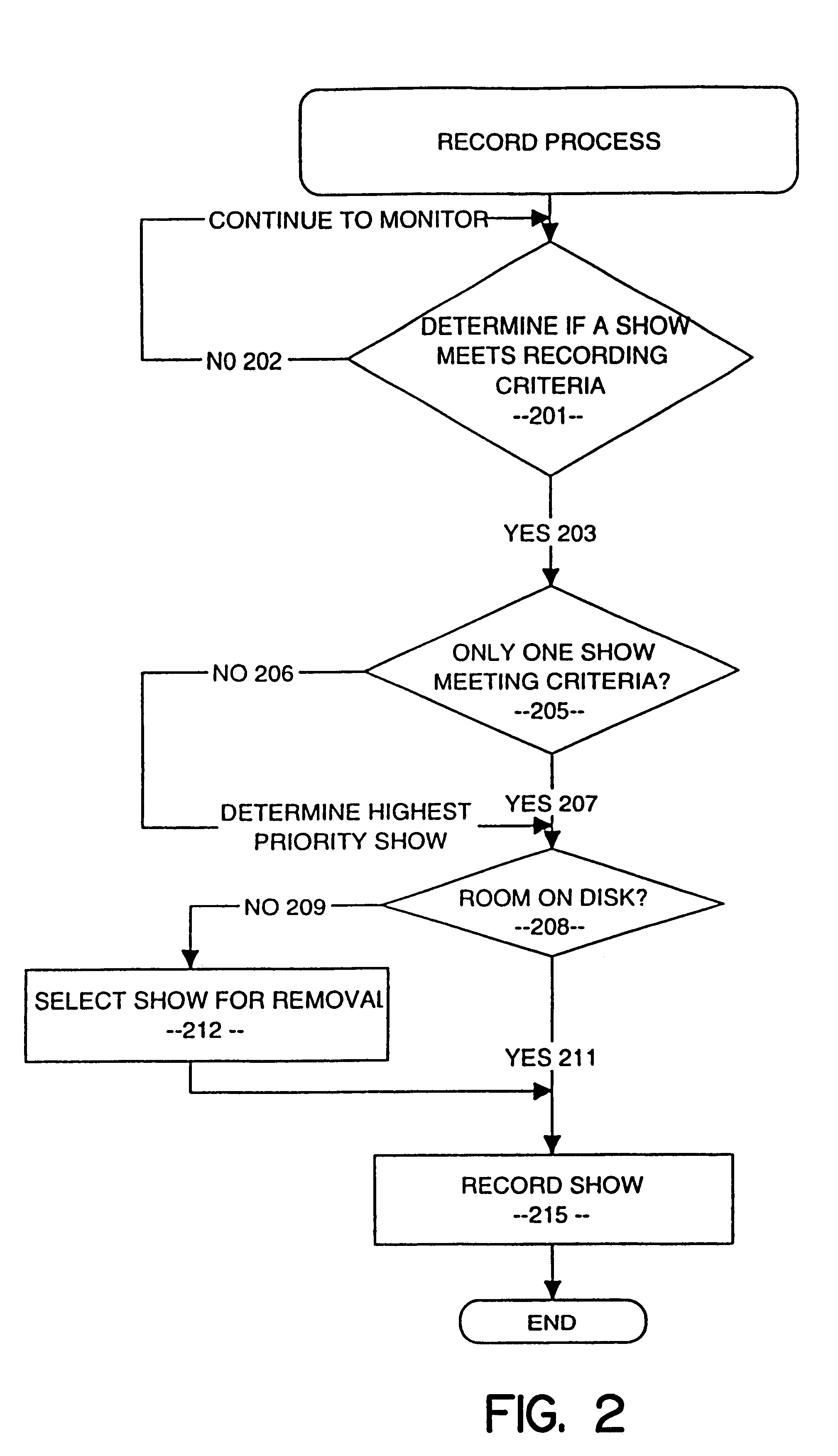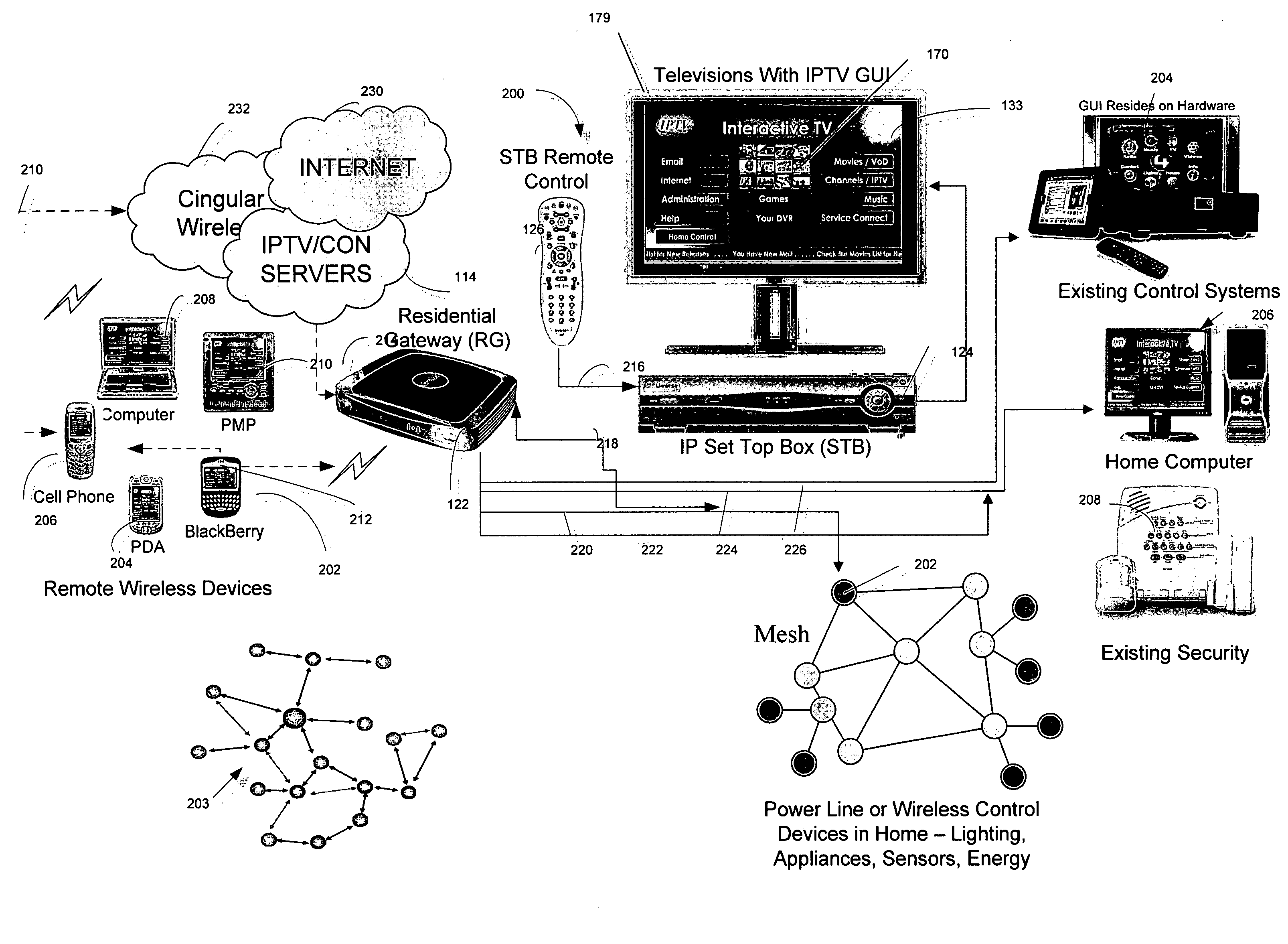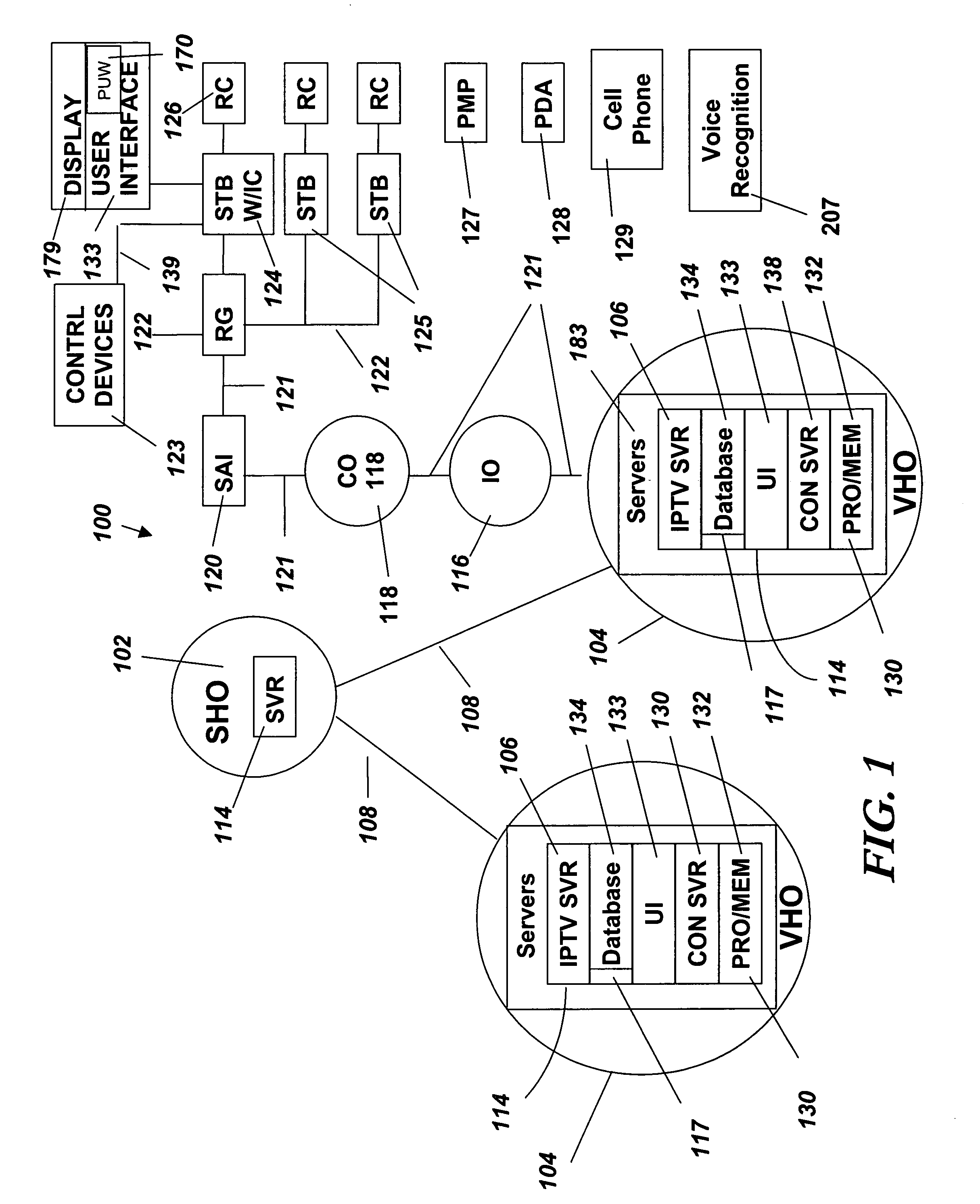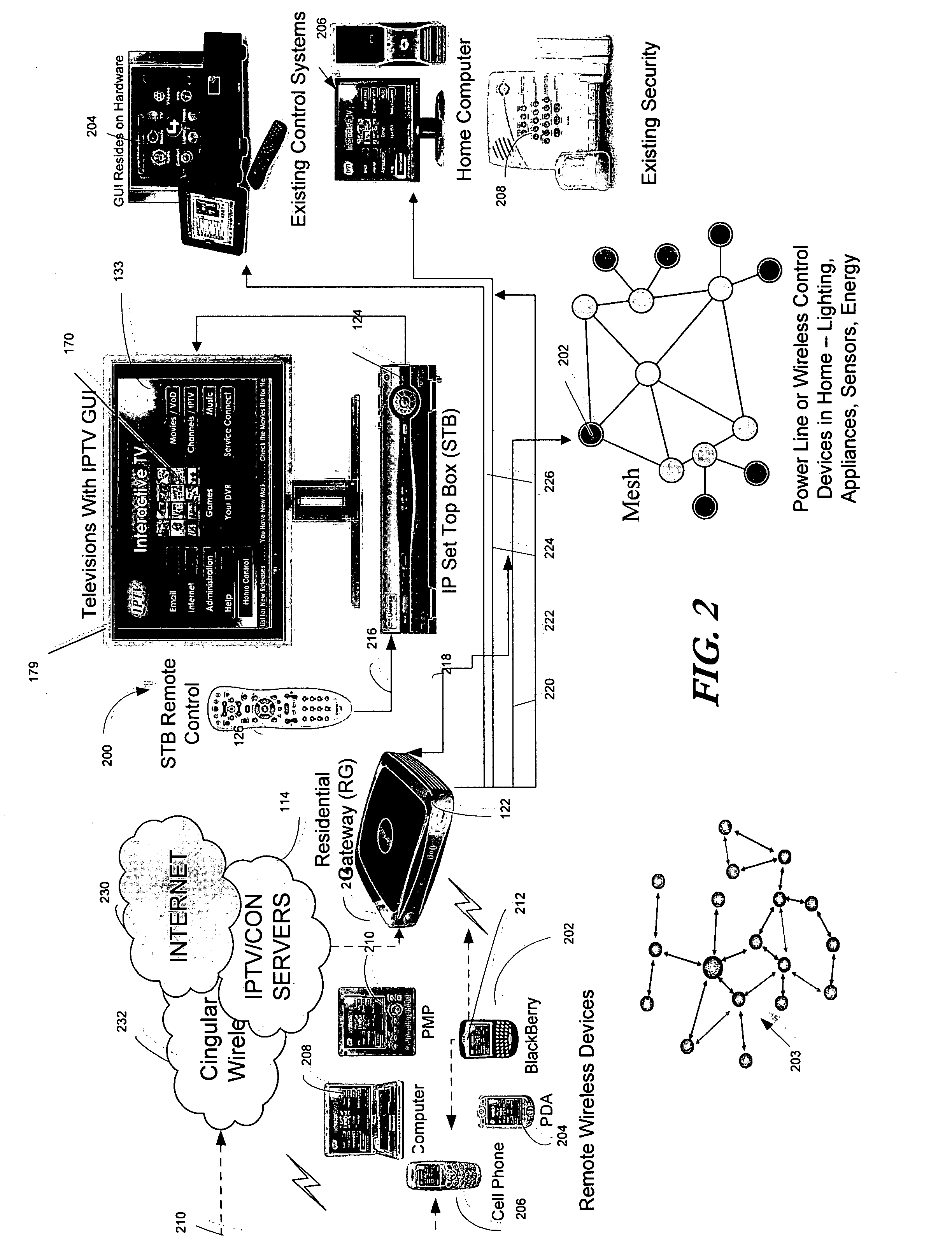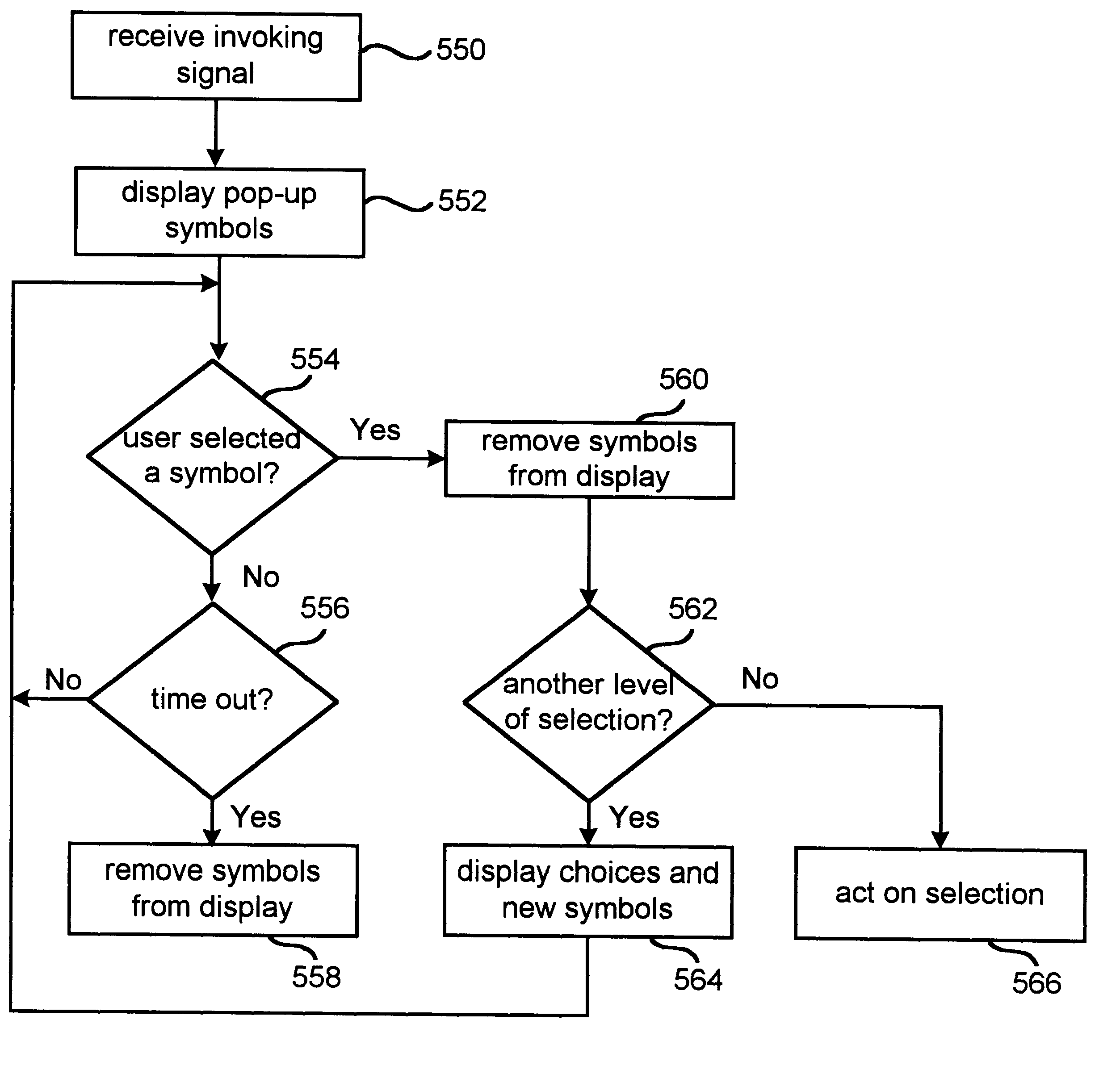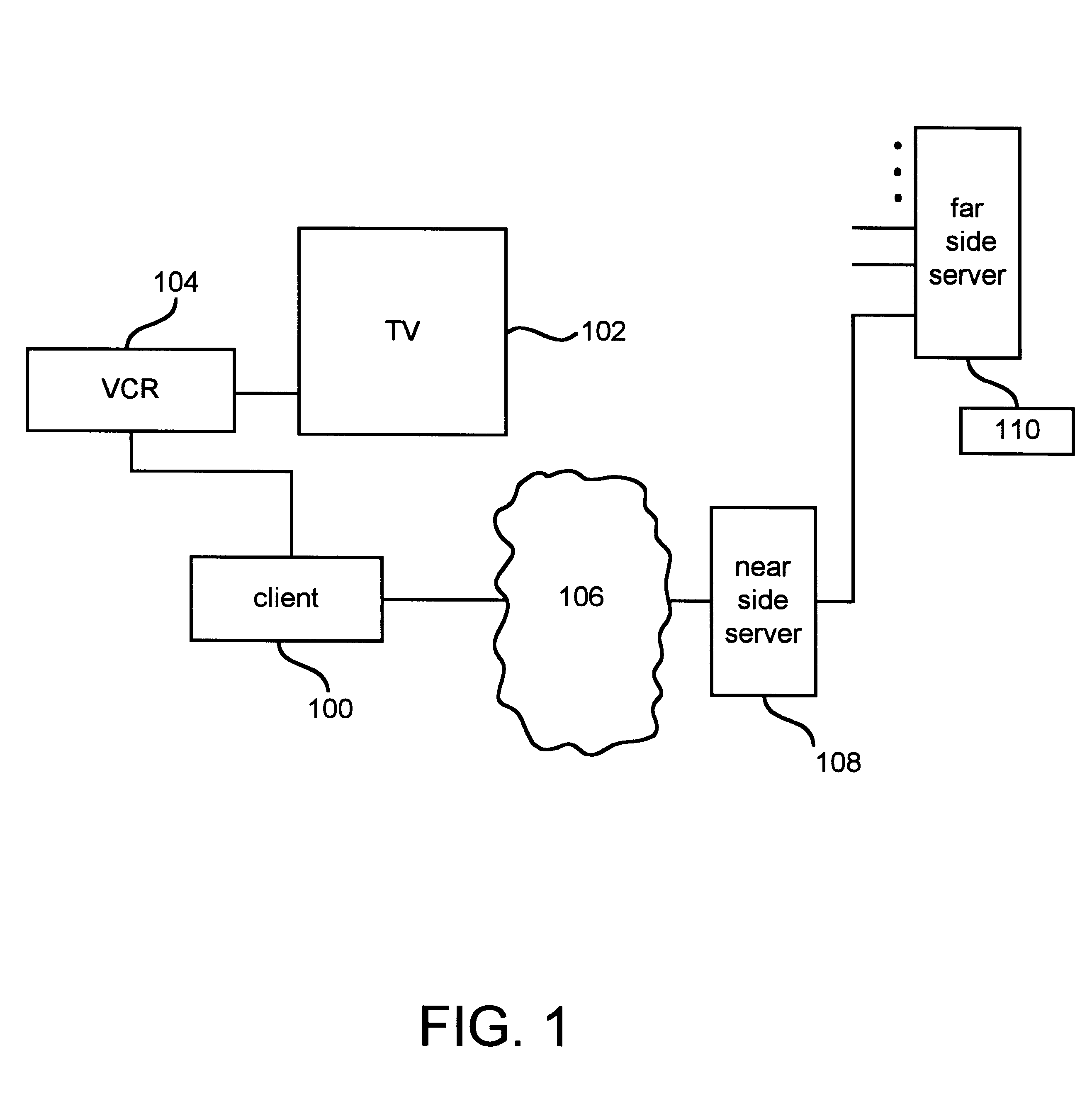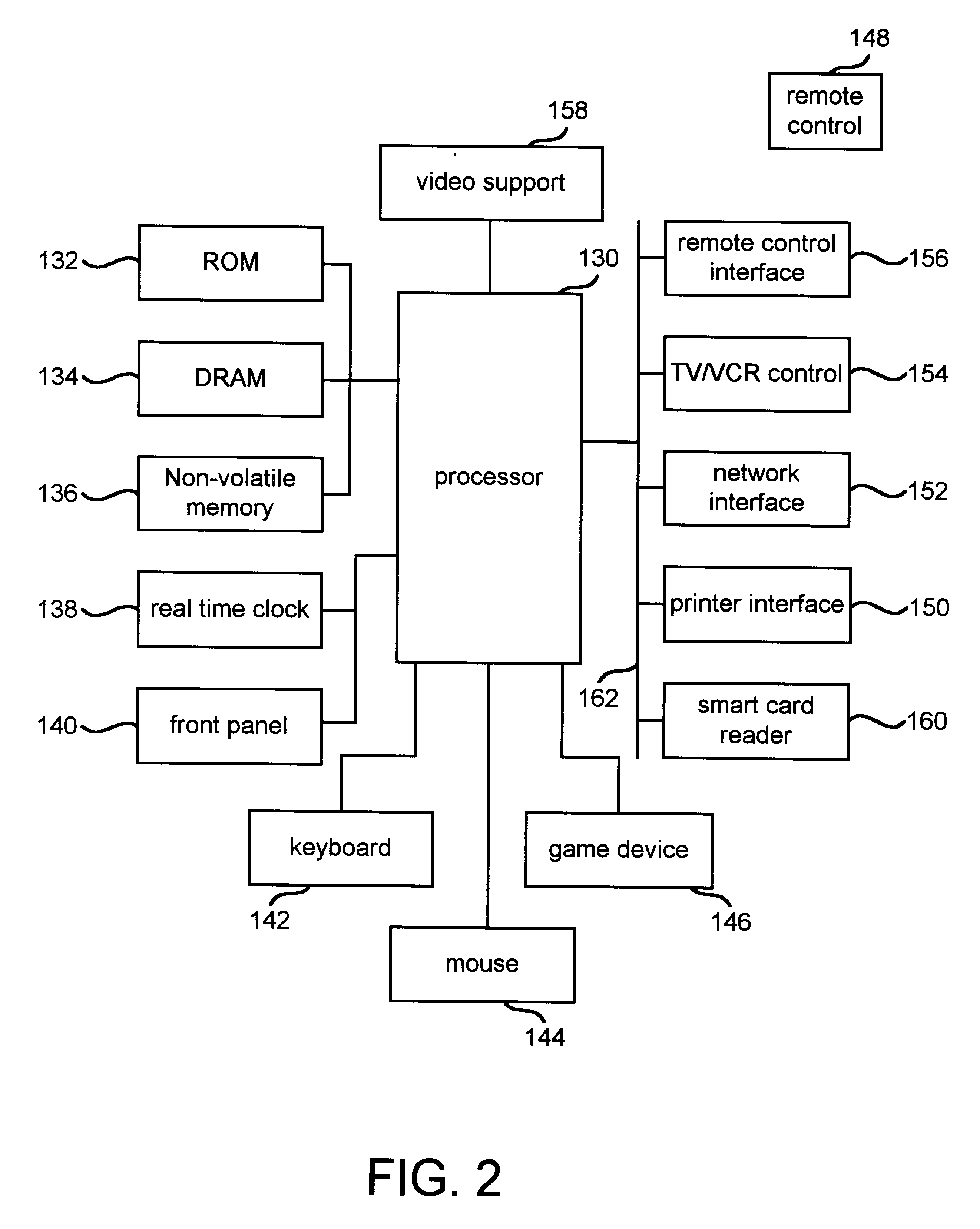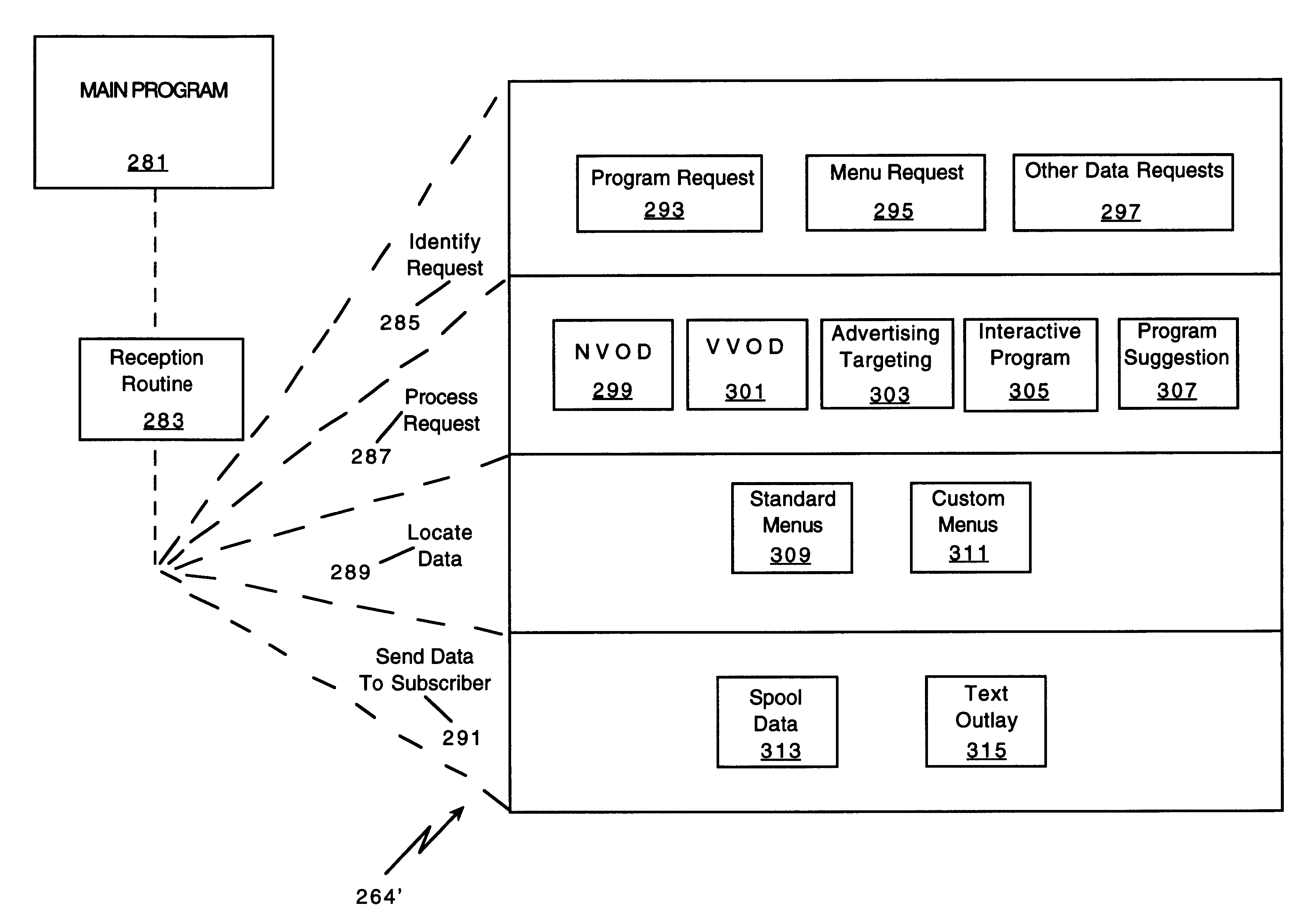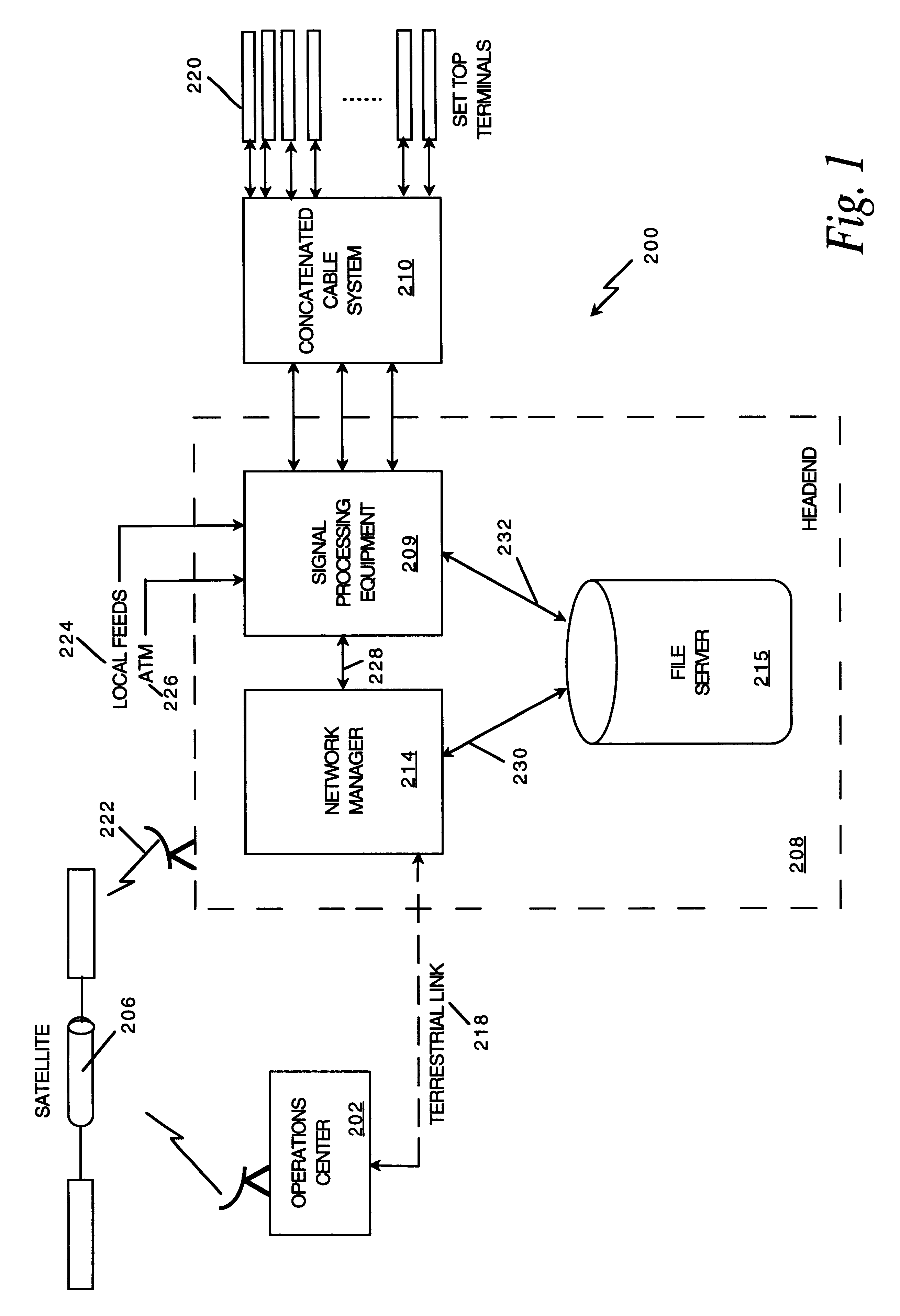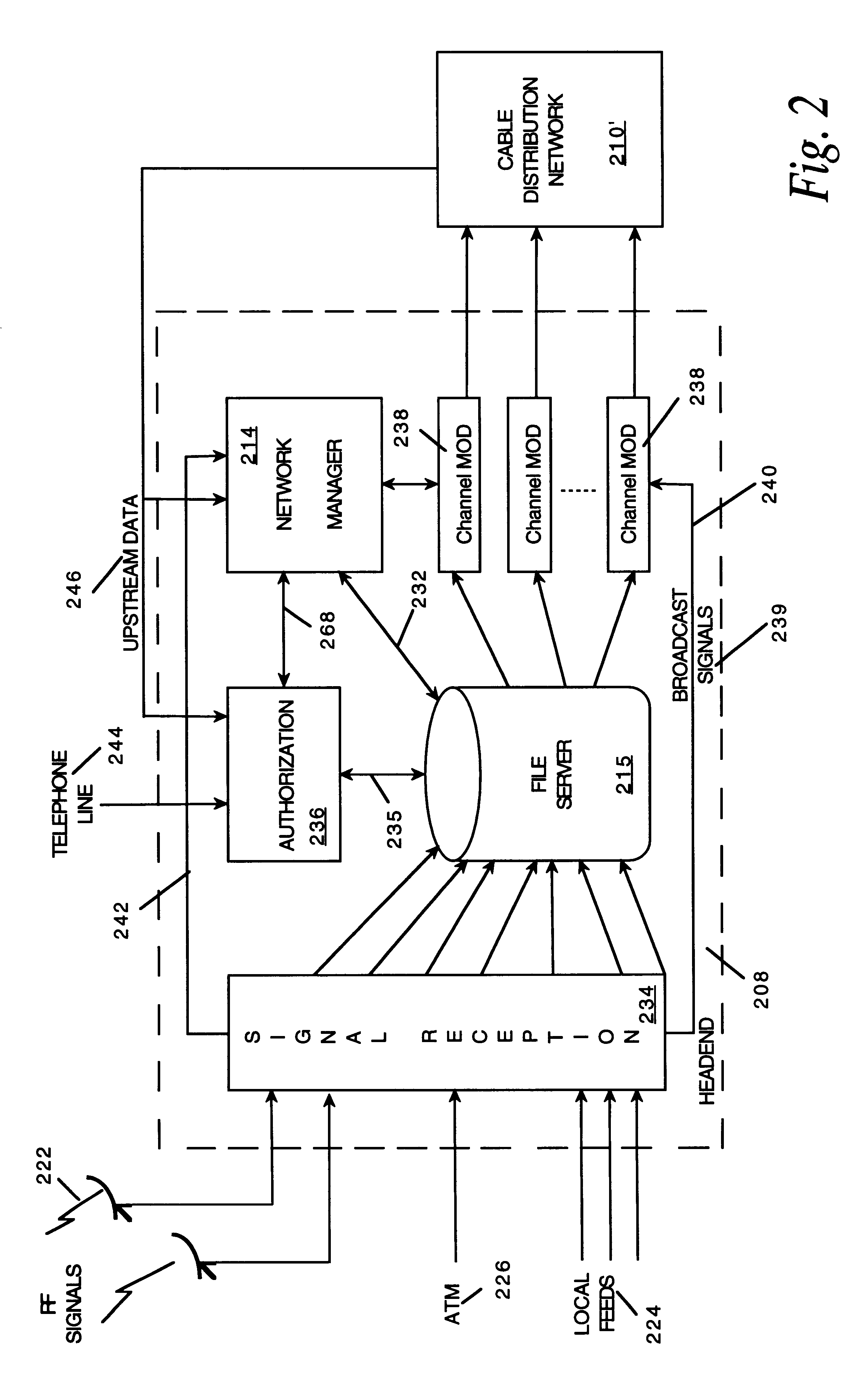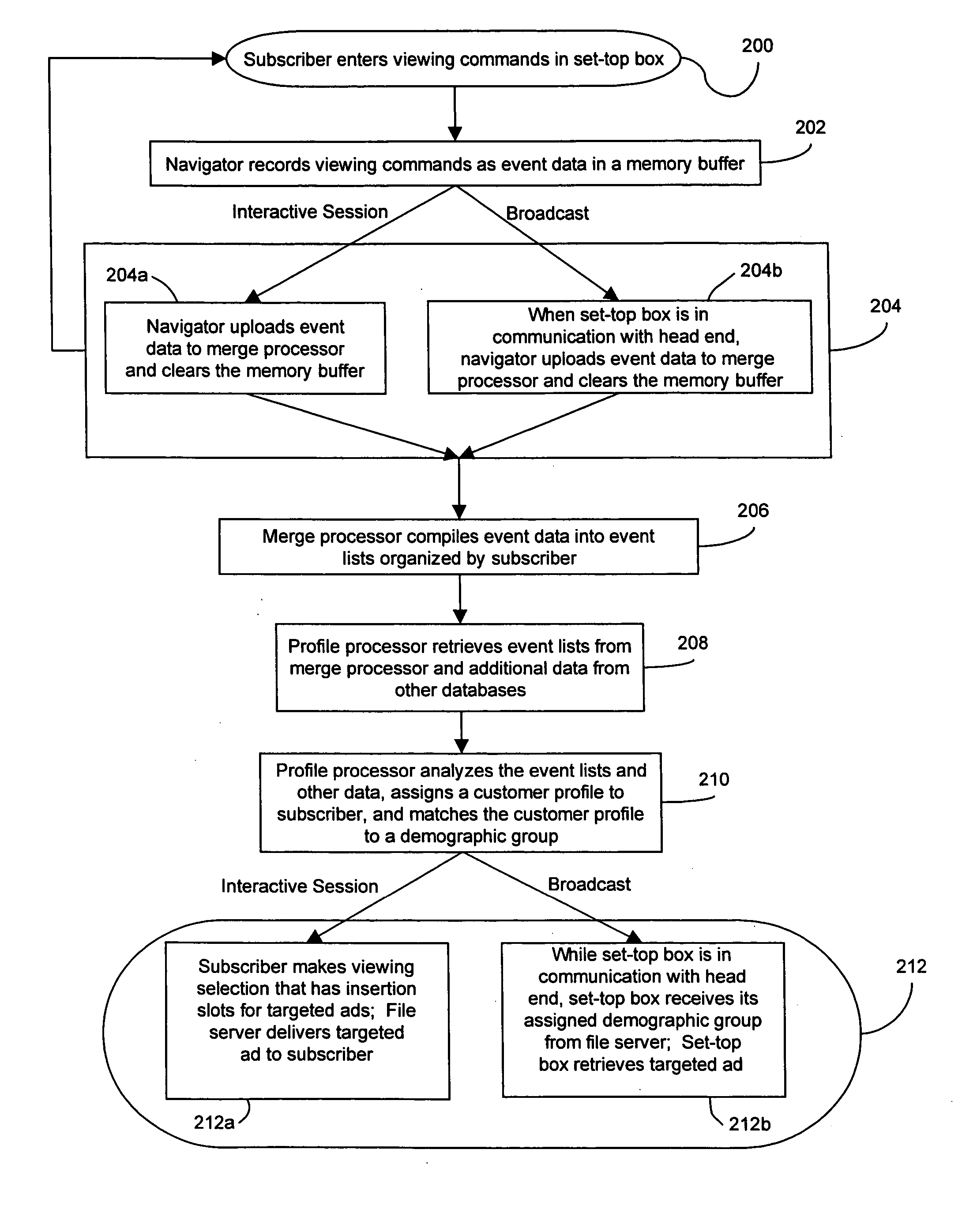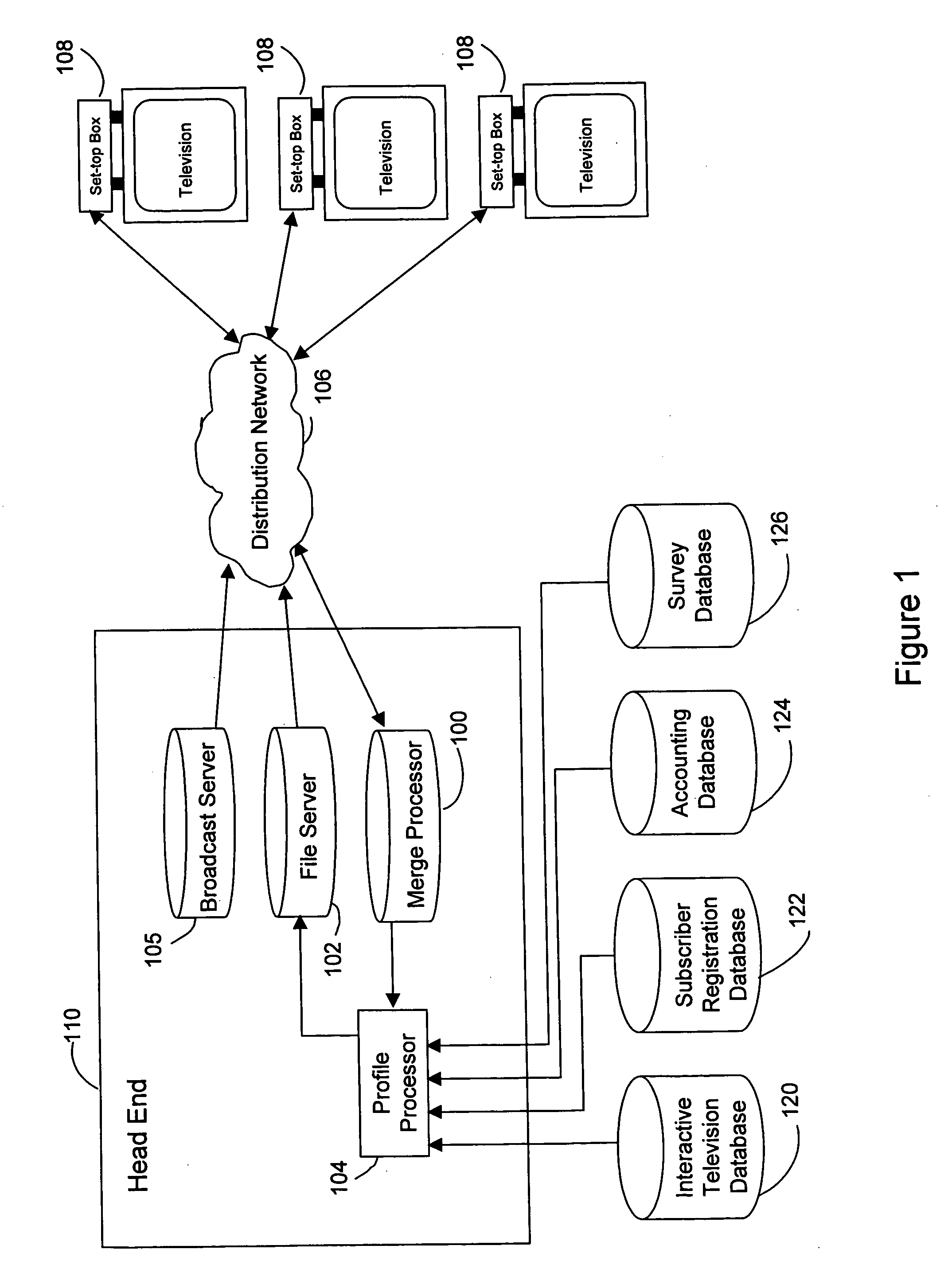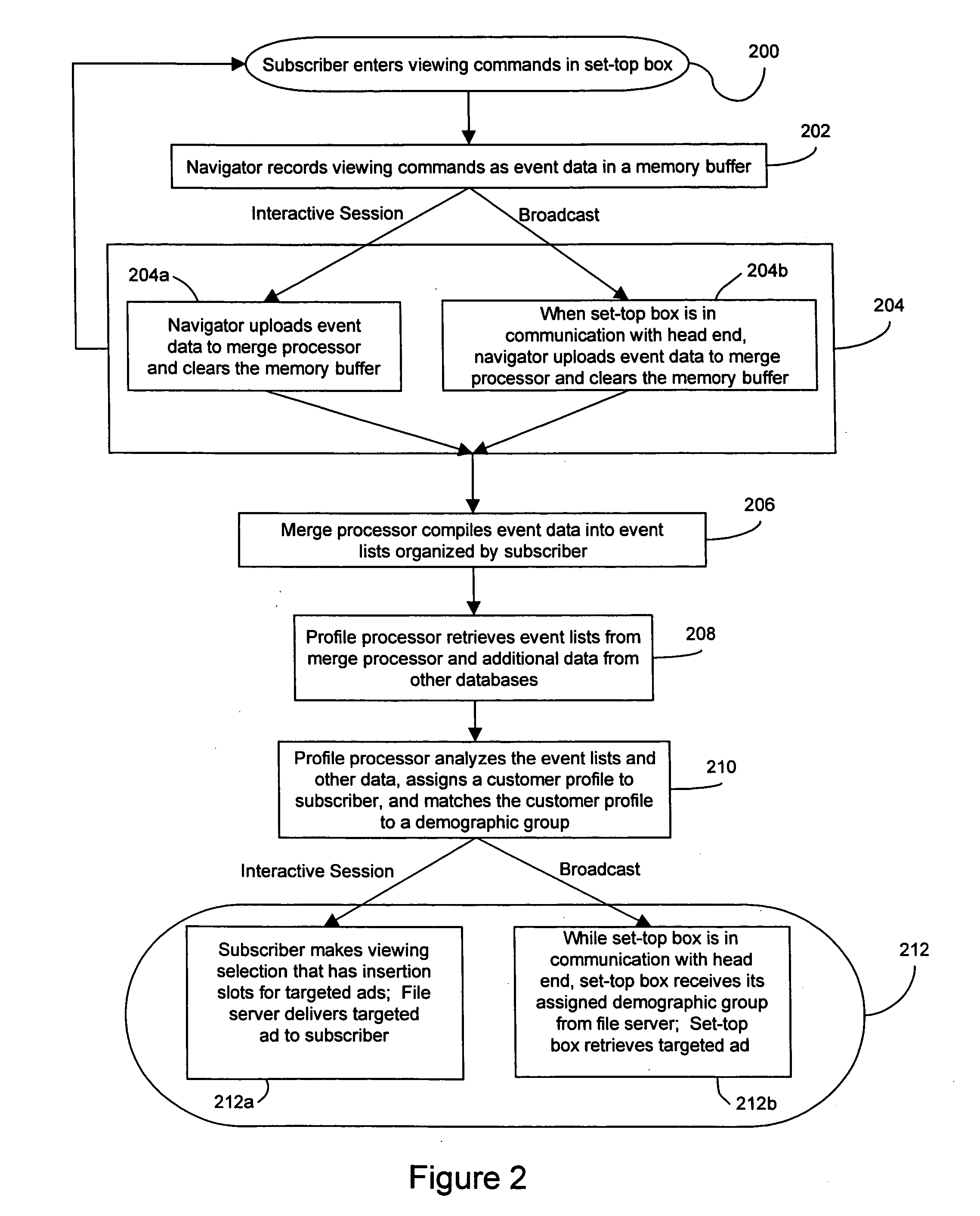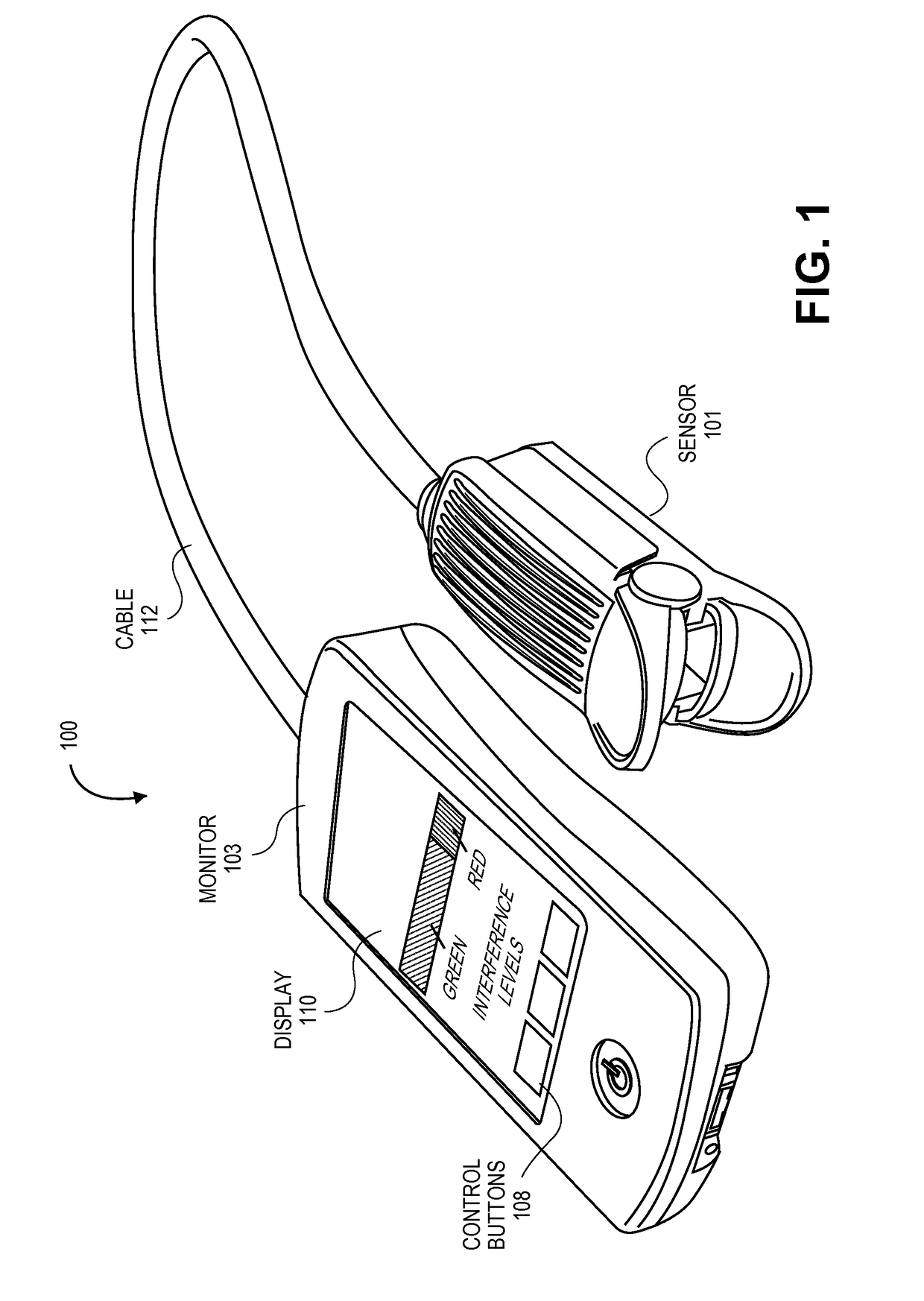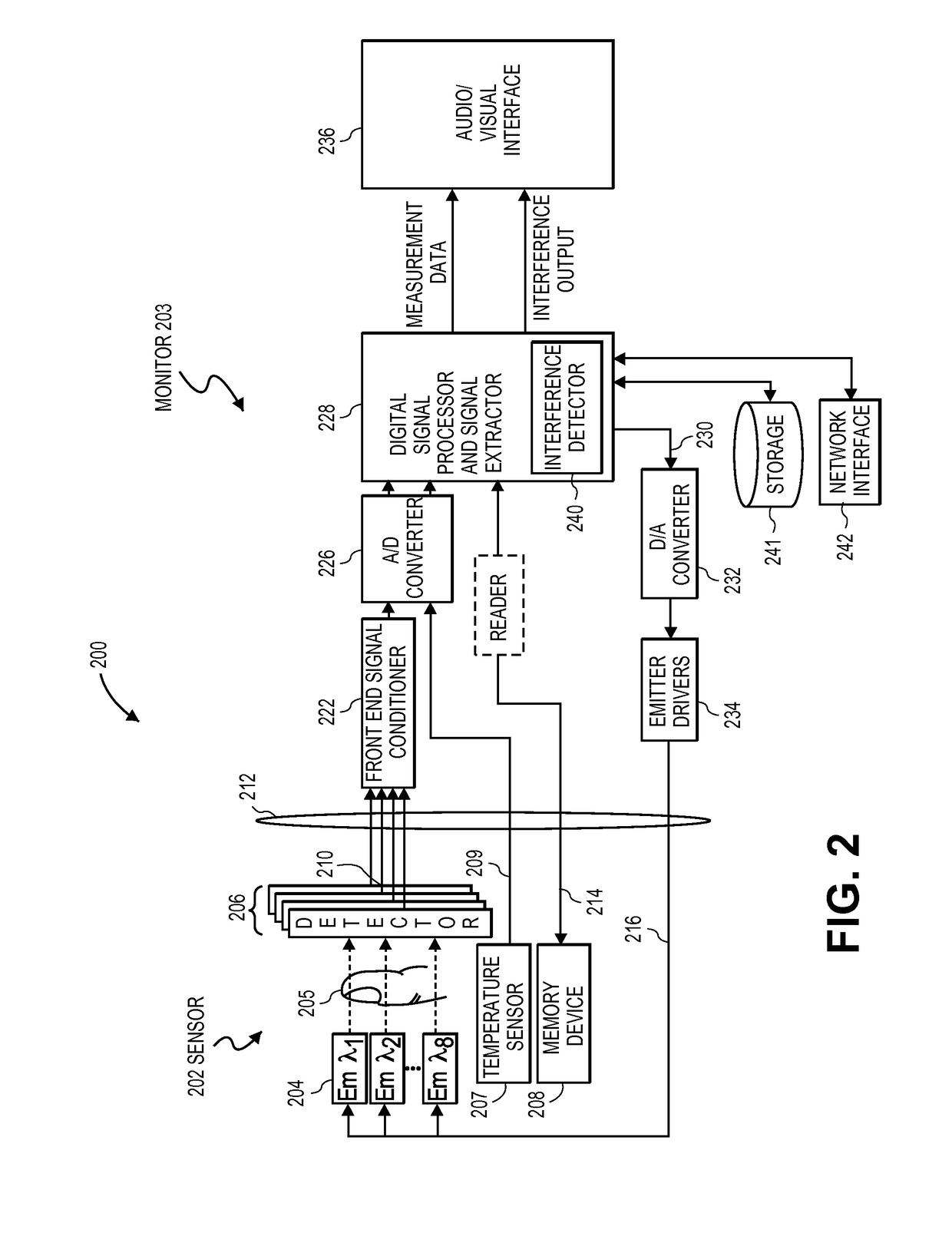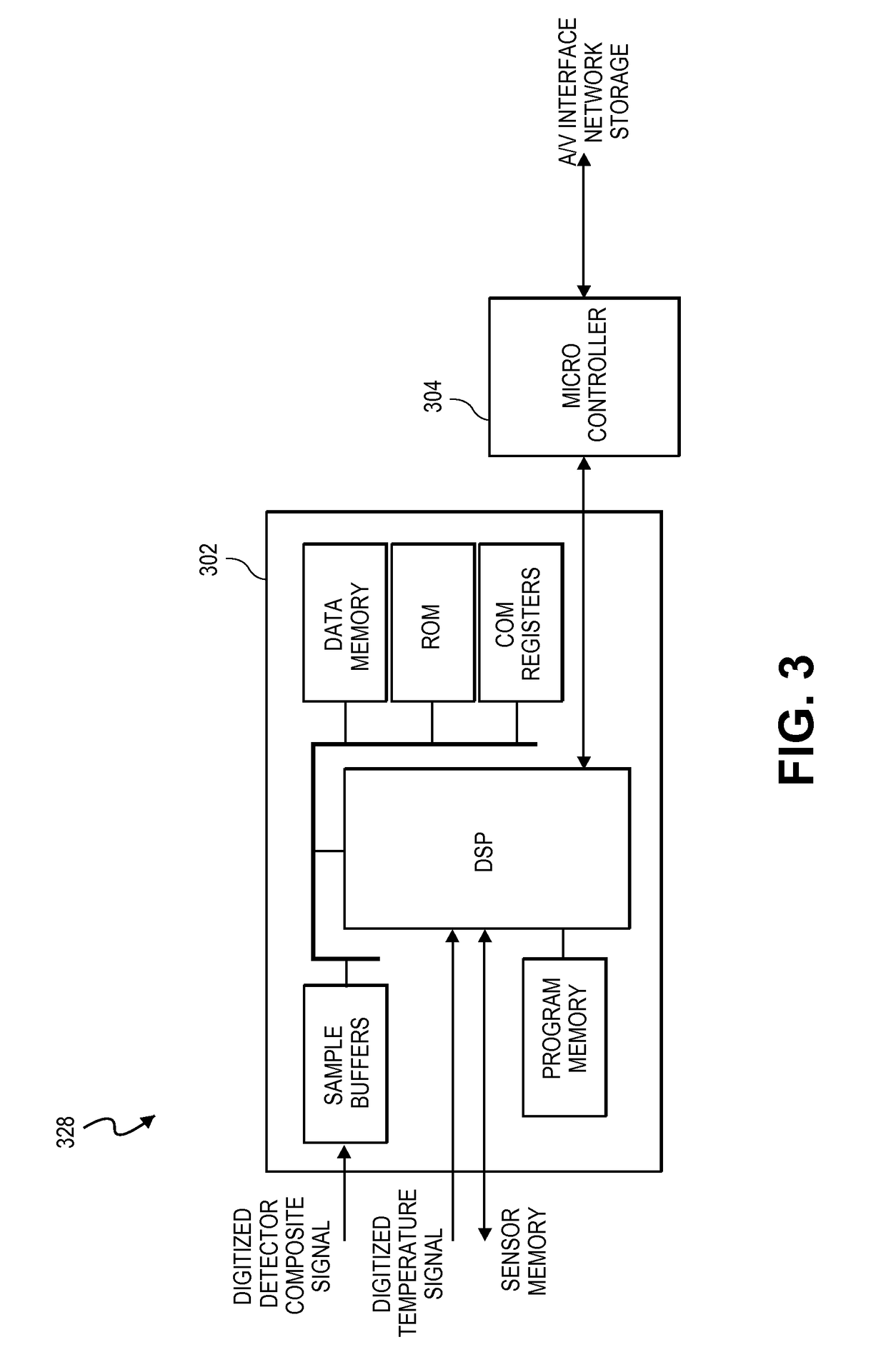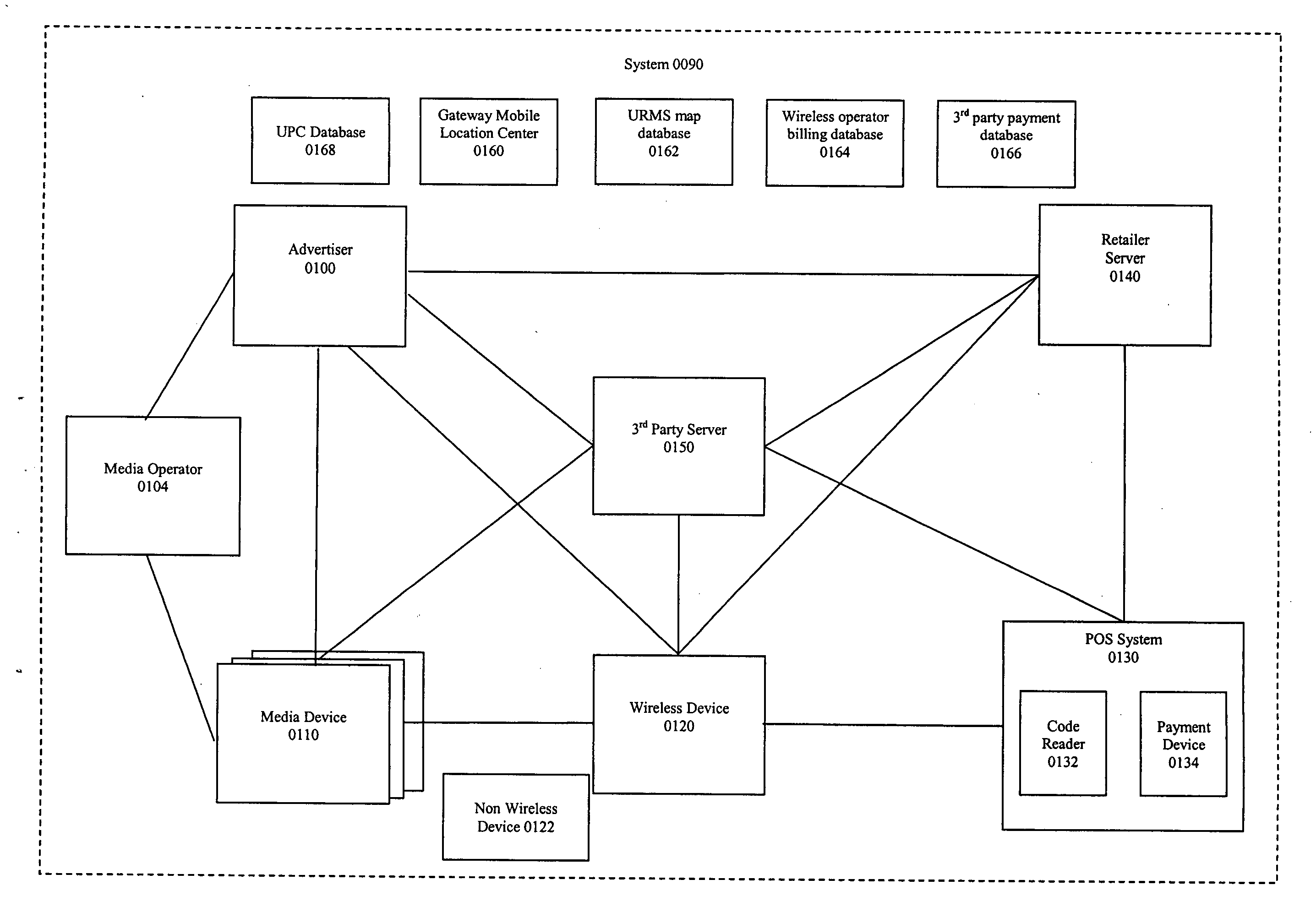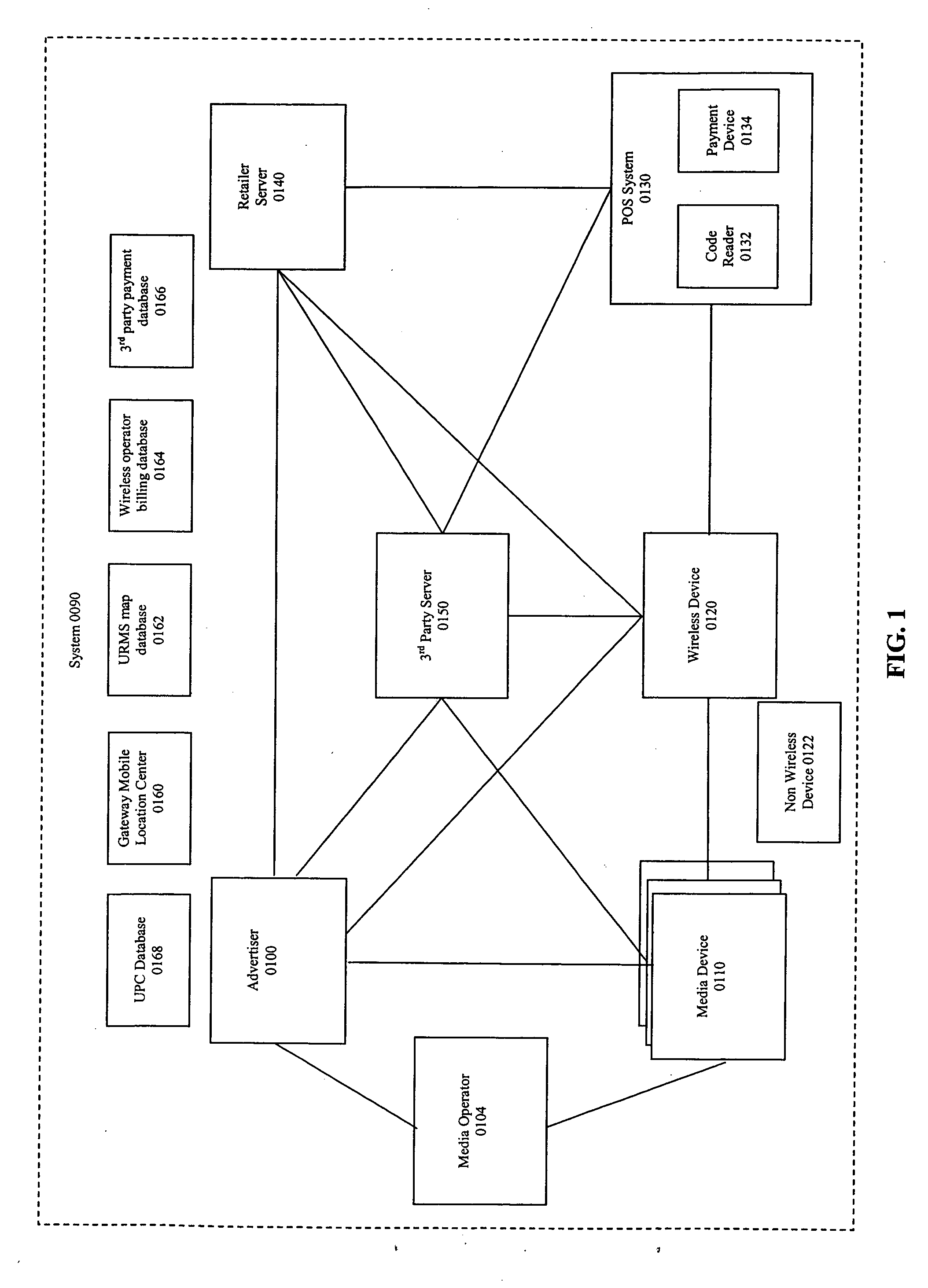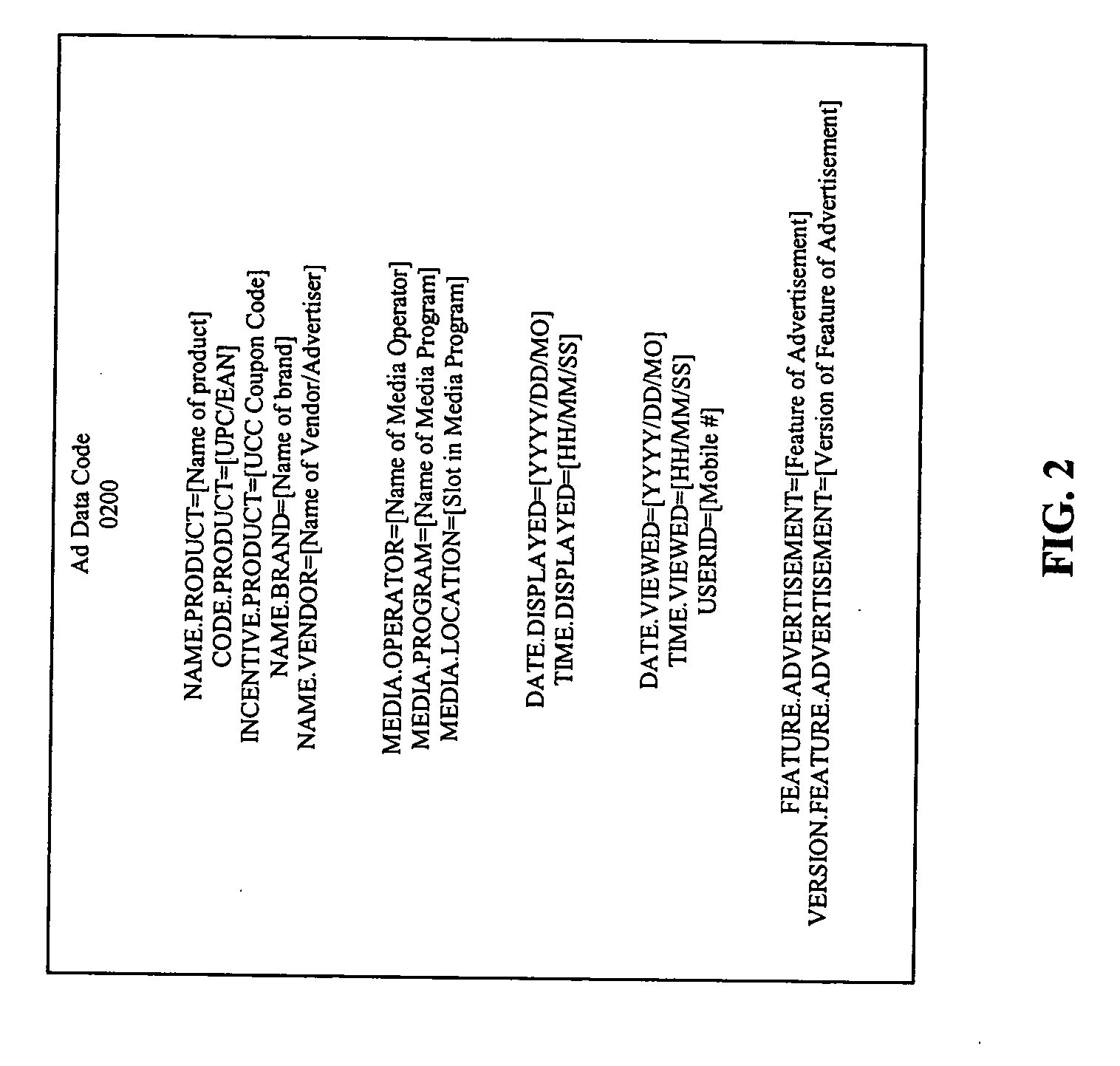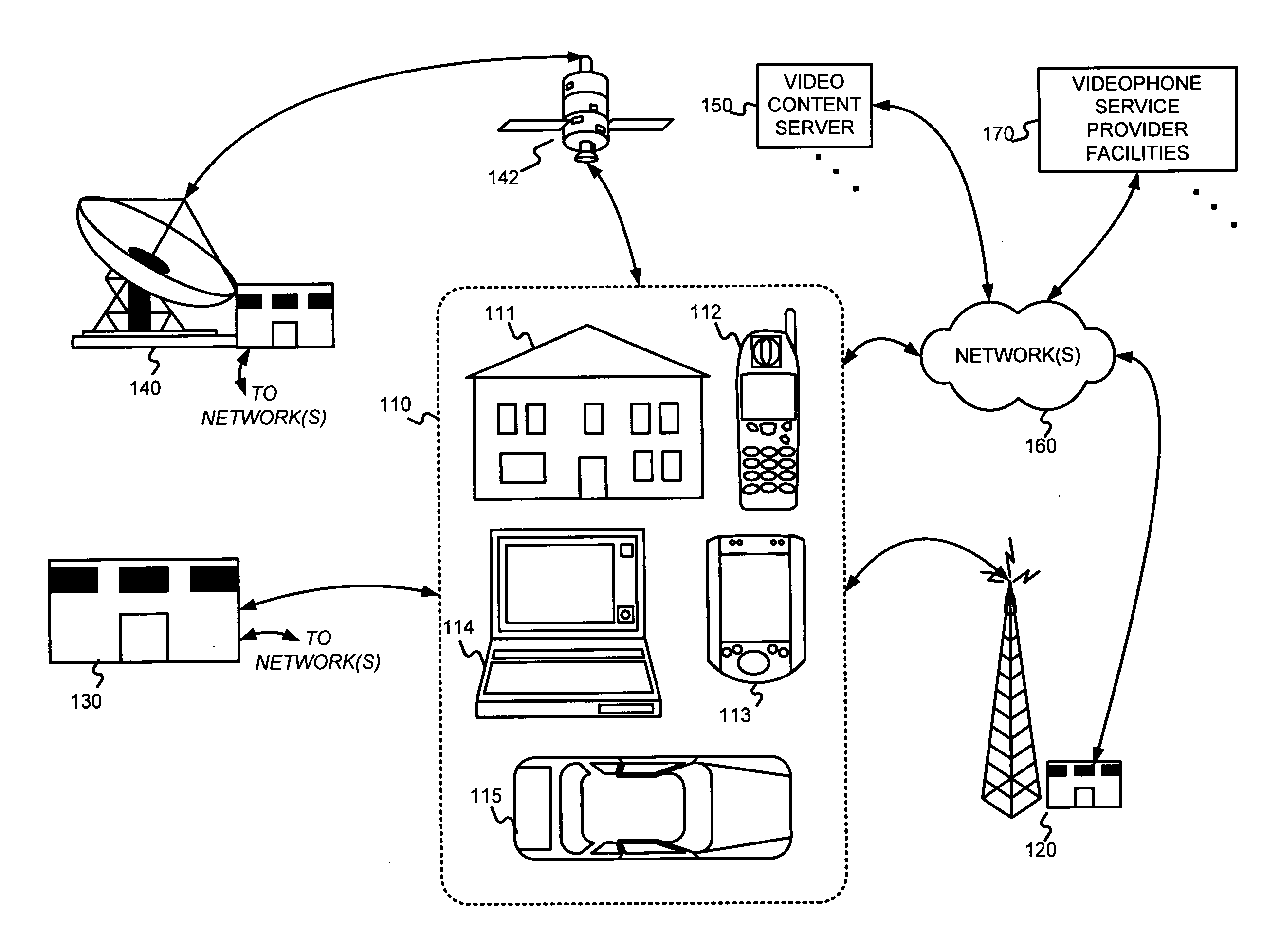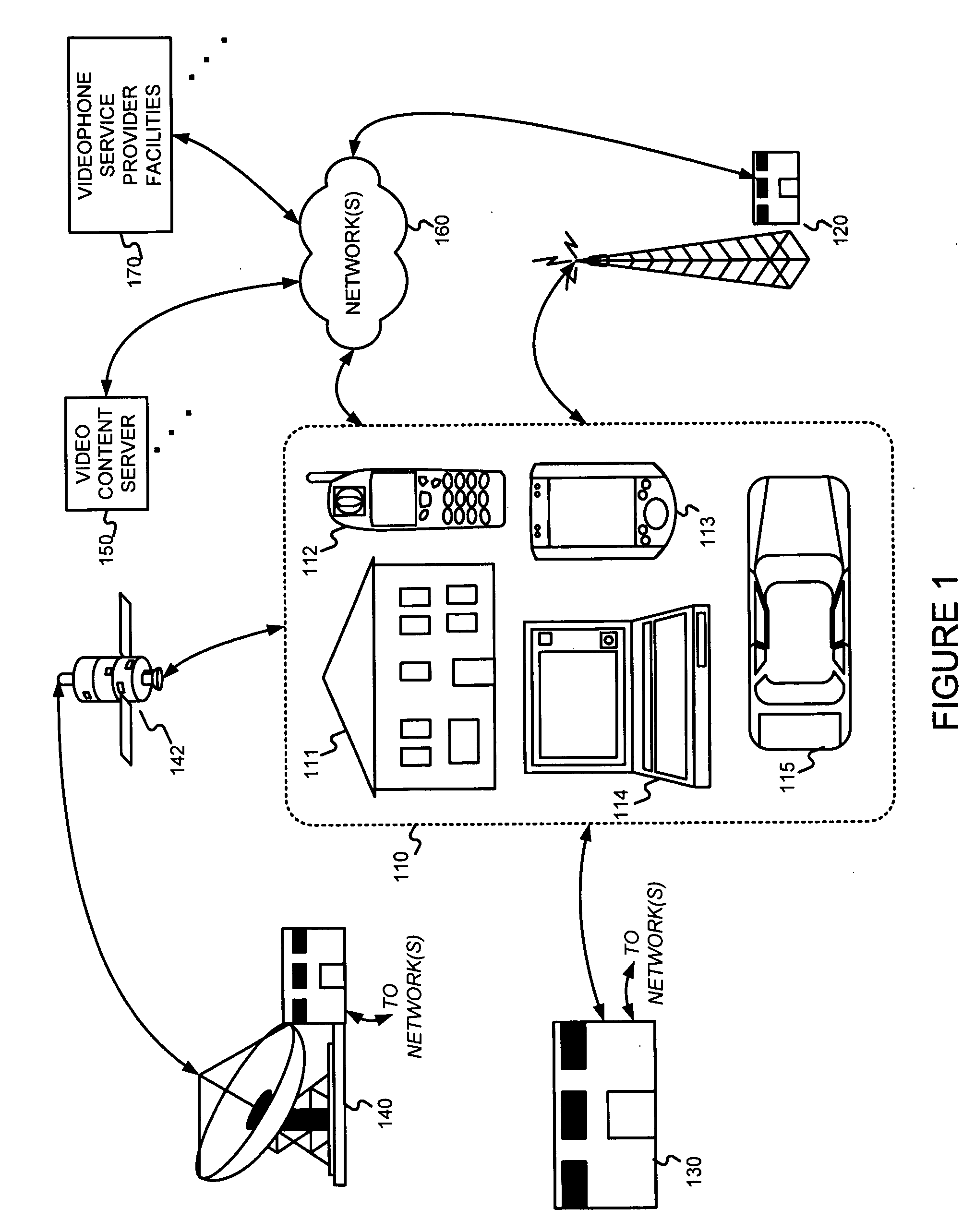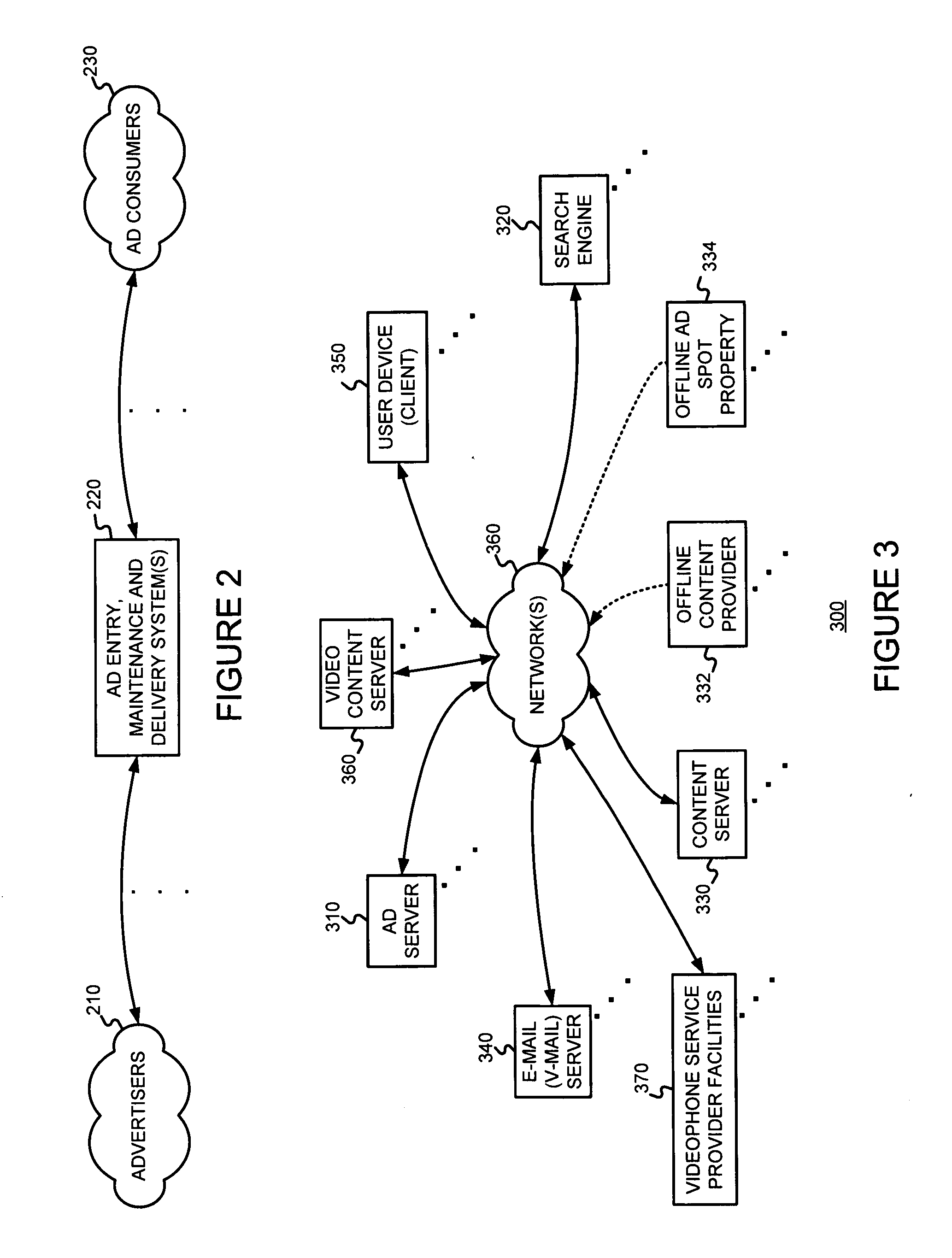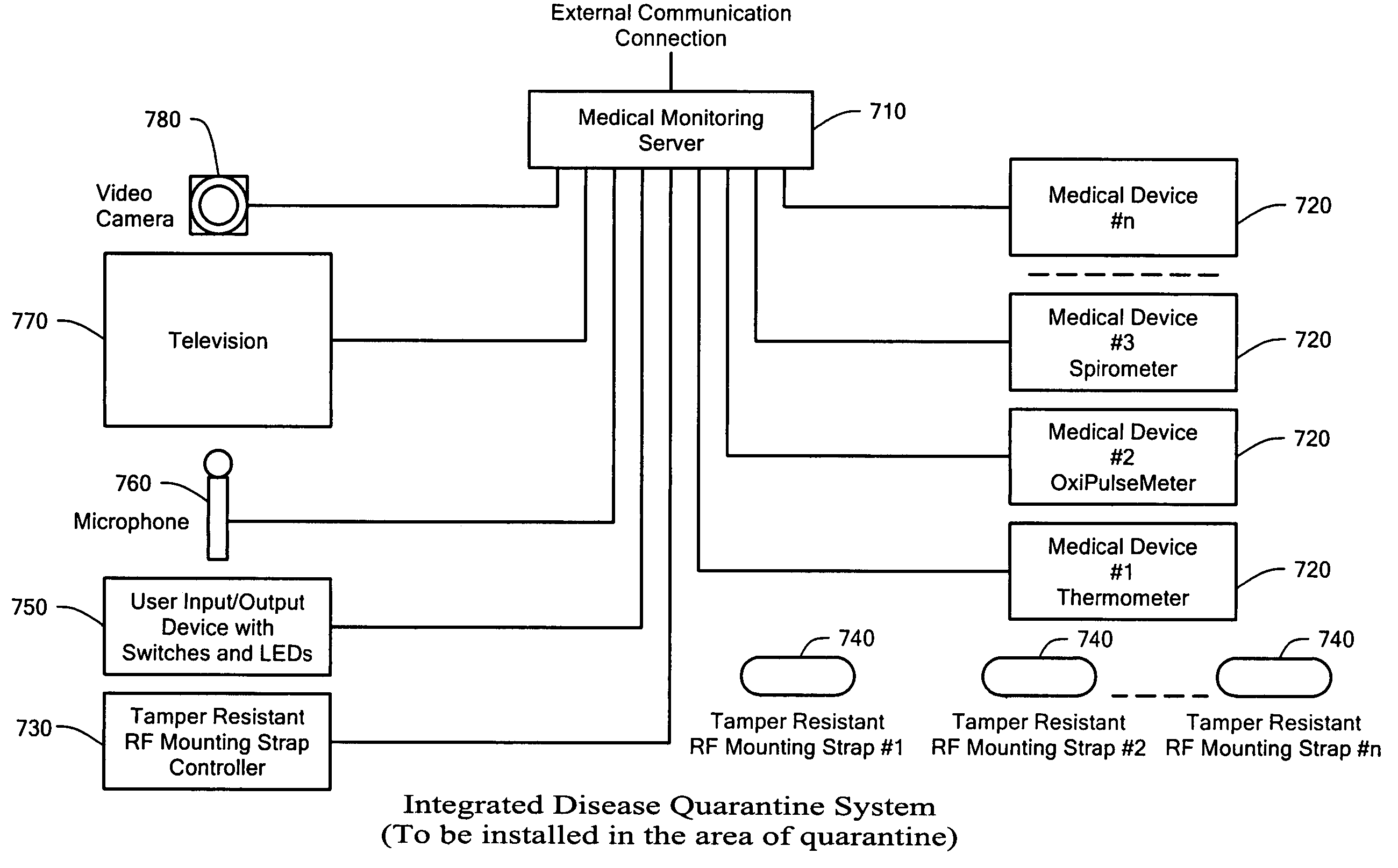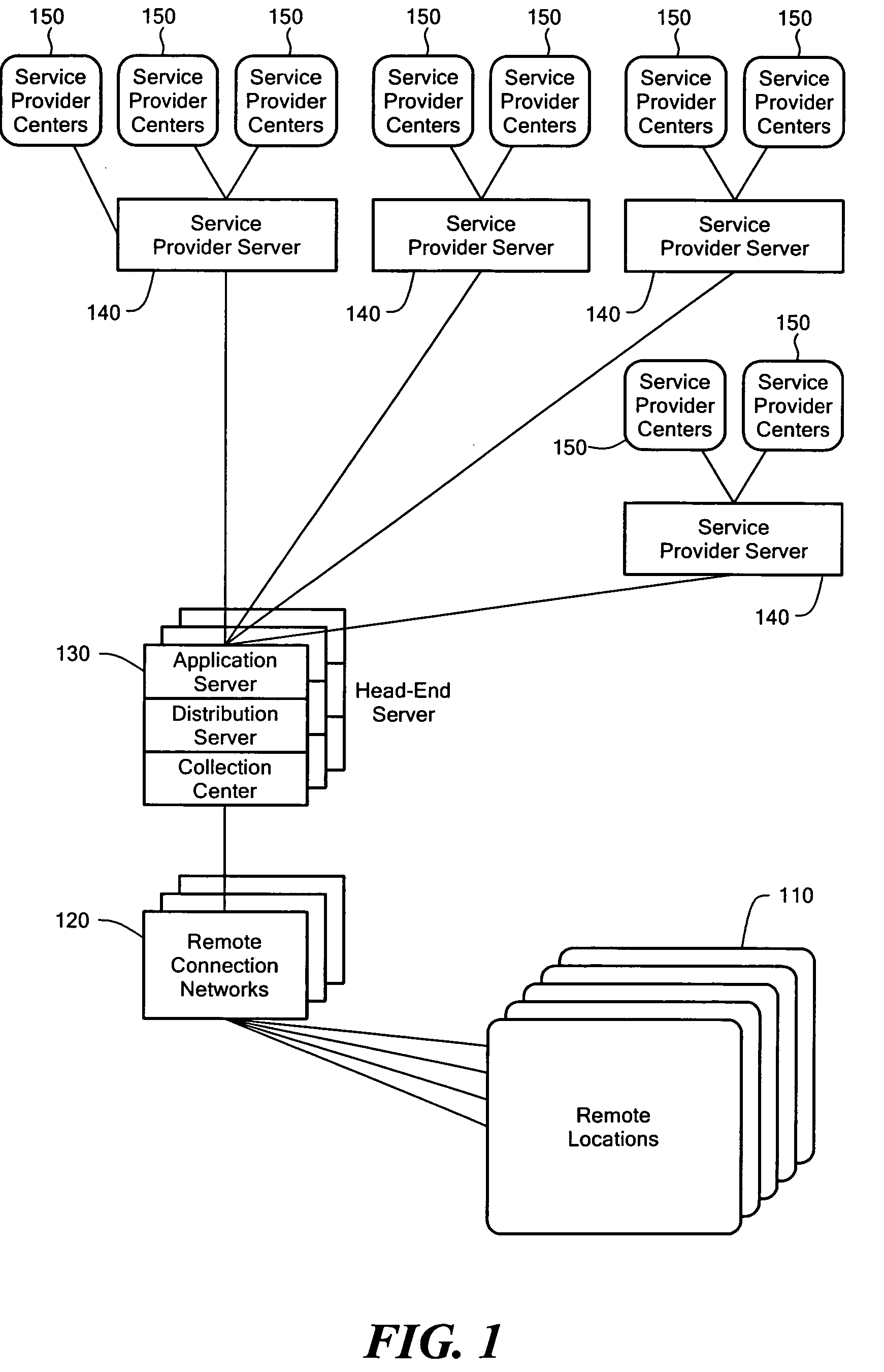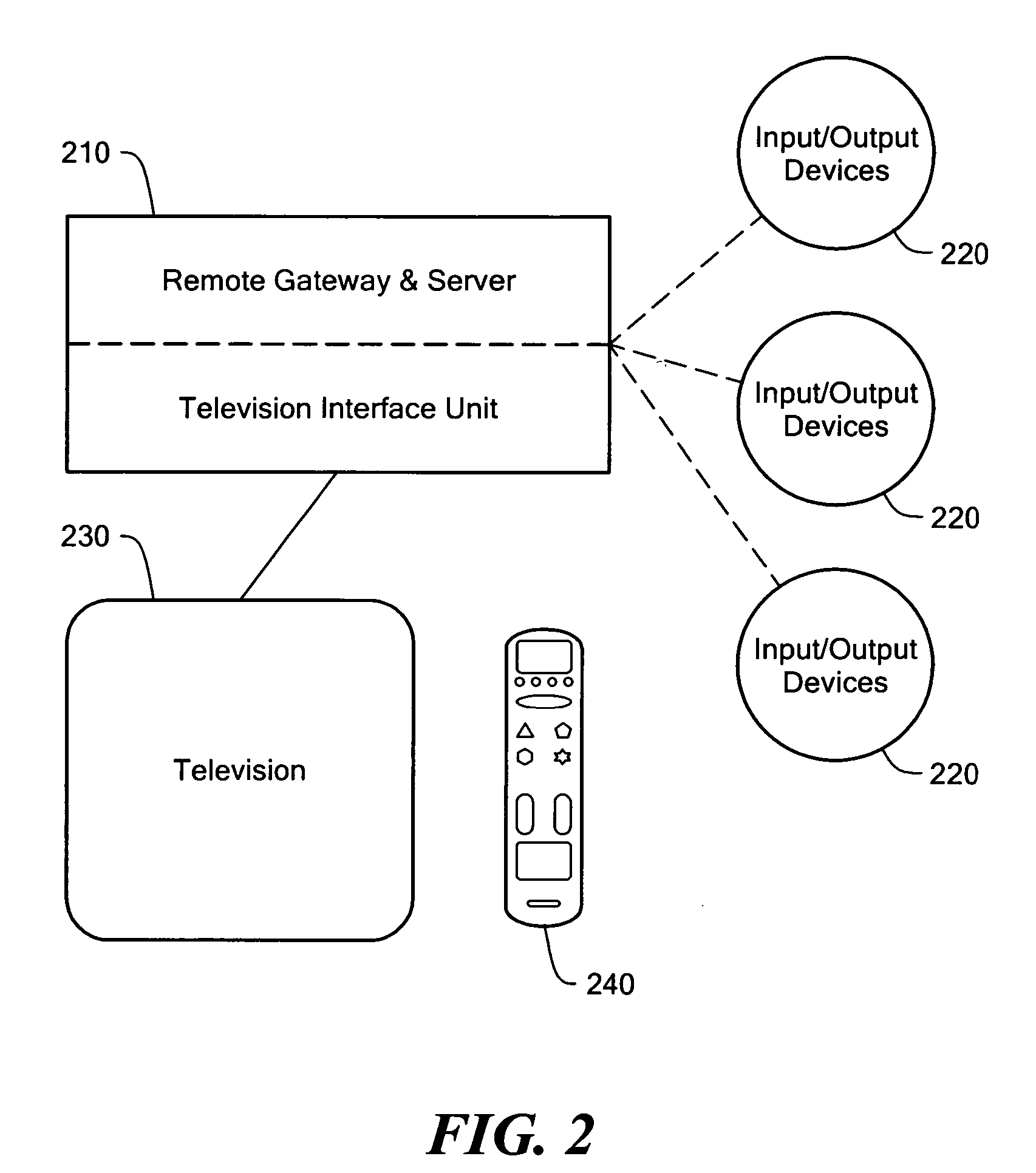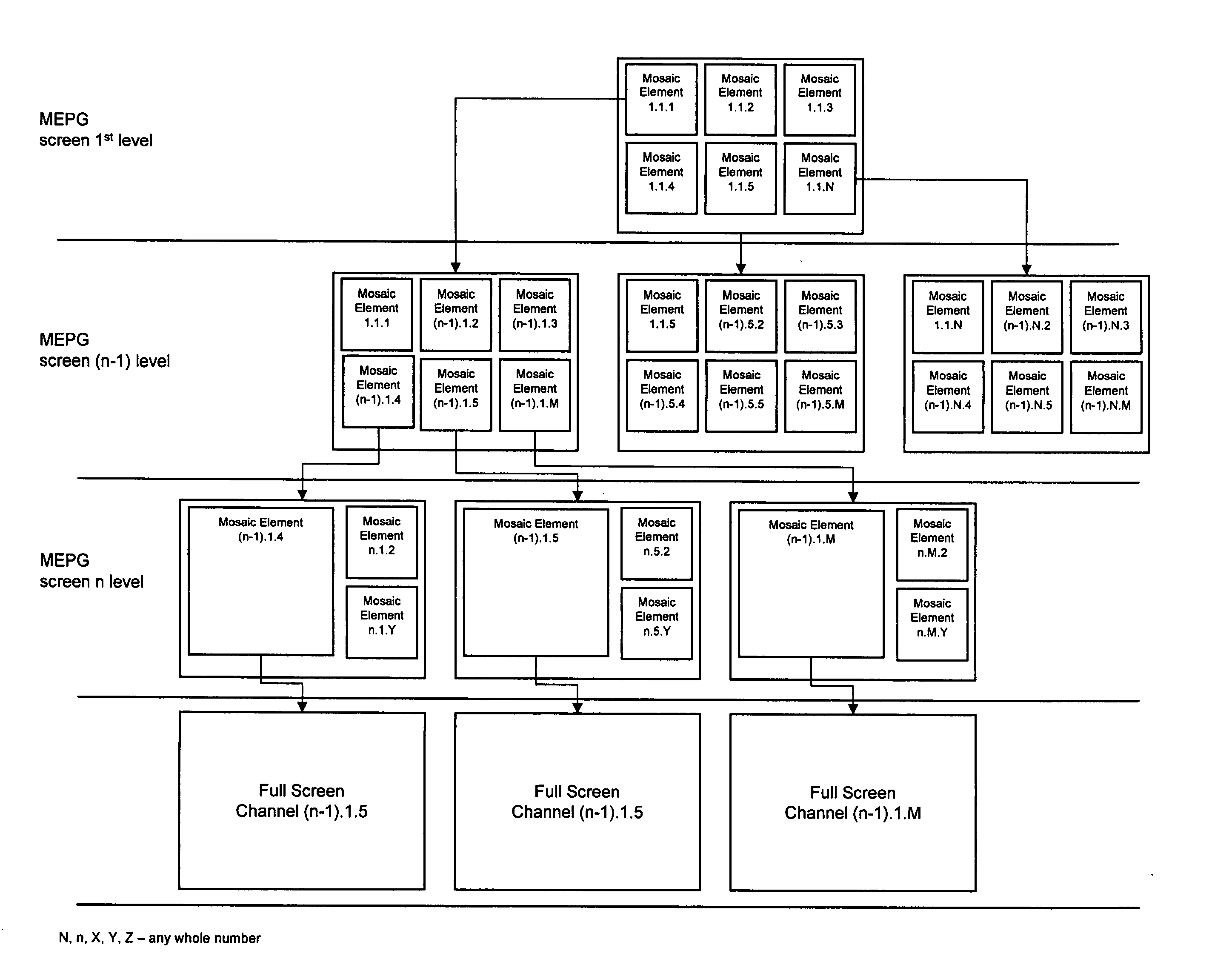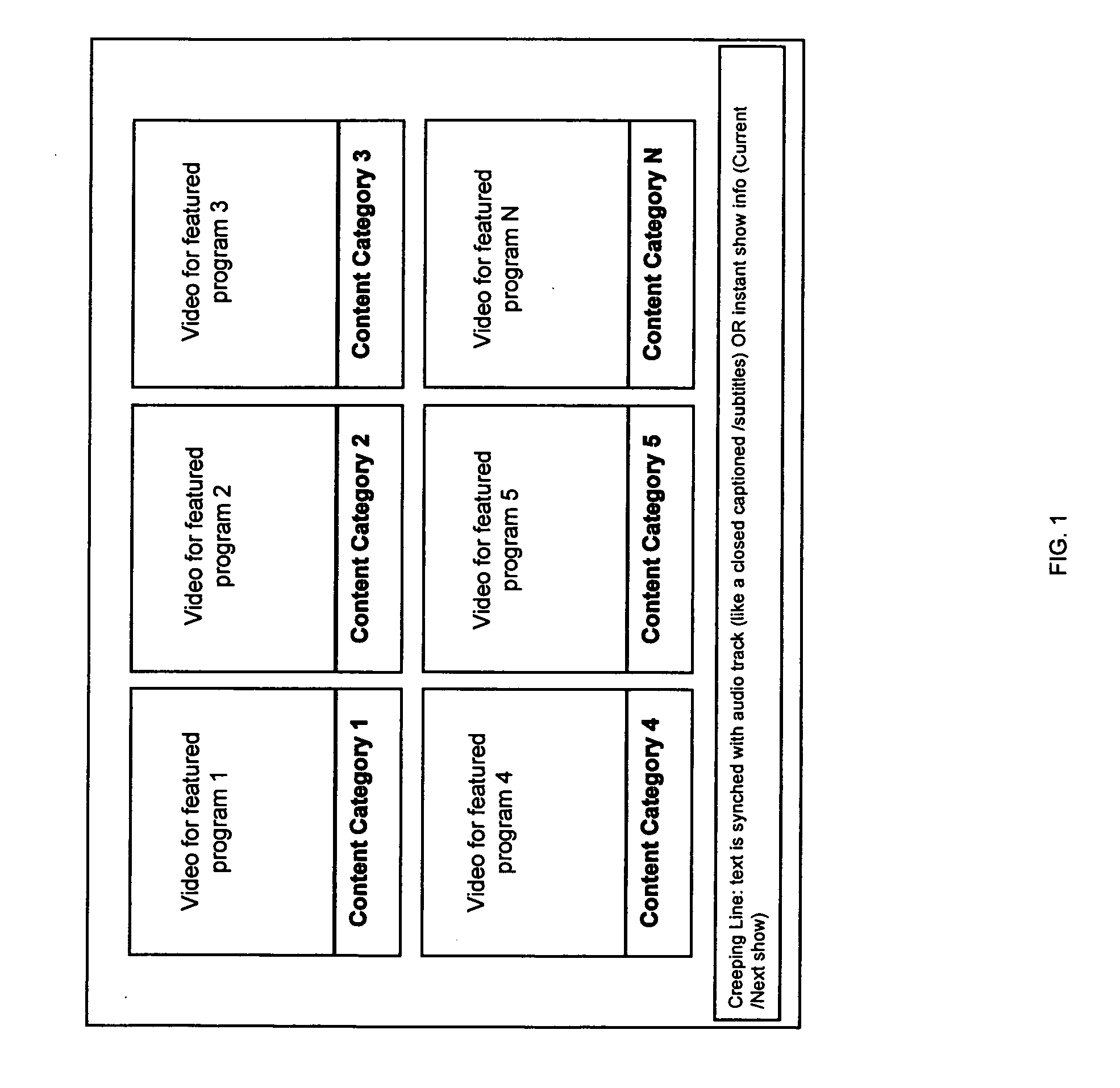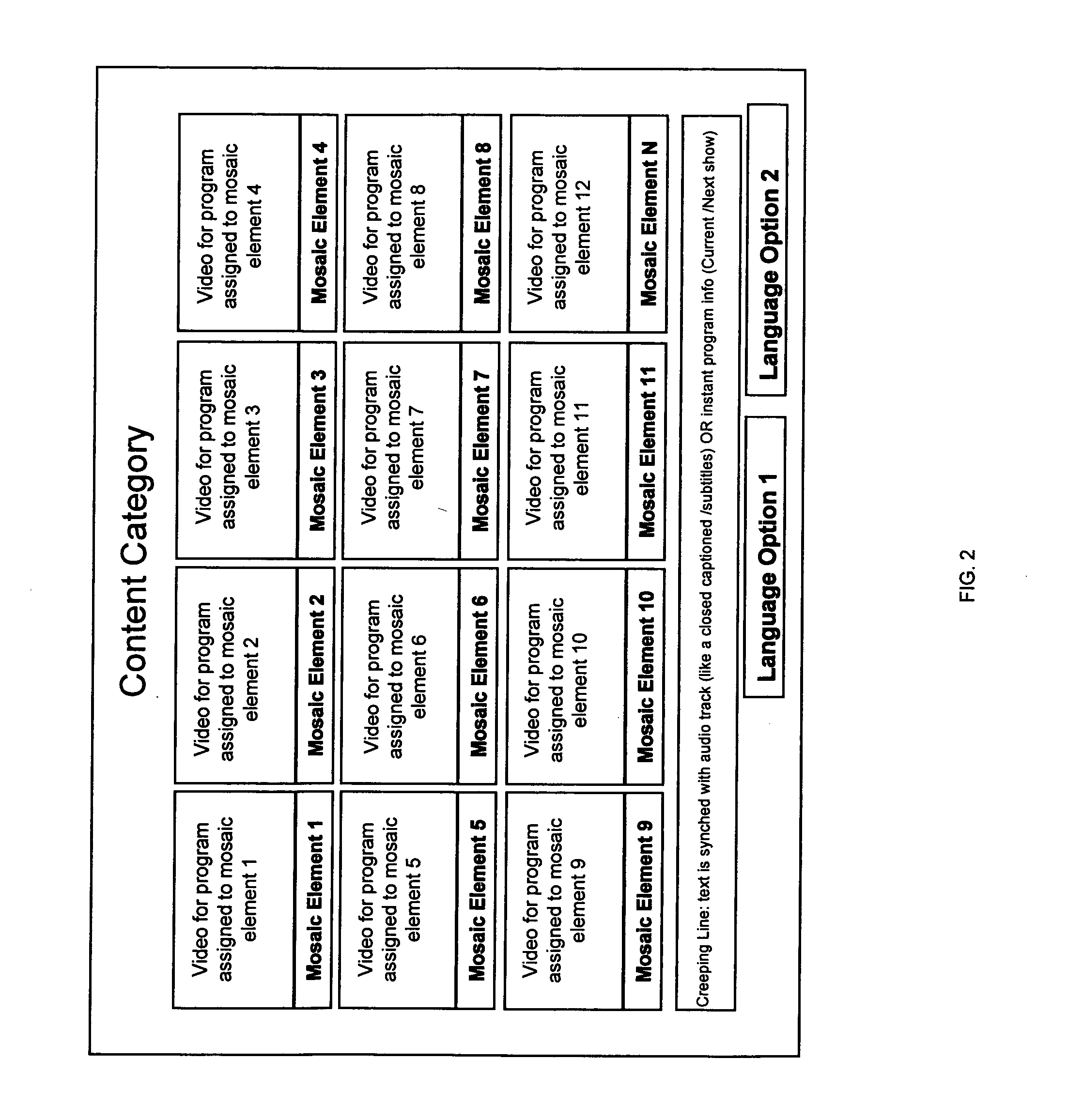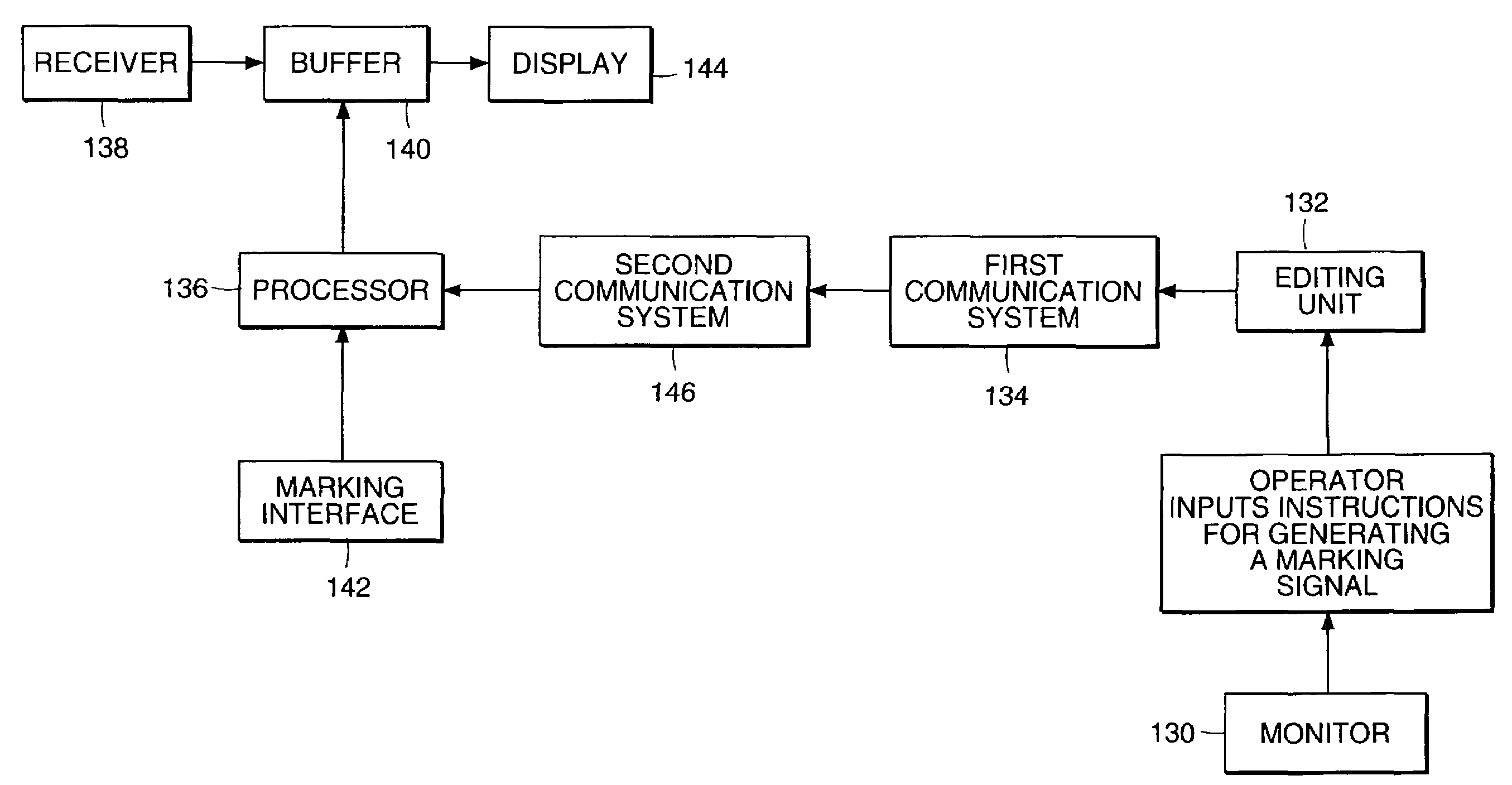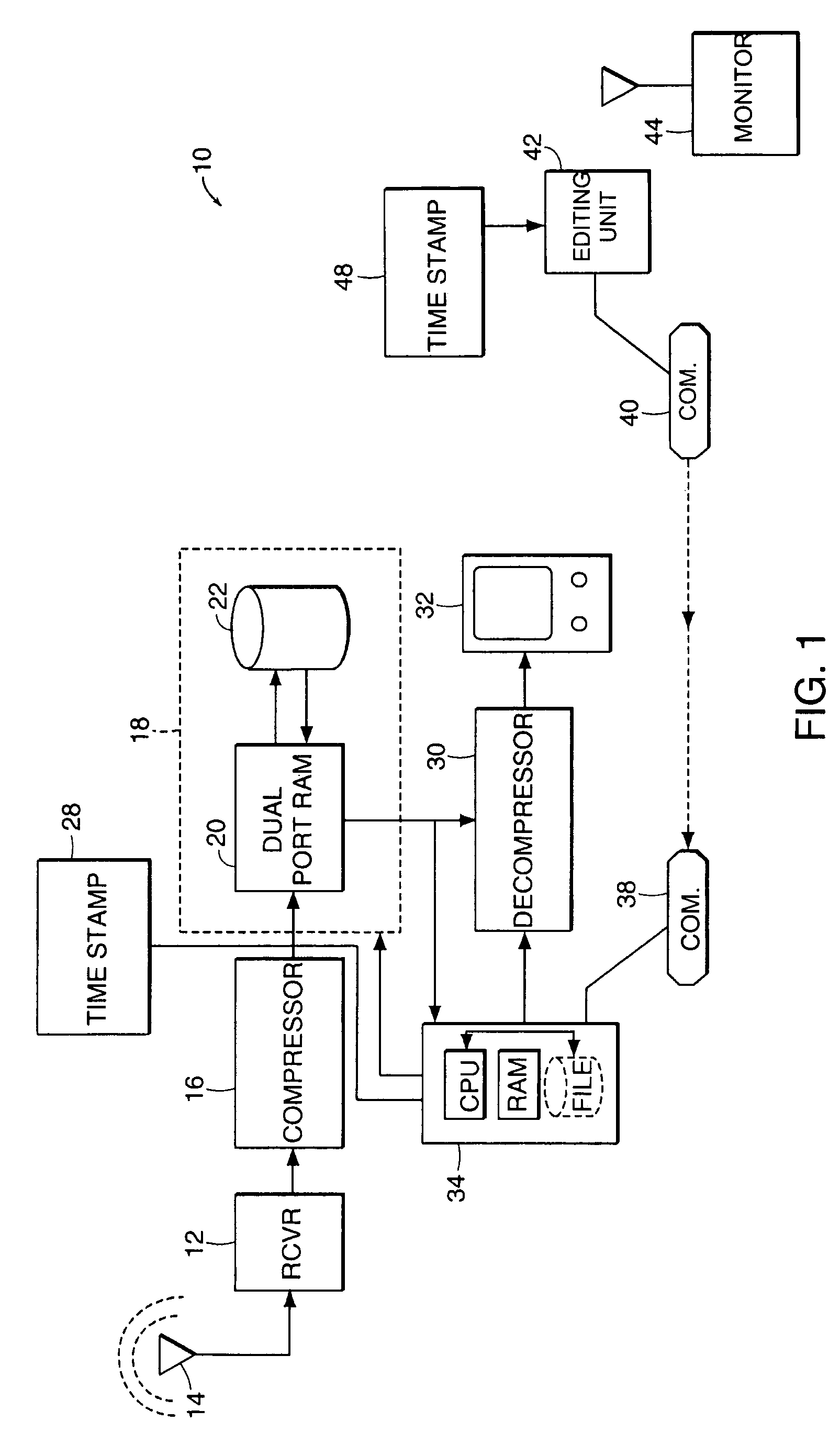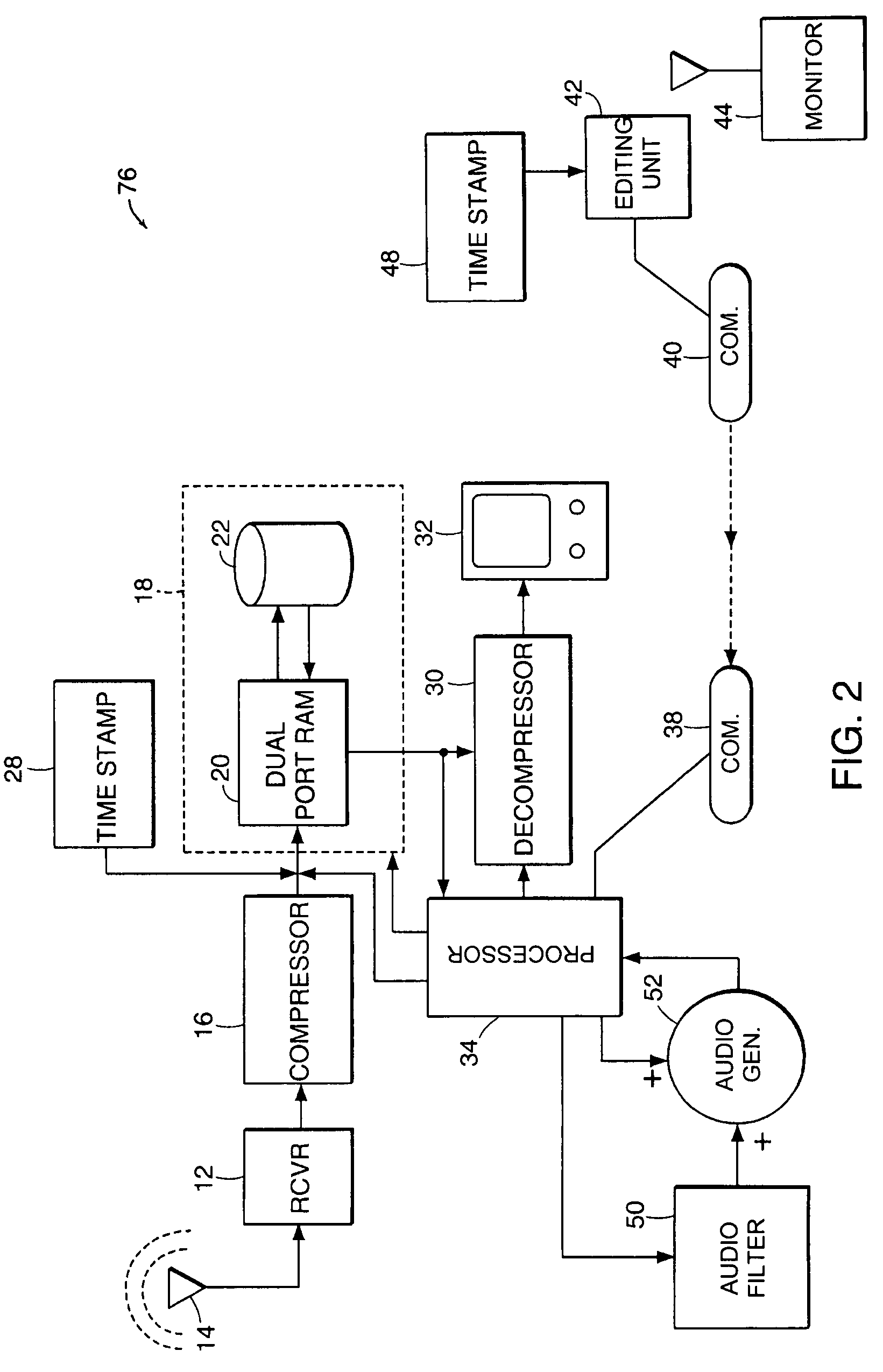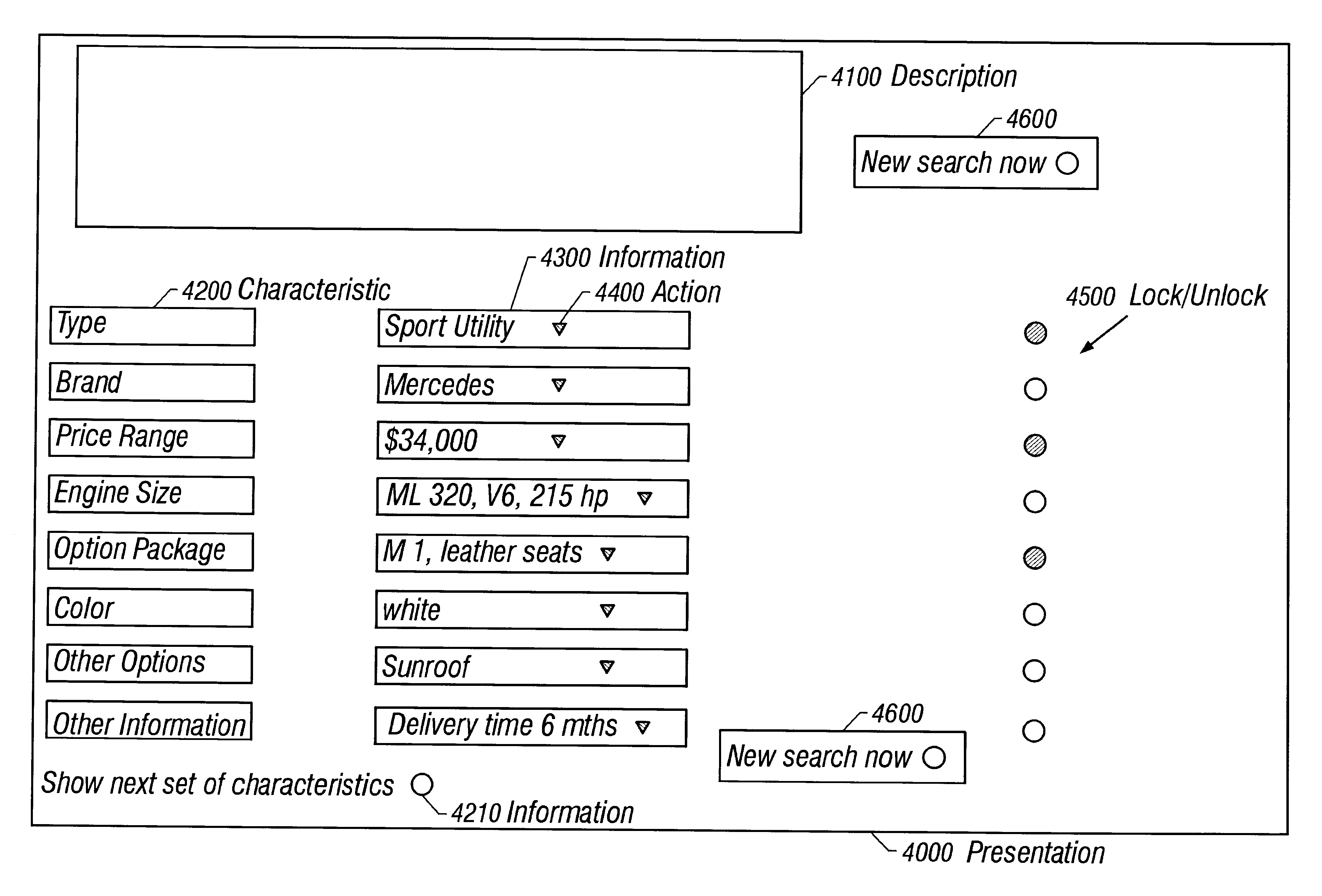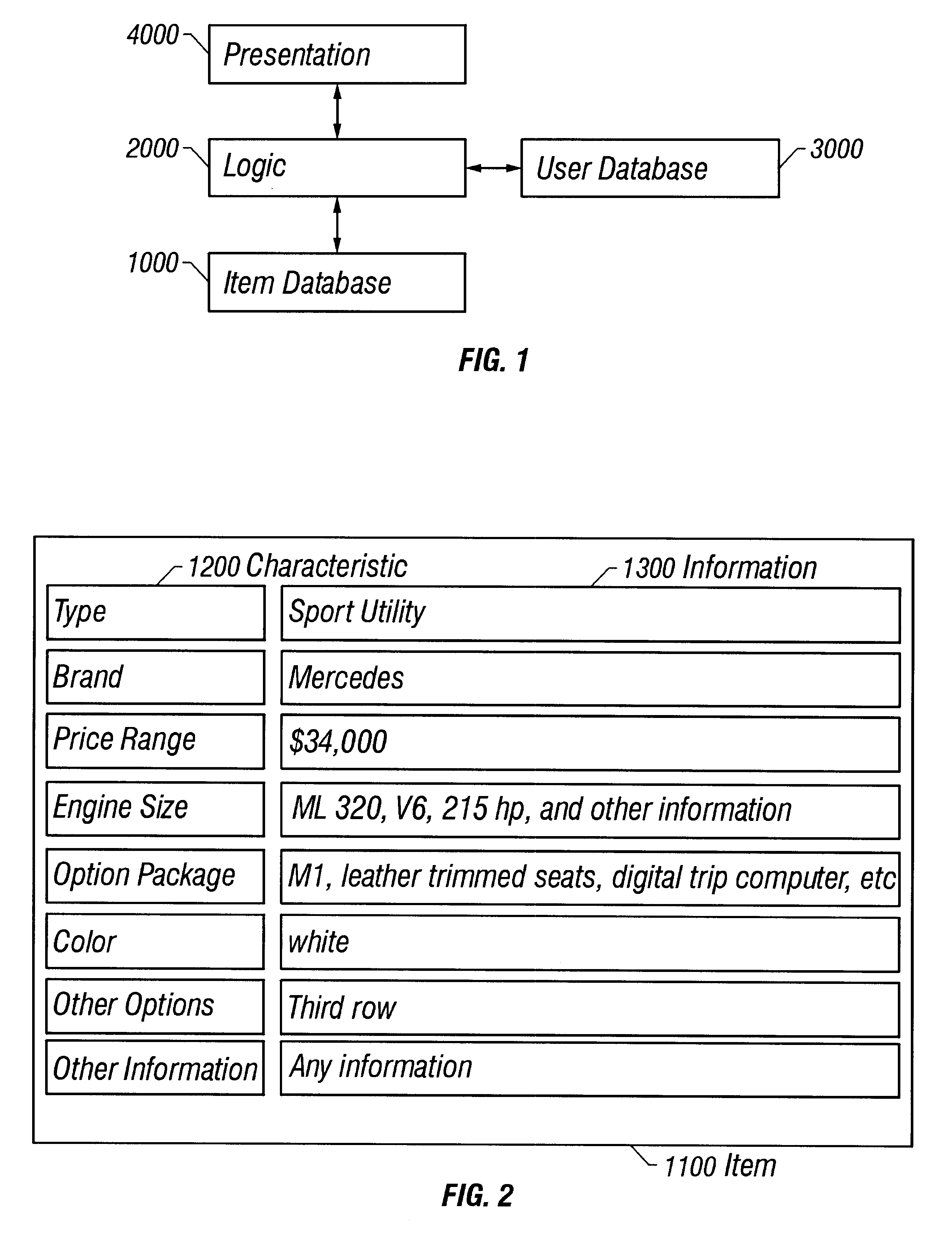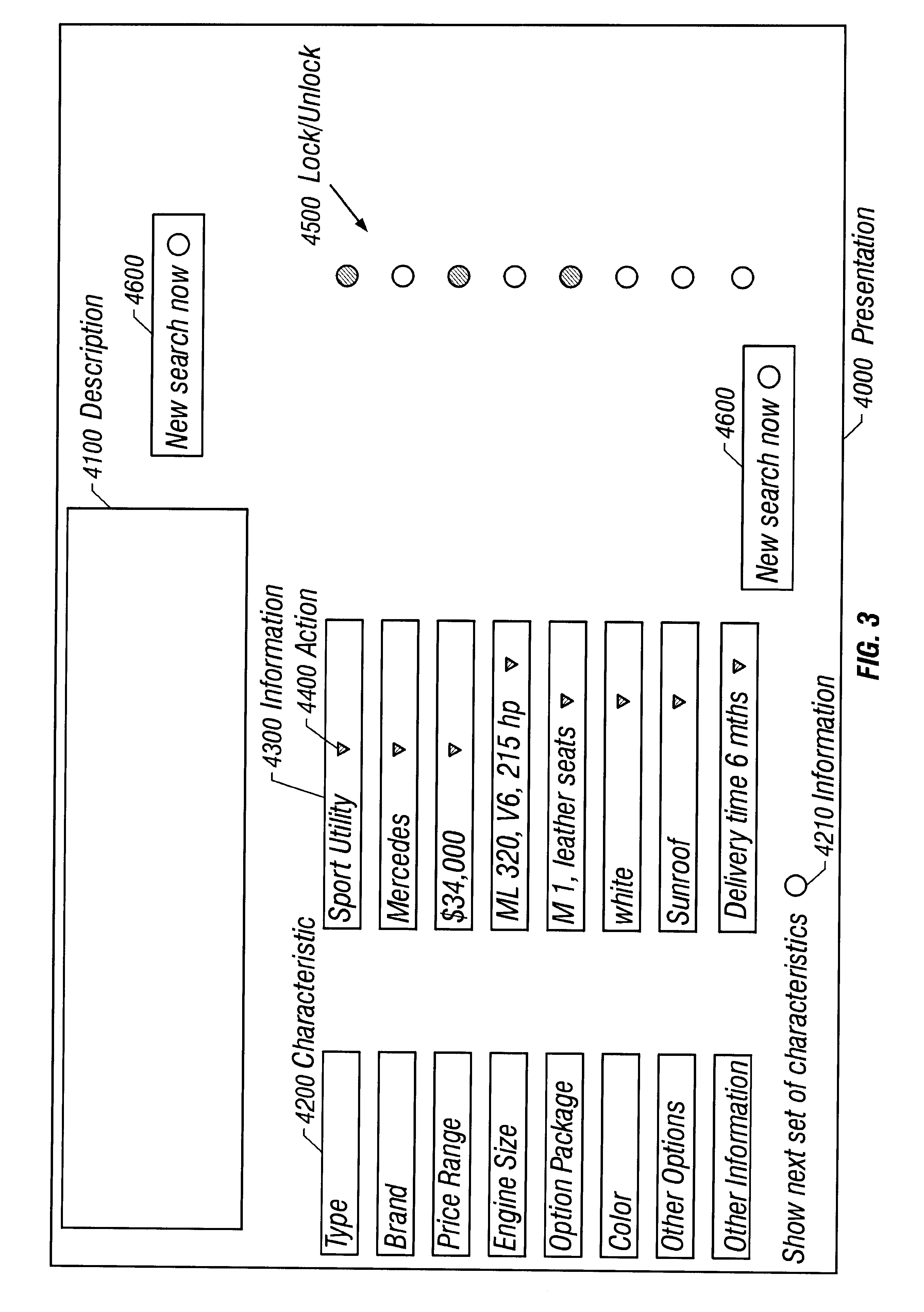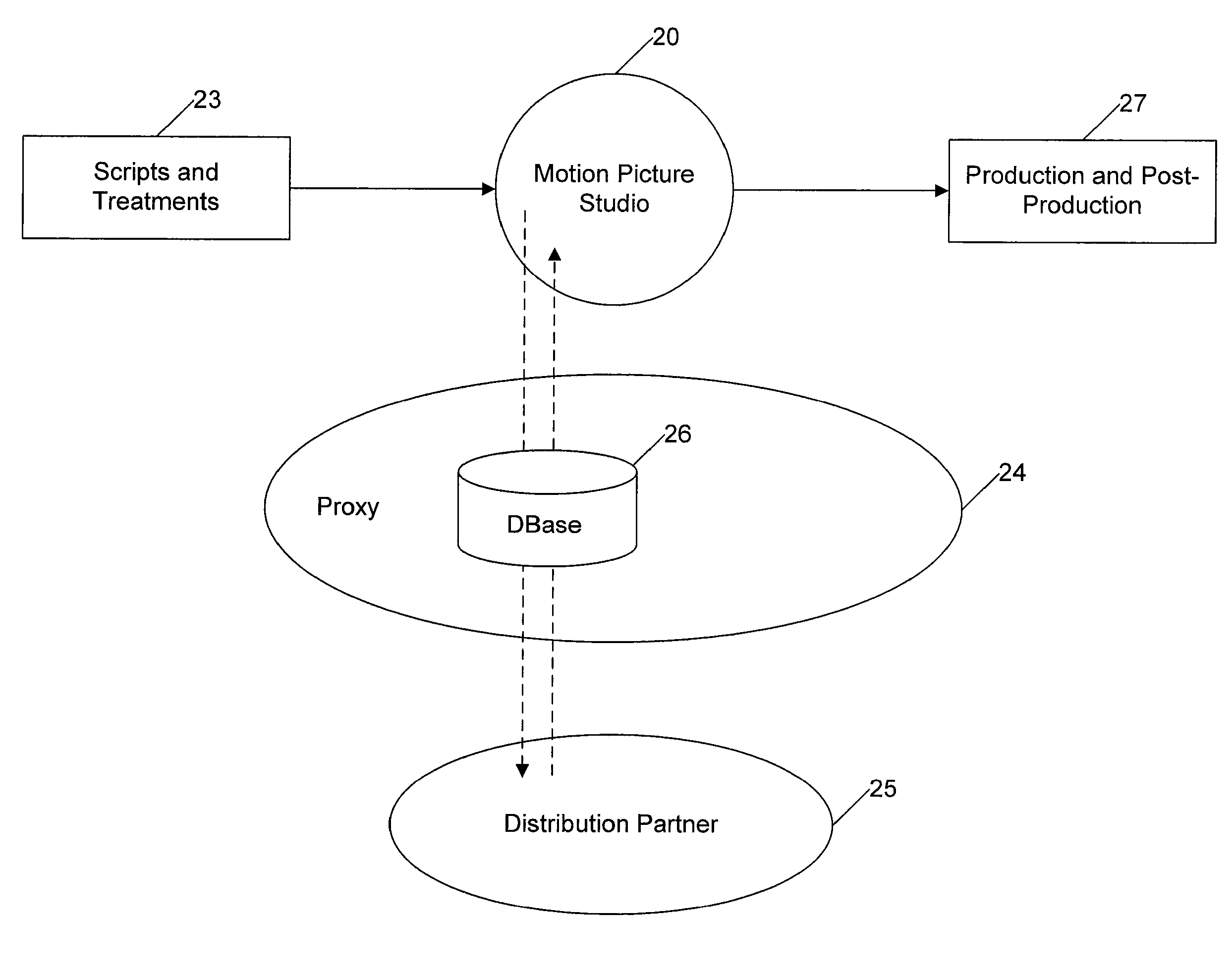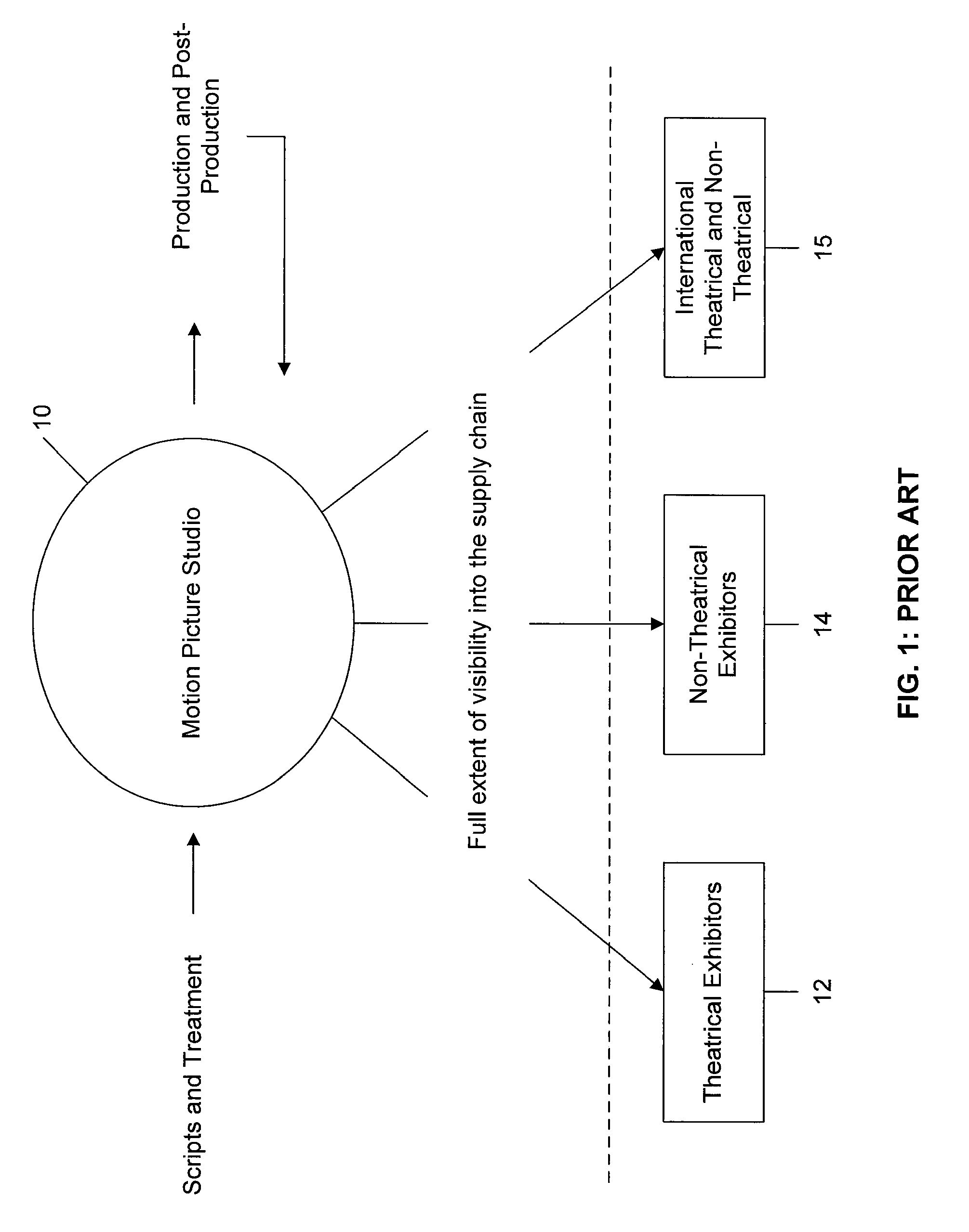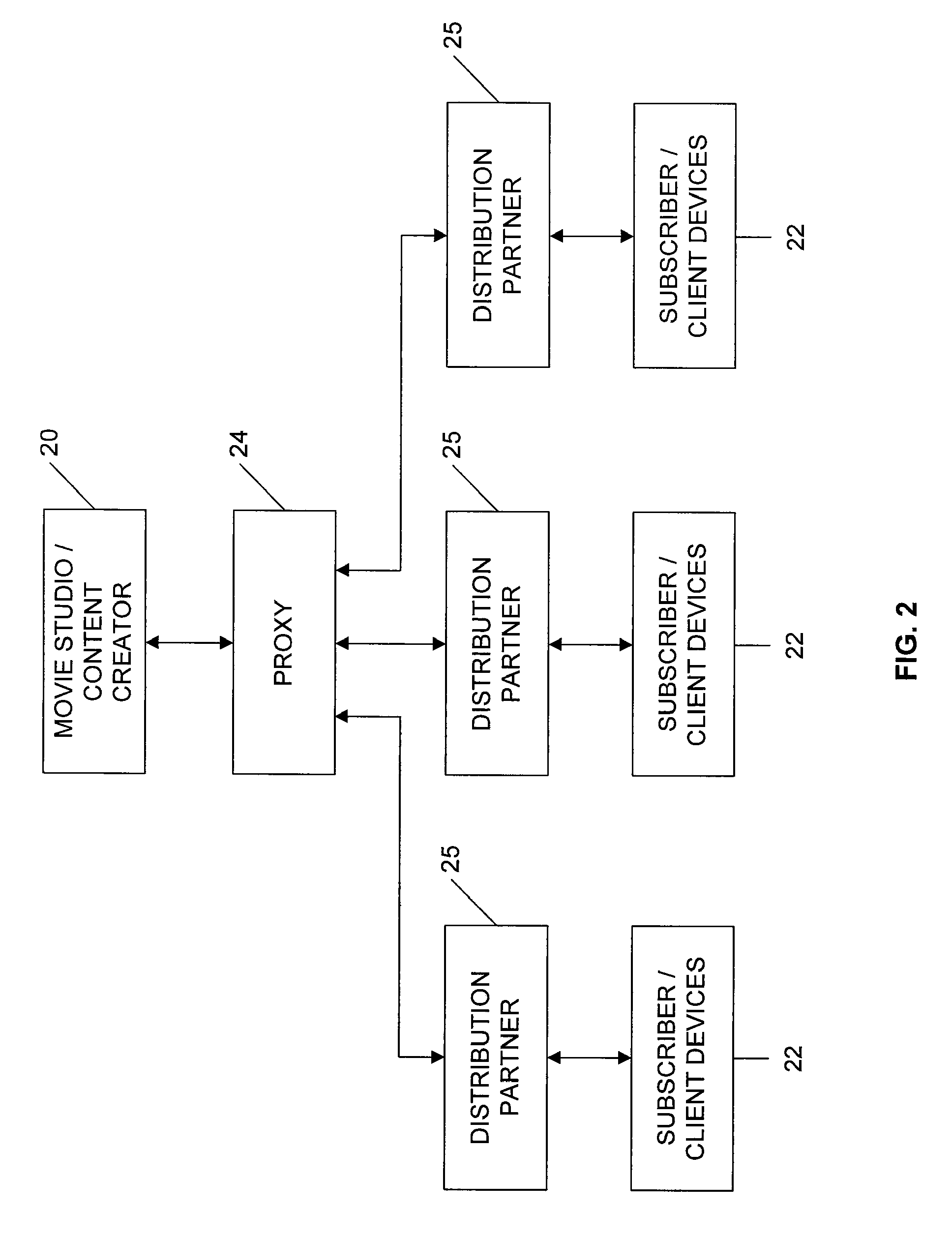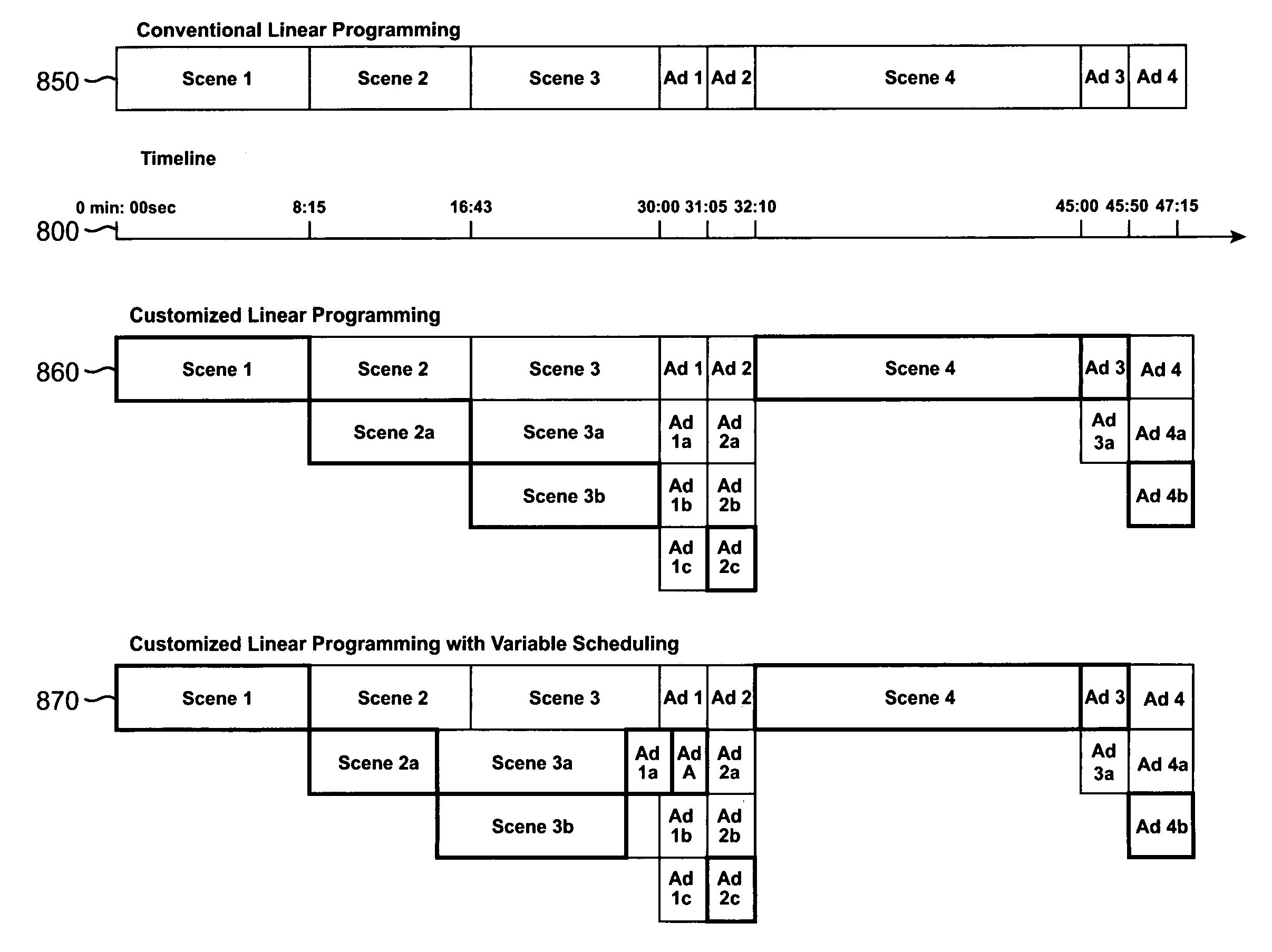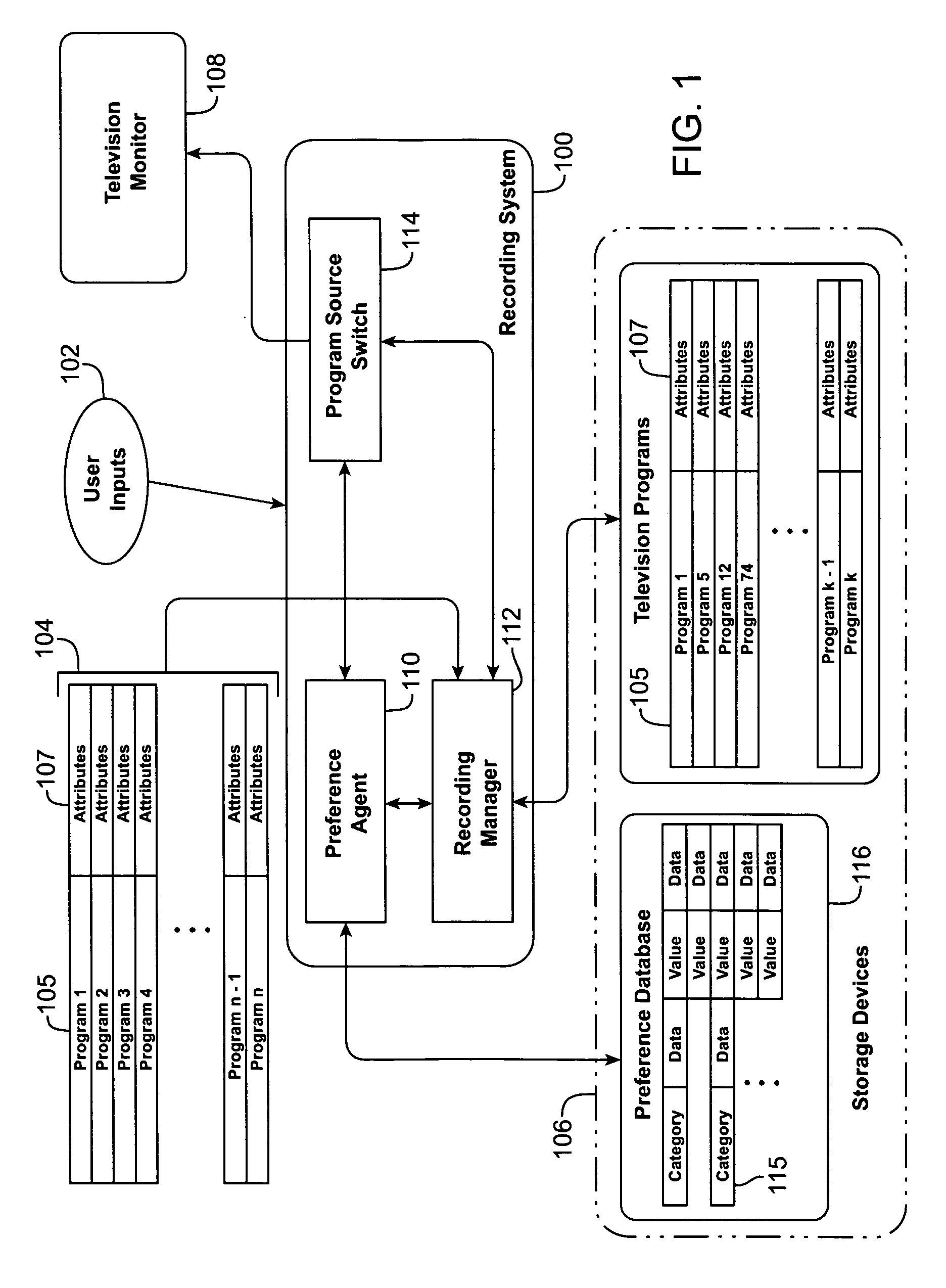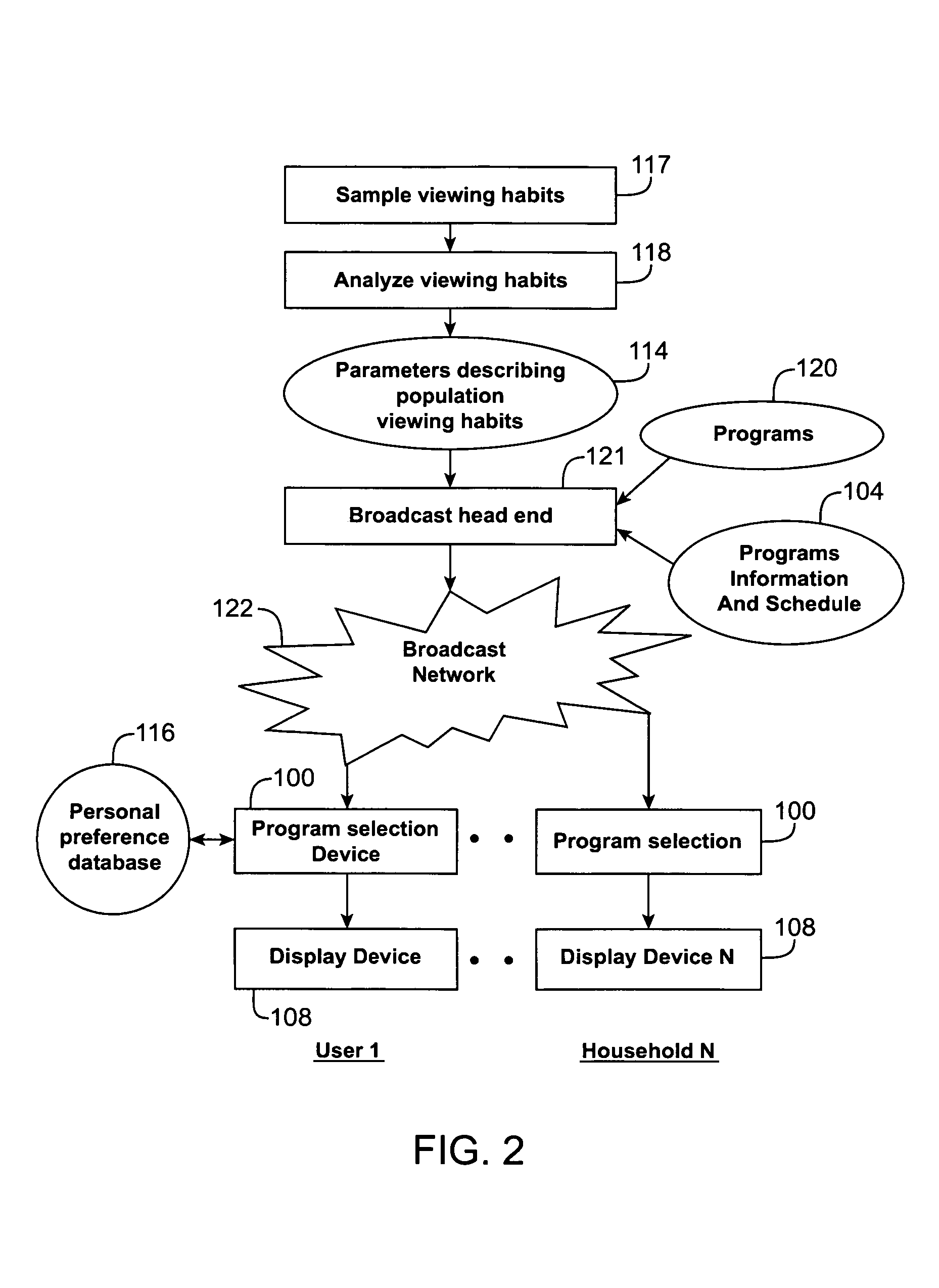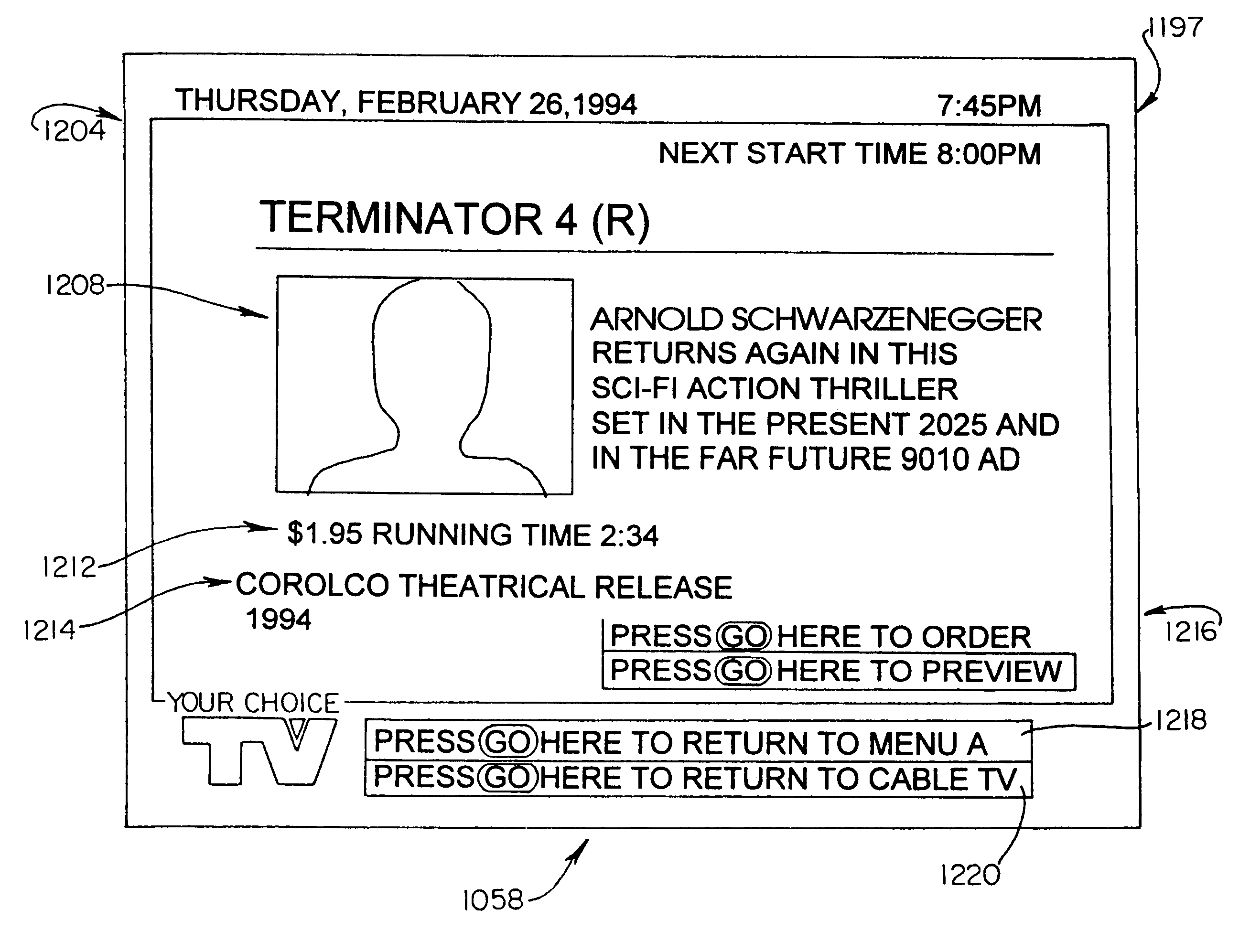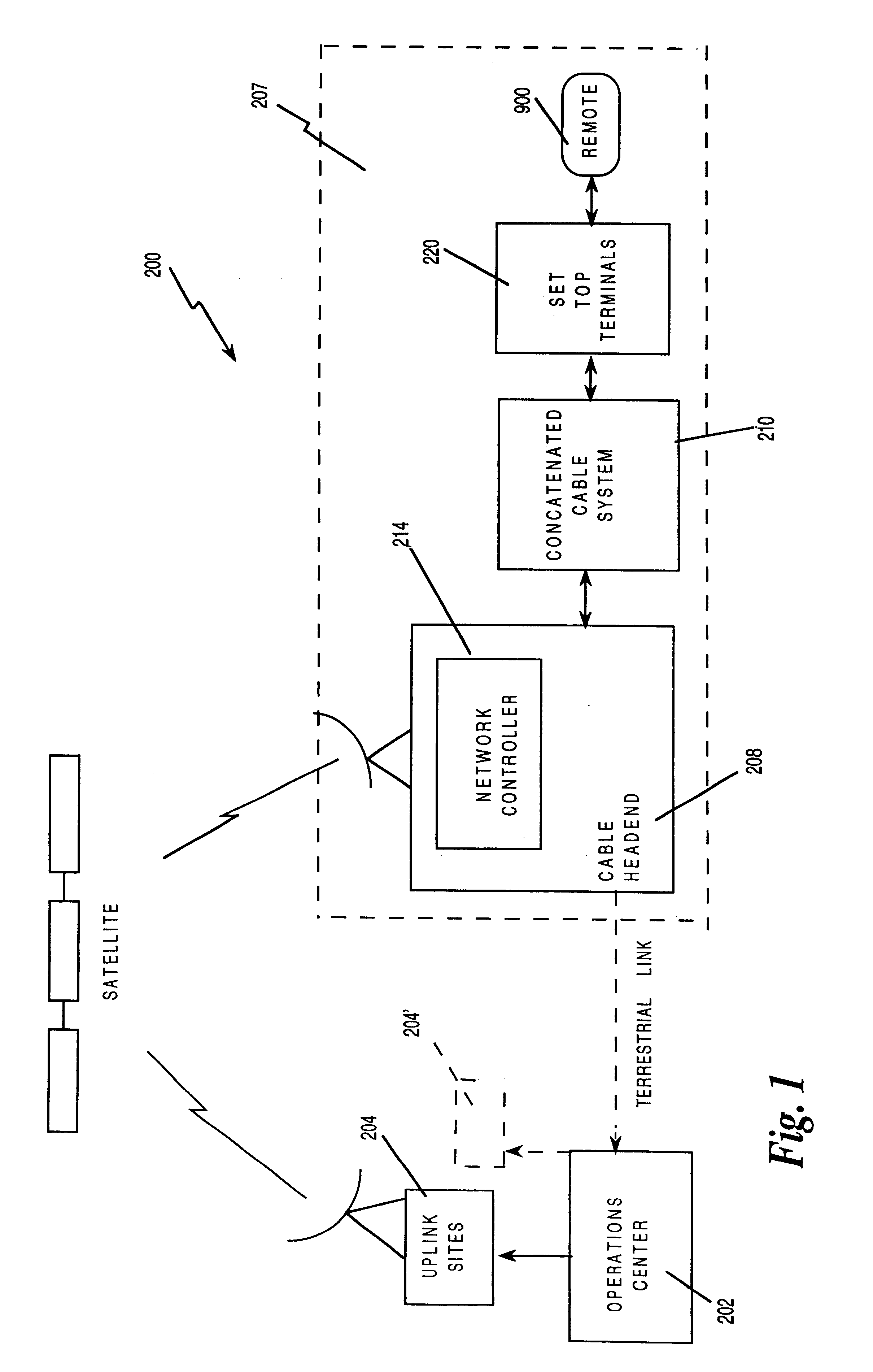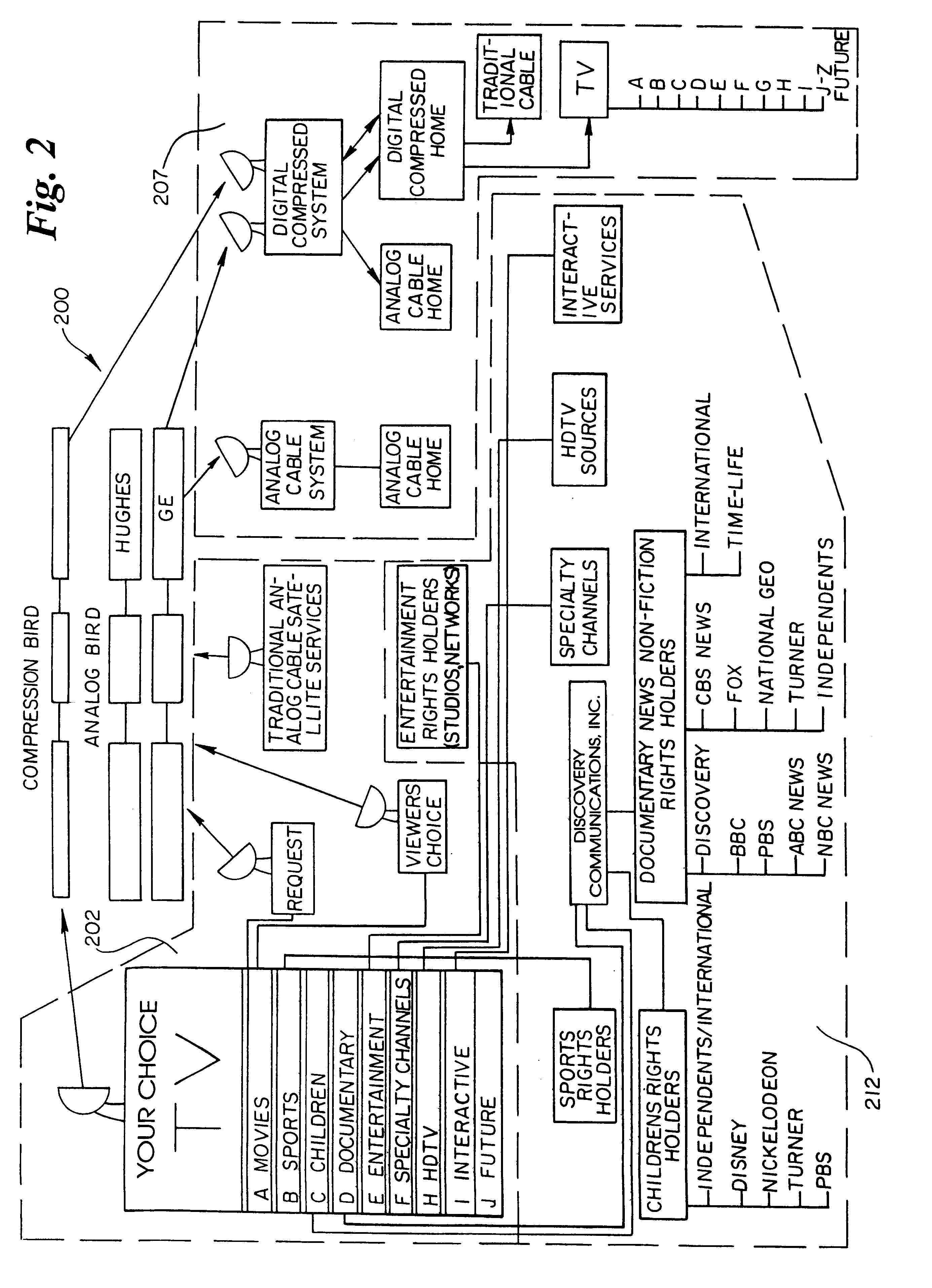Patents
Literature
34292 results about "Cable television" patented technology
Efficacy Topic
Property
Owner
Technical Advancement
Application Domain
Technology Topic
Technology Field Word
Patent Country/Region
Patent Type
Patent Status
Application Year
Inventor
Television (TV), sometimes shortened to tele or telly, is a telecommunication medium used for transmitting moving images in monochrome (black and white), or in colour, and in two or three dimensions and sound. The term can refer to a television set, a television program ("TV show"), or the medium of television transmission. Television is a mass medium for advertising, entertainment and news.
Distributed electronic entertainment method and apparatus
A distributed electronic entertainment method and apparatus are described. In one embodiment, a central management resource is coupled to multiple out-of-home venues through a wide area network (WAN). The central management resource stores content and performs management, monitoring and entertainment content delivery functions. At each venue at least one entertainment unit is coupled to the WAN. Multiple entertainment units in a venue are coupled to each other through a local area network (LAN). In one embodiment, an entertainment unit includes a user interface that comprises at least one graphical user interface (GUI). The entertainment unit further comprises a local memory device that stores entertainment content comprising music, a peripheral interface, and a user input device. A plurality of peripheral devices are coupled to the at least one entertainment unit via the peripheral interface, wherein a user, through the user input device and the user interface, performs at least one activity from a group comprising, playing music, playing electronic games, viewing television content, and browsing the Internet.
Owner:AMI ENTERTAINMENT NETWORK
System and method for scheduling broadcast of and access to video programs and other data using customer profiles
InactiveUS6088722AMinimize memory requirementFacilitate text retrievalTelevision system detailsAnalogue secracy/subscription systemsTelevision systemData source
PCT No. PCT / US95 / 15429 Sec. 371 Date Dec. 24, 1997 Sec. 102(e) Date Dec. 24, 1997 PCT Filed Nov. 29, 1995 PCT Pub. No. WO96 / 17467 PCT Pub. Date Jun. 6, 1996A system and method for scheduling the receipt of desired movies and other forms of data from a network, which simultaneously distributes many sources of such data to many customers, as in a cable television system. Customer profiles are developed for the recipient describing how important certain characteristics of the broadcast video program, movie, or other data are to each customer. From these profiles, an "agreement matrix" is calculated by comparing the recipient's profiles to the actual profiles of the characteristics of the available video programs, movies, or other data. The agreement matrix thus characterizes the attractiveness of each video program, movie, or other data to each prospective customer. "Virtual" channels are generated from the agreement matrix to produce a series of video or data programming which will provide the greatest satisfaction to each customer. Feedback paths are also provided so that the customer's profiles and / or the profiles of the video programs or other data may be modified to reflect actual usage, and so that the data downloaded to the customer's set top terminal may be minimized. Kiosks are also developed which assist customers in the selection of videos, music, books, and the like in accordance with the customer's objective profiles.
Owner:FRED HERZ PATENTS
On-line schedule system with personalization features
InactiveUS7165098B1Increase flexibilityEasy accessMultiple digital computer combinationsSelective content distributionPersonalizationApplication software
An on-line scheduling application allows users to personalize how television-related, entertainment-related, and social event related information is provided. Users may select one or more sources from which the information is obtained. Users may set up a date book that is also used as a source. Users may select one or more delivery schemes that the application uses to provide the information. One or more of the personalization features of the scheduling application may be incorporated into an on-line television programming guide.
Owner:ROVI GUIDES INC
Remote augmented motor-sensory interface for surgery
InactiveUS20060087746A1Easy to controlImprove surgeon performanceDiagnosticsSurgical manipulatorsTelecommunications linkInput control
A portable augmented motor-sensory interface (“PAMI”) system for “tele-controlled” surgery includes a PAMI tele-controller and a portable PAMI medical field unit positioned at a different, distant location and configured for wireless communications with the tele-controller. (“Tele-control” refers to electronically translating and / or transmitting a physician's actions over a long distance.) The field unit has a surgical module, including robotic effectors / arms, configured for carrying out medical procedures, and a video sensor boom for electronically viewing a wound site. The tele-controller has a user interface with input controls and a display that outputs sensory information relating to the patient and field unit. For treating a patient, the field unit is deployed next to the patient and a communications link is established to the tele-controller. A physician at the tele-controller receives sensory input from the field unit through the user interface display, and manipulates the input controls for tele-controlling the surgical module.
Owner:LIPOW KENNETH
Systems and methods for interacting with advanced displays provided by an interactive media guidance application
InactiveUS20100153885A1Television system detailsVideo data queryingInteractive televisionApplication software
An interactive television application is used to provide search results to a user. The user is provided with an opportunity to indicate a desire to search for programs. In response, the interactive television application generates search criteria and searches for programs. The search results that are displayed to the user include mosaic listings associated with programs that match the search criteria. In some embodiments, the interactive television application displays the mosaic listings in a manner that accentuates the different levels of relevance of the search results to the search criteria.
Owner:ALL MEDIA GUIDE +10
Systems, methods, and computer program products for enabling an advertiser to measure user viewing of and response to an advertisement
Systems, methods, apparatus, and / or computer program products for measuring if, when, how, and / or to what degree an user responds to an advertisement to enable an advertiser to produce an unique advertisement for the user and measure the effectiveness of advertisements through wireless and other media channels. The system enables an advertiser to measure the effectiveness of advertisements transmitted to the user through multiple media channels, including, but not limited to: television, radio, personal computer, billboard, magazines, newspapers, product package, and / or other wireless devices, as well as a wireless network. The system also incorporates static and / or dynamic information about the user and / or feedback from the user to produce dynamically an unique advertisement that increases and / or maximizes the probability of the user and comparable users buying the advertised product.
Owner:ADSTREAMS ROI
System and method for scheduling broadcast of and access to video programs and other data using customer profiles
InactiveUS6020883ATelevision system detailsAnalogue secracy/subscription systemsTelevision systemData source
A system and method for scheduling the receipt of desired movies and other forms of data from a network which simultaneously distributes many sources of such data to many customers, as in a cable television system. Customer profiles are developed for the recipient describing how important certain characteristics of the broadcast video program, movie or other data are to each customer. From these profiles, an "agreement matrix" is calculated by comparing the recipient's profiles to the actual profiles of the characteristics of the available video programs, movies, or other data. The agreement matrix thus characterizes the attractiveness of each video program, movie, or other data to each prospective customer. "Virtual" channels are generated from the agreement matrix to produce a series of video or data programming which will provide the greatest satisfaction to each customer. Feedback paths are also provided so that the customer's profiles and / or the profiles of the video programs or other data may be modified to reflect actual usage. Kiosks are also developed which assist customers in the selection of videos, music, books, and the like in accordance with the customer's objective profiles.
Owner:PINPOINT
Television chat system
InactiveUS20050262542A1Television conference systemsAnalogue secracy/subscription systemsInteractive televisionTelevision equipment
A television chat system is provided that allows television viewers to engage in real-time communications in chat groups with other television viewers while watching television. Users of the television chat system may engage in real-time communications with other users who are currently watching the same television program or channel. The system allows real-time communications in a chat group to be transmitted between users at user television equipment devices via a television distribution facility. The television chat system of the present invention permits users to join chat groups related to television programs, channels, or categories of programs that the user may be interested in. Real-time communications may be textual messages, audio communications, or video communications. The television chat system may also allow users to send chat requests to ask other users to enter a chat group. The system also permits users to establish chat groups that television viewers are permitted to join. The television chat system may be based on an interactive television program guide or set-top box application implemented on a set-top box.
Owner:ALL MEDIA GUIDE +10
Media playlist management and viewing remote control
According to this invention, a user may capture a media link on any PC and perform this capture function at any physical location, then save the media link in a playlist, and subsequently play the media located at the media link on a TV server. The TV server may be controlled from a local device—typically a PC or a handheld remote control. Playlists may be maintained on a Web playlist function. Software on a local controller device can then select a media link from a Web playlist through the Internet, and the Web playlist function can then pass that link to a local TV server, thus avoiding the need for the controller device and the TV server to communicate through a LAN. Additionally, a playlist may include targeted advertisements shown physically adjacent to related playlist items.
Owner:ZOTT JOSEPH A +2
Physical presence digital authentication system
InactiveUS6607136B1Enhanced interactionMass scalableCredit registering devices actuationDiscounts/incentivesCrowdsAcoustic wave
The interactive authentication system allows a consumer to interact with a base station, such as broadcast media (e.g., television and radio) or PC, to receive coupons, special sales offers, and other information with an electronic card. The electronic card can also be used to transmit a signal that can be received by the base station to perform a wide variety of tasks. These tasks can include launching an application, authenticating a user at a website, and completing a sales transaction at a website (e.g., by filling out a form automatically). The interaction between the base station and the electronic card is accomplished by using the conventional sound system in the base station so that a special reader hardware need not be installed to interact with the electronic card. The user is equipped with an electronic card that can receive and transmit data via sound waves. In the various embodiments, the sound waves can be audible or ultrasonic (which can be slightly audible to some groups of people).
Owner:SONIXIO INC
Method, system and computer program product for producing and distributing enhanced media downstreams
InactiveUS20020053078A1Fair and equitableEasy retrievalTelevision system detailsRecord information storageThe InternetTelevision station
A multimedia production and distribution system collects or assembles a media production (such as, a news program, television programming, or radio broadcast) from a variety of sources, including television stations and other media hosting facilities. The media production is categorized and indexed for retrieval and distribution across a wired or wireless network, such as the Internet, to any client, such as a personal computer, television, or personal digital assistant. A user can operate the client to display and interact with the media production, or select various options to customize the transmission or request a standard program. Alternatively, the user can establish a template to generate the media production automatically based on personal preferences. The media production is displayed on the client with various media enhancements to add value to the media production. Such enhancements include graphics, extended play segments, opinion research, and URLs. The enhancements also include advertisements, such as commercials, active banners, and sponsorship buttons. An advertisement reporting system monitors the sale and distribution of advertisements within the network. The advertisements are priced according to factors that measure the likelihood of an advertisement actually being presented or viewed by users most likely to purchase the advertised item or service. The advertisement reporting system also collects metrics to invoice and apportion income derived from the advertisements among the network participants, including a portal host and / or producer of the content.
Owner:PARKER VISION INC
System and method of selective media content access through a recommednation engine
InactiveUS20080134043A1Optimize revenue opportunityDigital data information retrievalTwo-way working systemsPersonalizationThe Internet
A personalized entertainment and information platform (Sphere) which provides personalized content delivery across different platforms and modes of delivery. A personal media device (e.g., PC, television, and so forth) interacts with a control server configured for accessing media content and metadata over the Internet. In response to input from the user and the history of user media selection and viewing, a prioritized recommendation list is generated and queued for downloading. The associated content is then downloaded automatically to the personal media device, without the need of user interaction. At this time the user can access the downloaded content immediately without a lengthy delay in waiting for content downloading. It will be appreciated that content such as shows and movies in HD format are of significant size (e.g., up to 50 GB) which would require significant download time, and tie up network and system resources.
Owner:SONY CORP +1
Distributed remote monitoring (dRMON) for networks
InactiveUS6108782AError preventionFrequency-division multiplex detailsNetwork operating systemOperational system
Distributed remote monitoring (dRMON) of network traffic and performance uses distributed nodes to collect traffic statistics at distributed points in the network. These statistics are forwarded to collectors which compile the statistics to create combined views of network performance. A collector may mimic a prior art, non-distributed, network probe and may interact with network management software as though it were a stand alone network probe thereby simplifying a user's interaction with the distributed system. The invention is designed to work in accordance with a variety of standard network management protocols including SNMP, RMON, and RMON2 but is not limited to those environments. The invention has applications in a variety of communication system environments including local area networks, cable television distribution systems, ATM systems, and advanced telephony systems. A specific embodiment of the invention solves is particularly optimized to work in LAN environments with end systems running under Windows-compatible network operating systems.
Owner:HEWLETT-PACKARD ENTERPRISE DEV LP
Profiling and identification of television viewers
ActiveUS20020129368A1Reliable identificationTelevision system detailsBroadcast system return channelsRemote controlTargeted advertising
Profiling a television viewer by monitoring and processing, locally at a television viewing environment, the viewer's interactivity (e.g., via a remote control unit) with the television viewing environment. Generating one or more profiles for each viewer based on one or more of the multitude of interactions of each viewer and on, in general, the viewing habits and preferences of the viewer. Automatically and reliably, detecting or inferring at a particular time, which specific individual or individuals, are actually interacting with the TV in household comprising more than one individual. Such viewer identification and profile generation can be used to facilitate the delivery of targeted content, including targeted advertising.
Owner:PRIME RES ALLIANCE E LLC
Intelligent automated assistant for TV user interactions
Systems and processes are disclosed for controlling television user interactions using a virtual assistant. A virtual assistant can interact with a television set-top box to control content shown on a television. Speech input for the virtual assistant can be received from a device with a microphone. User intent can be determined from the speech input, and the virtual assistant can execute tasks according to the user's intent, including causing playback of media on the television. Virtual assistant interactions can be shown on the television in interfaces that expand or contract to occupy a minimal amount of space while conveying desired information. Multiple devices associated with multiple displays can be used to determine user intent from speech input as well as to convey information to users. In some examples, virtual assistant query suggestions can be provided to the user based on media content shown on a display.
Owner:APPLE INC
Video data recorder with integrated channel guides
InactiveUS6324338B1Television system detailsDisc-shaped record carriersComputer hardwareVideo Tape Recording
A video data recordable having integrated channel guides allowing a user to control recording and storage of television signals into personal channels for later playback and viewing. In the described embodiment, the user may specify criteria for recording of shows from an input source such as a broadcast signal and shows are then selected based on the user specified criteria and recorded for later playback. Storage of the shows may be organized into personal channels in order to facilitate later playback, e.g., the user may specify a channel of action movies, a channel of nature programming, a channel for sports, etc. The shows to be recorded may also have a predefined format which may be used to ease playback of recorded programming by allowing the user to easily locate and playback sections of programming of interest.
Owner:THE DIRECTV GROUP
Home automation system and method
InactiveUS20070192486A1Television system detailsColor television detailsTelevision systemDevice status
In one embodiment a method is disclosed for interacting with a controllable device in an internet protocol television (IPTV) system. The method receives at a control server, device state data for the controllable device from a first client device in the IPTV network; accesses user interface (UI) data from a database accessible to the control server; reflects the device state data in the UI data at the control server; and sends the UI data from an IPTV server to the first client device. In another embodiment a system is disclosed for interacting with a controllable device in an internet protocol television (IPTV) system. The system receives at a control server, device state data for the controllable device from a first client device in the IPTV network; accesses user interface (UI) data from a database at the control server; reflects the device state data in the UI at the control server; and sends the UI from an IPTV server to the first client device.
Owner:SBC KNOWLEDGE VENTURES LP
Smart filtering
InactiveUS6172674B1Reduce settingsFind quicklyTelevision system detailsAnalogue secracy/subscription systemsComputer scienceElectronic program guide
A system and method for implementing an electronic programming guide that allows a television viewer to access and interact with television scheduling information. The electronic programming guide provides the viewer with a grid which lists channels, titles and show times. To help the viewer locate information about shows the viewer is interested in, the guide can filter the data prior to display. Only the data that meets certain filter criteria will be displayed. The filter criteria are set by the viewer. The filter criteria can be changed by manipulating a variable selection element such as a slider.
Owner:COMCAST CABLE COMM MANAGEMENT LLC
Network manager for cable television system headends
InactiveUS6201536B1Increase flexibilityImprove rendering capabilitiesTelevision system detailsPulse modulation television signal transmissionInformation processingInstruction memory
A novel network manager for use with a cable television system headend capable of monitoring and managing headend components and set top terminals in a television delivery system is described. The invention relates to methods and apparatus that manage and coordinate the reception of various programming and control signals at a headend. The invention manages and coordinates the storage of such signals for intelligent selection and distribution to set top terminals. The invention makes use of a receiver or set of receivers, a work station, a program control information processing component, a network management CPU, databases, control software and an instruction memory. The invention uses these components to manage and monitor certain headend components, such as signal reception equipment, an authorization component, a file server, MPEG decoders, a digital buffer with frame repeat and channel modulators. The invention is particularly useful in processing and responding to upstream information and subscriber communications received from set top terminals. In so doing, the invention accommodates various system services, including (1) near video on demand (NVOD), (2) virtual video on demand (VVOD), (3) video on demand (VOD), (4) interactive program services, (5) program suggestion features, (6) advertisement targeting, (7) generation of standard and custom menus, and (8) data spooling and text overlaying.
Owner:COMCAST IP HLDG I
Method and system for providing targeted advertisements
InactiveUS20040163101A1Receiver side switchingAnalogue secracy/subscription systemsInteractive televisionNetwork media
A method and system for providing targeted advertisements over a networked media delivery system, especially interactive television networks, the system comprising tracking and storing viewer selections, analyzing the selections, and delivering targeted advertisements that appeal to the particular subscriber making the selections, the system including a merge processor, a file server, a profile processor, and a broadcast server contained in a head end in communication with a plurality of set-top boxes through a distribution network. Based on a subscriber's viewing habits and account information, the present invention delivers different, customized advertisements to different viewers watching the same program or channel. The present invention delivers the advertisements as either still frame bit maps or as video streams advertisement insertion in a playlist or a broadcast media program.
Owner:ALPHONSO
Interference detector for patient monitor
ActiveUS8471713B2Quickly informedQuickly alertedNoise figure or signal-to-noise ratio measurementElectric testing/monitoringEnvironmental noiseMedical equipment
A system is disclosed for detecting and calculating the level of ambient and / or environmental noise, such as electromagnetic interference generated by electric power lines, ambient lights, light dimmers, television or computer displays, power supplies or transformers, and medical equipment. In some embodiments, the system performs frequency analysis on the interference signal detected by light photodetectors and determines the power of the interference signal concentrated in the analyzed frequency bands. The worst-case interference level can be determined by selecting the maximum from the computed power values. In some embodiments, the determined interference signal power can be compared with the noise tolerance of a patient monitoring system configured to reliably and non-invasively detect physiological parameters of a user. The results of the comparison can be presented to the user audio-visually. In some embodiments, the system can be used to perform spot check measurements of electromagnetic interference.
Owner:MASIMO CORP
Systems, methods, and computer program products for enabling an advertiser to measure user viewing of and response to advertisements
Systems, methods, apparatus, and / or computer program products for measuring if, when, how, and / or to what degree a user responds to an advertisement to enable an advertiser to produce an unique advertisement for the user and measure the effectiveness of advertisements through wireless and other media channels. The system incorporates static and / or dynamic information about the user and / or feedback from the user to produce dynamically a unique advertisement that increases and / or maximizes the probability of the user and comparable users buying the advertised product. The system also enables an advertiser to measure the effectiveness of advertisements transmitted to the user through multiple media channels, including, but not limited to: television, radio, personal computer, billboard, magazines, newspapers, product package, and / or other wireless devices, as well as a wireless network.
Owner:ADSTREAMS ROI
Advertising with video ad creatives
InactiveUS20070157228A1Good serviceAdvertisementsAnalogue secracy/subscription systemsRelevant informationThe Internet
The serving of advertisements with (e.g., on) video documents may be improved in a number of ways. For example, a system may (a) accept information defining at least one ad spot associated with at least one instance of an video document, (b) accept offers to have advertisements served in the ad spot(s), and (c) arbitrate among competing advertisements, using at least the offers, to determine at least one advertisement to be served in that ad spot(s). As another example, a system may (a) accept relevance information for an advertisement, (b) determine at least one video document using the accepted relevance information, (c) present information about the video document(s) to an advertiser associated with the advertisement, and (d) accept, from the advertiser, an offer to have its advertisement served with at least one of the video document(s) accepted. As yet another example, a system may (a) accept relevance information for an video document, (b) determine a plurality of advertisements relevant to the video document using the relevance information and serving constraints of the advertisements, and (c) select at least one of the determined relevant advertisements to be served with the video document. Examples of video documents include video files published on the Internet, television programs, live or recorded talk shows, video-voice mail, segments of an video conversation, etc.
Owner:GOOGLE LLC
System, device, and method for remote monitoring and servicing
A system, device, and method for remote monitoring and servicing uses a gateway to collect user information, such as physiological, audio, video, and proximity information. The gateway processes the user information locally, and may send the user information or other information, such as alarms, to remote service providers through one or more head-end servers. The gateway also allows service provider information, such as audio and video information, to be conveyed from the service providers to the users. The gateway may output video information on a predetermined television channel, and may output audio information on the predetermined television channel or to a wireless remote controller with in-built speaker. The gateway may receive audio information from the user via a wireless remote controller with in-built microphone. The gateway provide for videoconferencing between the user and one or more remote service providers.
Owner:MATHUR MICHAEL
Dynamic mosaic extended electronic programming guide for television program selection and display
Owner:WEBTUNER CORP
Apparatus and methods for broadcast monitoring
InactiveUS7055166B1Analogue secracy/subscription systemsPlural information simultaneous broadcastComputer integrationComputer science
Disclosed herein are systems and methods for editing the content of a broadcast programming signal to provide a proprietary program signal that has been tailored to the preferences of an individual monitoring the broadcast programming signal. Accordingly, the systems and methods of the invention offer computer-integrated television monitoring.
Owner:TIVO SOLUTIONS INC
Self-learning and self-personalizing knowledge search engine that delivers holistic results
InactiveUS6397212B1Web data indexingDigital data processing detailsPersonalizationHuman–machine interface
A search engine provides intelligent multi-dimensional searches, in which the search engine always presents a complete, holistic result, and in which the search engine presents knowledge (i.e. linked facts) and not just information (i.e. facts). The search engine is adaptive, such that the search results improve over time as the system learns about the user and develops a user profile. Thus, the search engine is self personalizing, i.e. it collects and analyzes the user history, and / or it has the user react to solutions and learns from such user reactions. The search engine generates profiles, e.g. it learns from all searches of all users and combines the user profiles and patterns of similar users. The search engine accepts direct user feedback to improve the next search iteration One feature of the invention is locking / unlocking, where a user may select specific attributes that are to remain locked while the search engine matches these locked attributes to all unlocked attributes. The user may also specify details about characteristics, provide and / or receive qualitative ratings of an overall result, and introduce additional criteria to the search strategy or select a search algorithm. Additionally, the system can be set up such that it does not require a keyboard and / or mouse interface, e.g. it can operate with a television remote control or other such human interface.
Owner:HANGER SOLUTIONS LLC
Movie studio-based network distribution system and method
ActiveUS20070220575A1Analogue secracy/subscription systemsTwo-way working systemsAccess networkDigital content
Digital content files containing entertainment media such as movies, TV shows, and the like are distributed from at least one content source primarily responsible for the original creation of the media to subscribers over a network system. The content source is connected over at least one content source network to a plurality of distribution partners, and each distribution partner is connected with a selected group of subscribers over an access network. A requested digital content file is distributed from the content source to a subscriber in a network distribution path comprising at least the content source network, the distribution partner associated with the subscriber, and the second network. A profile information package containing subscriber preferences is transmitted from the subscriber to the content source by way of a proxy over the network distribution path, and the profile information package is stored at the content source.
Owner:VERIMATRIX INC
Method and apparatus for delivery of targeted video programming
InactiveUS7146627B1Reduce the burden onEasy to useTelevision system detailsColor television detailsHabitTelevision watching
A system residing preferably in a television set-top box monitors the television watching habits of one or more viewers and creates one or more profiles for each viewers descriptive of various characteristics of each viewers, including television watching preferences and demographics. The set-top box is able to select among various available video programming segments to create customized and / or targeted video programs for delivery to the viewer or viewers as a linear program. The customized linear video programs may include targeted content, advertising, and other video programming.
Owner:THOMSON LICENSING SA
Set top terminal for television delivery system
InactiveUS6515680B1Easy to browseImprove user friendlinessPulse modulation television signal transmissionBroadcast information characterisationData signalComputer terminal
A viewer interface for a television program delivery system is described. The innovation relates to methods and devices for viewer pathways to television programs. Specifically, the interface involves hardware and software used in conjunction with a television at the viewer home to create a user friendly menu based approach to television program access. The device is particularly useful in a program delivery system with hundreds of programs and a data signal carrying program information. The disclosure describes menu generation and menu selection of television programs.
Owner:COMCAST IP HLDG I
Features
- R&D
- Intellectual Property
- Life Sciences
- Materials
- Tech Scout
Why Patsnap Eureka
- Unparalleled Data Quality
- Higher Quality Content
- 60% Fewer Hallucinations
Social media
Patsnap Eureka Blog
Learn More Browse by: Latest US Patents, China's latest patents, Technical Efficacy Thesaurus, Application Domain, Technology Topic, Popular Technical Reports.
© 2025 PatSnap. All rights reserved.Legal|Privacy policy|Modern Slavery Act Transparency Statement|Sitemap|About US| Contact US: help@patsnap.com
